For the following photographs I feel the need to offer guiding metaphors, but none stick.
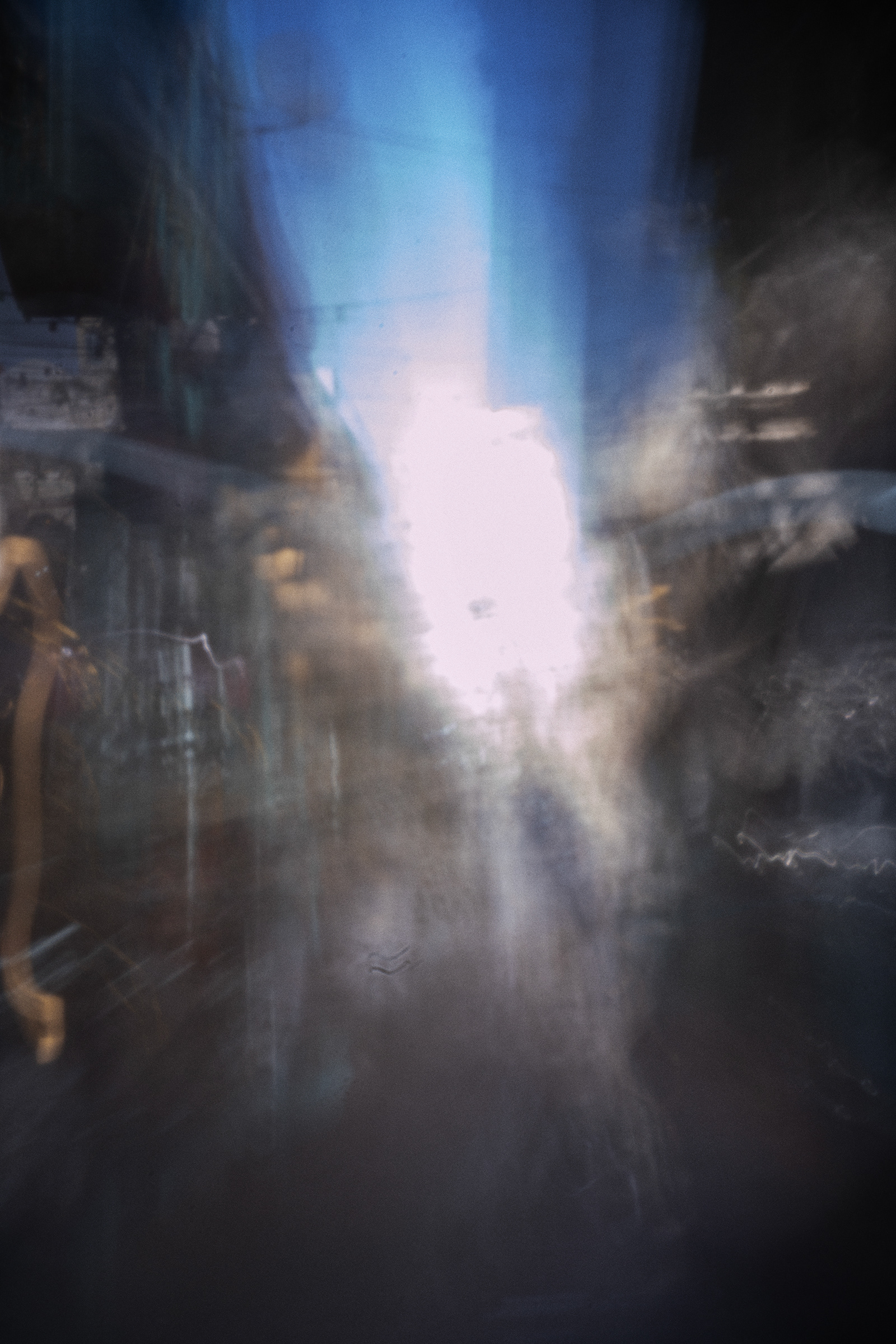
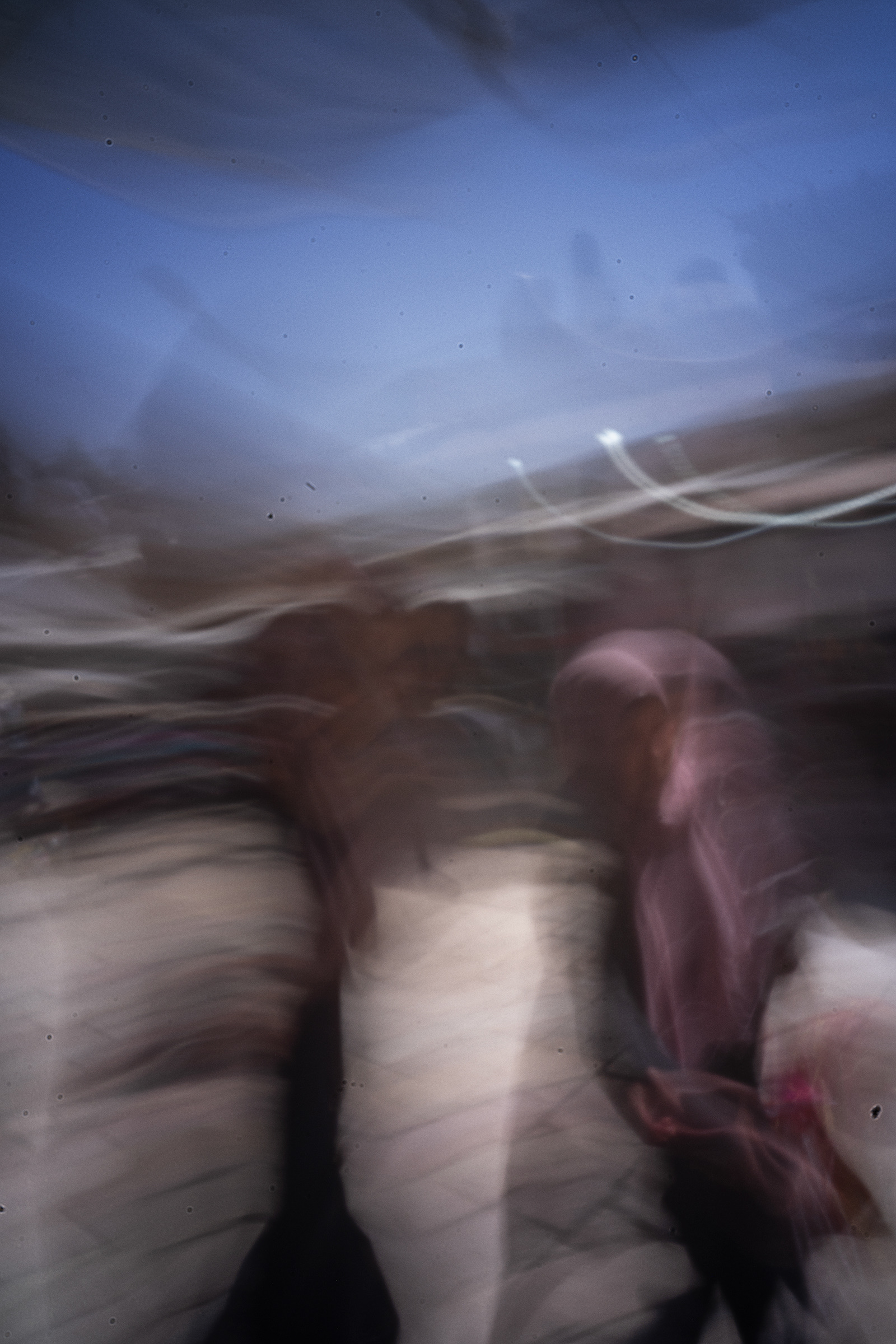
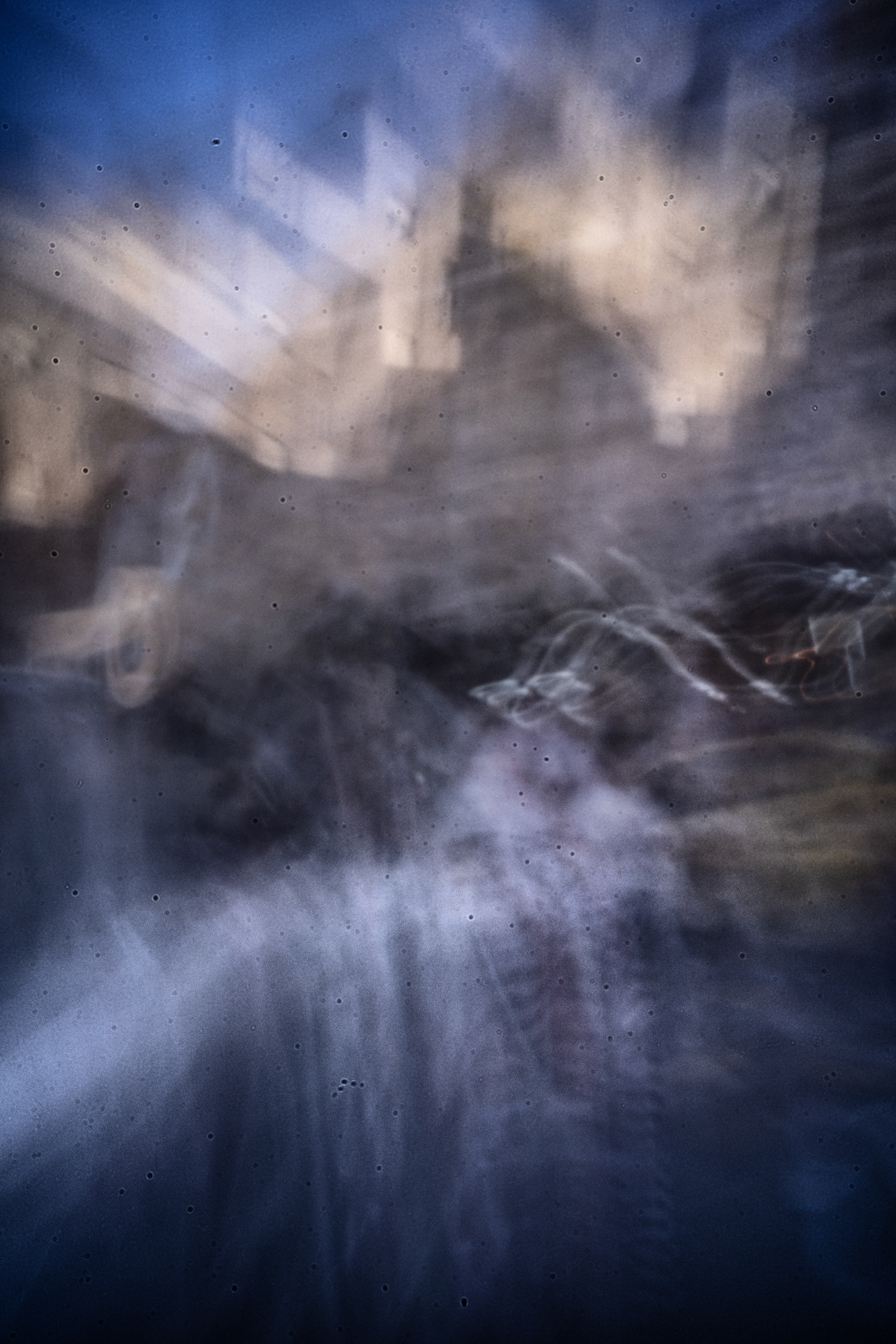
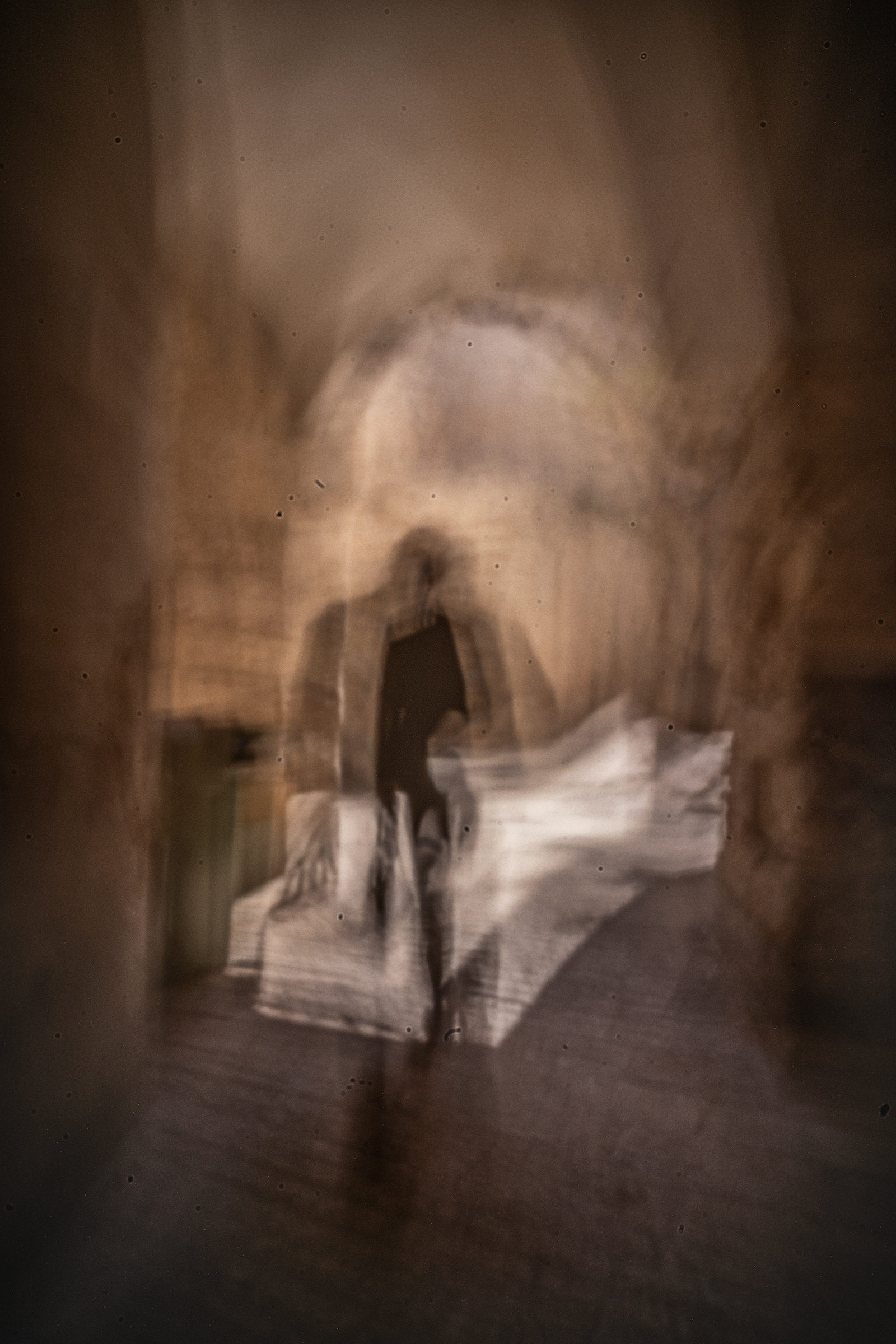
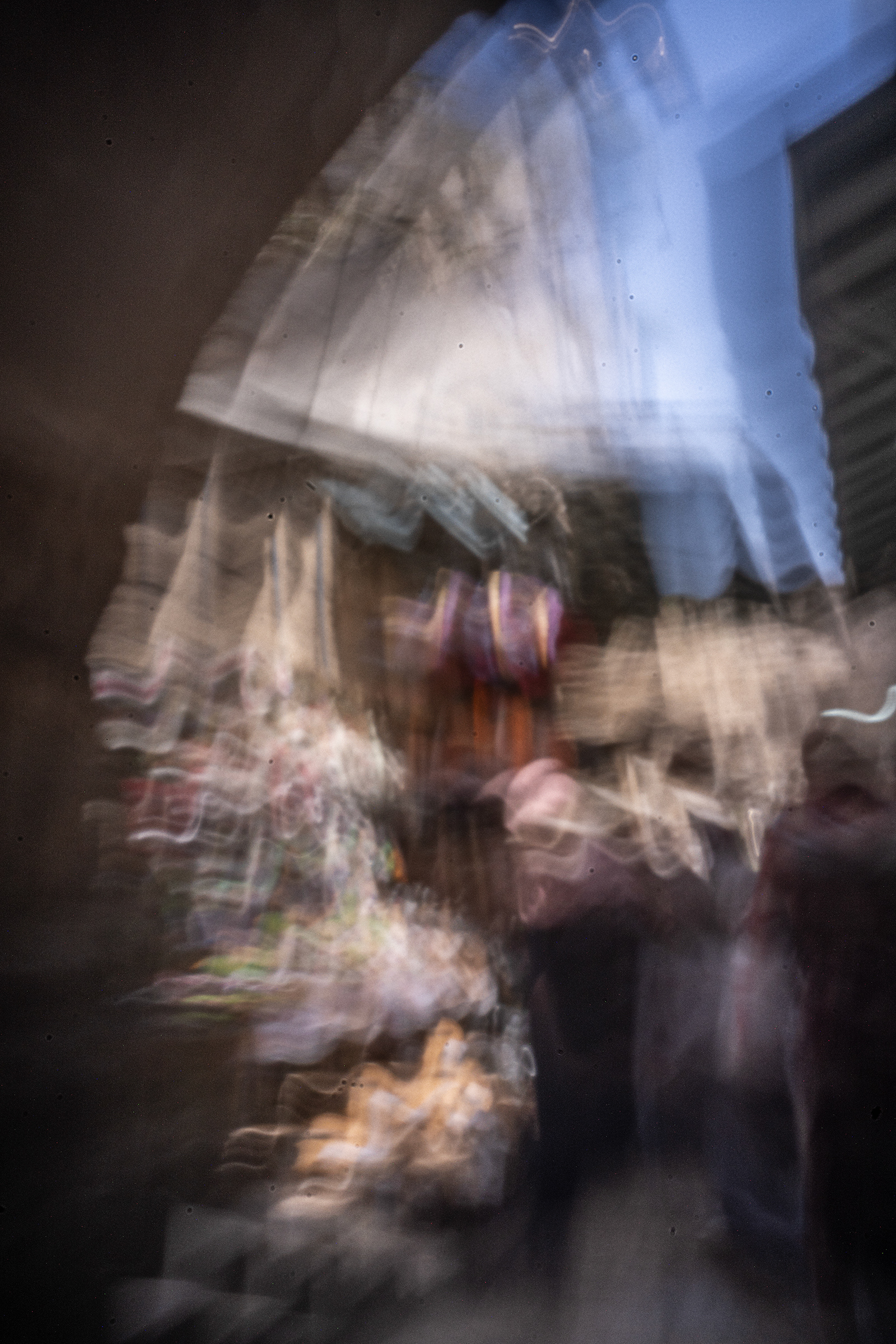
At first I conceived them as a report from Israel/Palestine, albeit an unusual one—without facts or conclusions. Then it seemed to me a letter to the muse, or maybe it was the beloved, the one who somehow knows without my having to explain it the way I am put together—with a dialectical mind and a melancholic heart and a quixotic soul that keeps tracing the dot of solitude within empathy and vice-versa, always poorly. For a moment it seemed a missive specifically to my ancestors, none of whom ever made it very far from the shtetl—it was their bad luck to have me, of all people, be their latter-day ambassador to the holy city of Jewish myth and poetry. For some time it seemed I had accidentally found the exchange point between theoretical physics and poetry, both preoccupied with seeing beyond the visible—the physicists declaring that if we could see with fully vivid and basic perception we would no longer distinguish past from future or disorder from order, the poets insisting that it is only in poetry that fundamental laws can change, move in reverse, move in meaning at all. Being neither scientist nor poet, I wonder what each would affirm if I presented these images as spiritual echocardiographs of the self, myself, which is not to say my own self but my particular self—me with a camera in the space where “particle” and “participate” crossed, in Jerusalem, exactly then and there. Or to put it all better: at this point I cannot say I understand what I made, only that entropy and its redemption, wonder and its discontents, and the psychic energy of place—if we can agree that there is such a thing—have something to do with it.
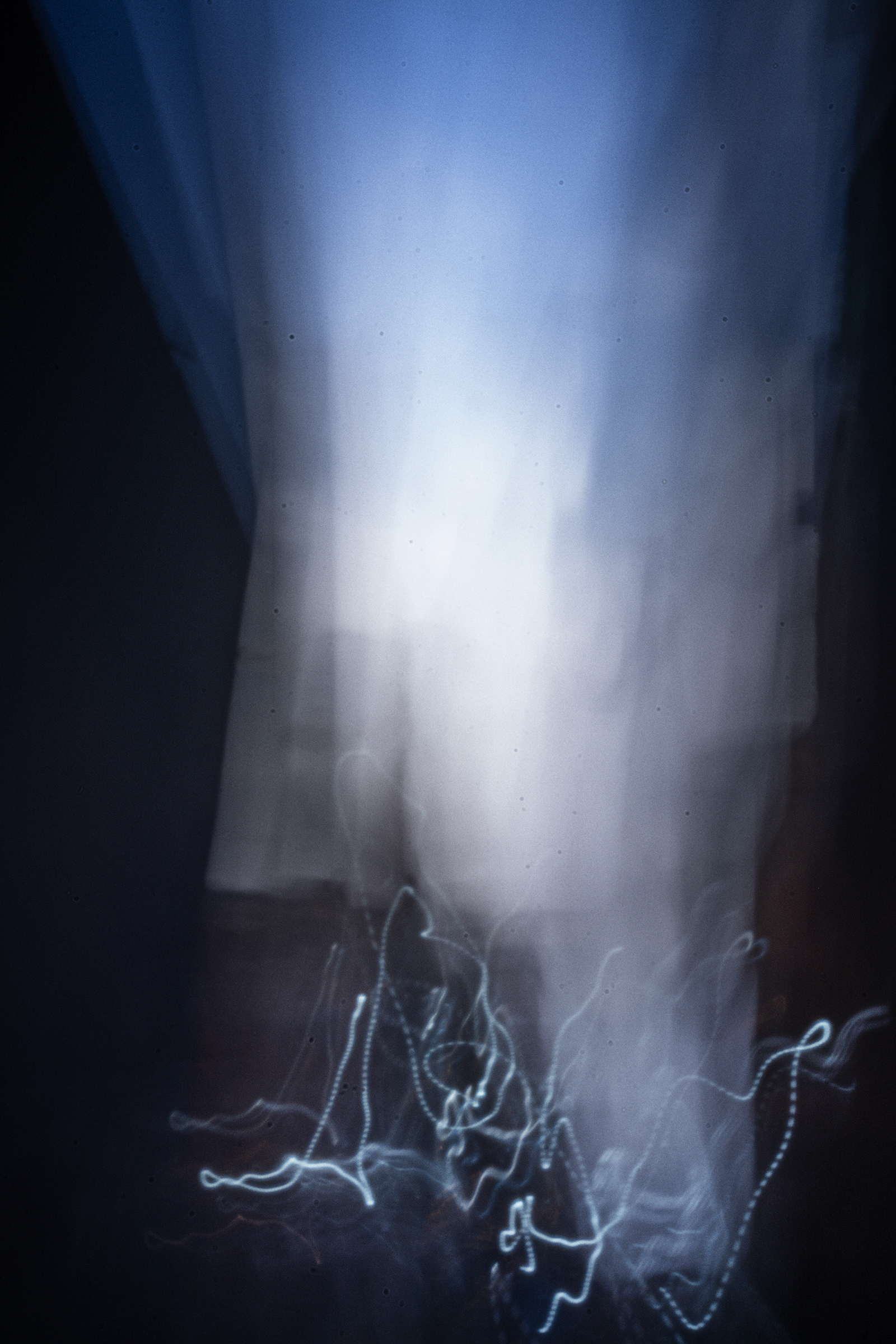
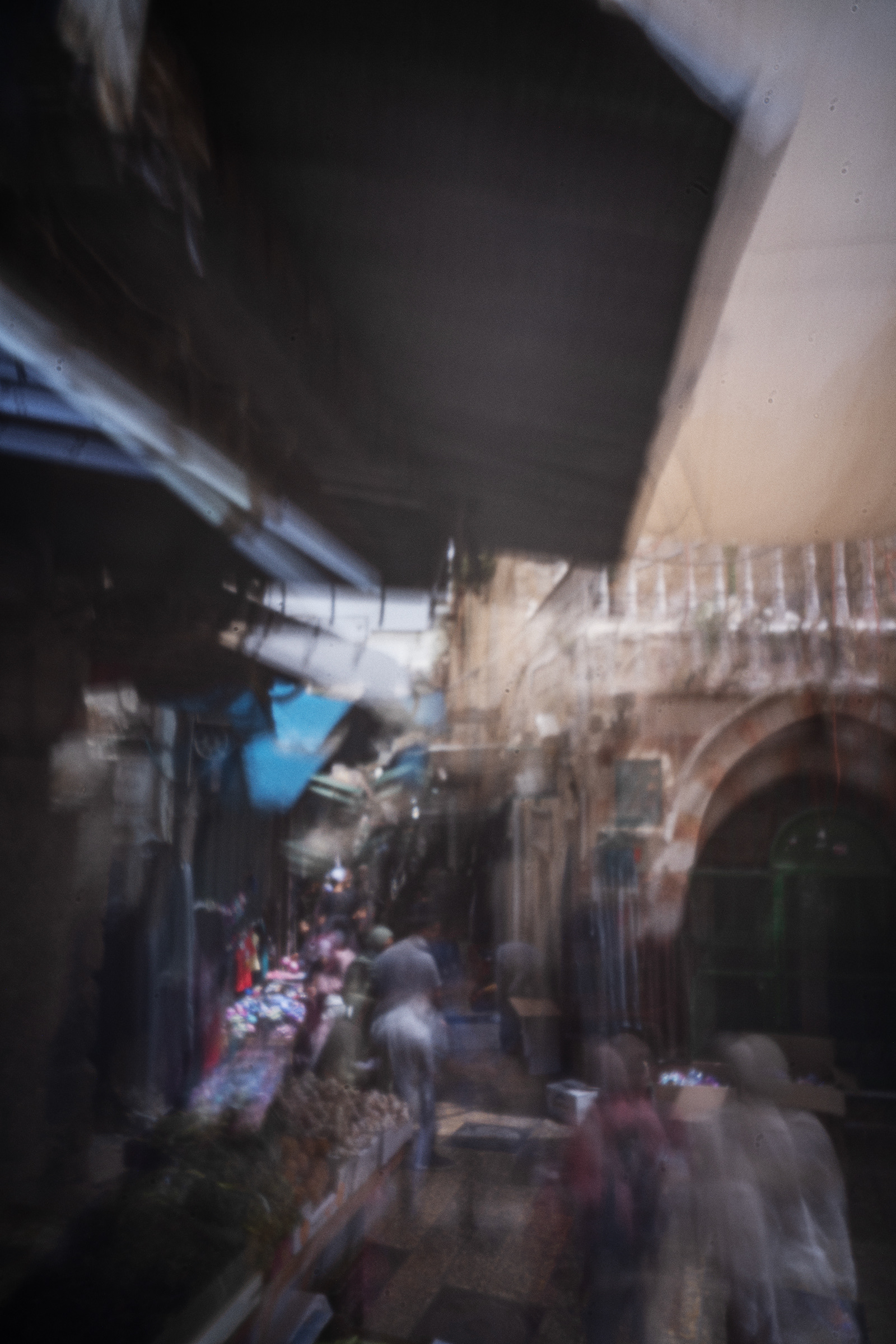
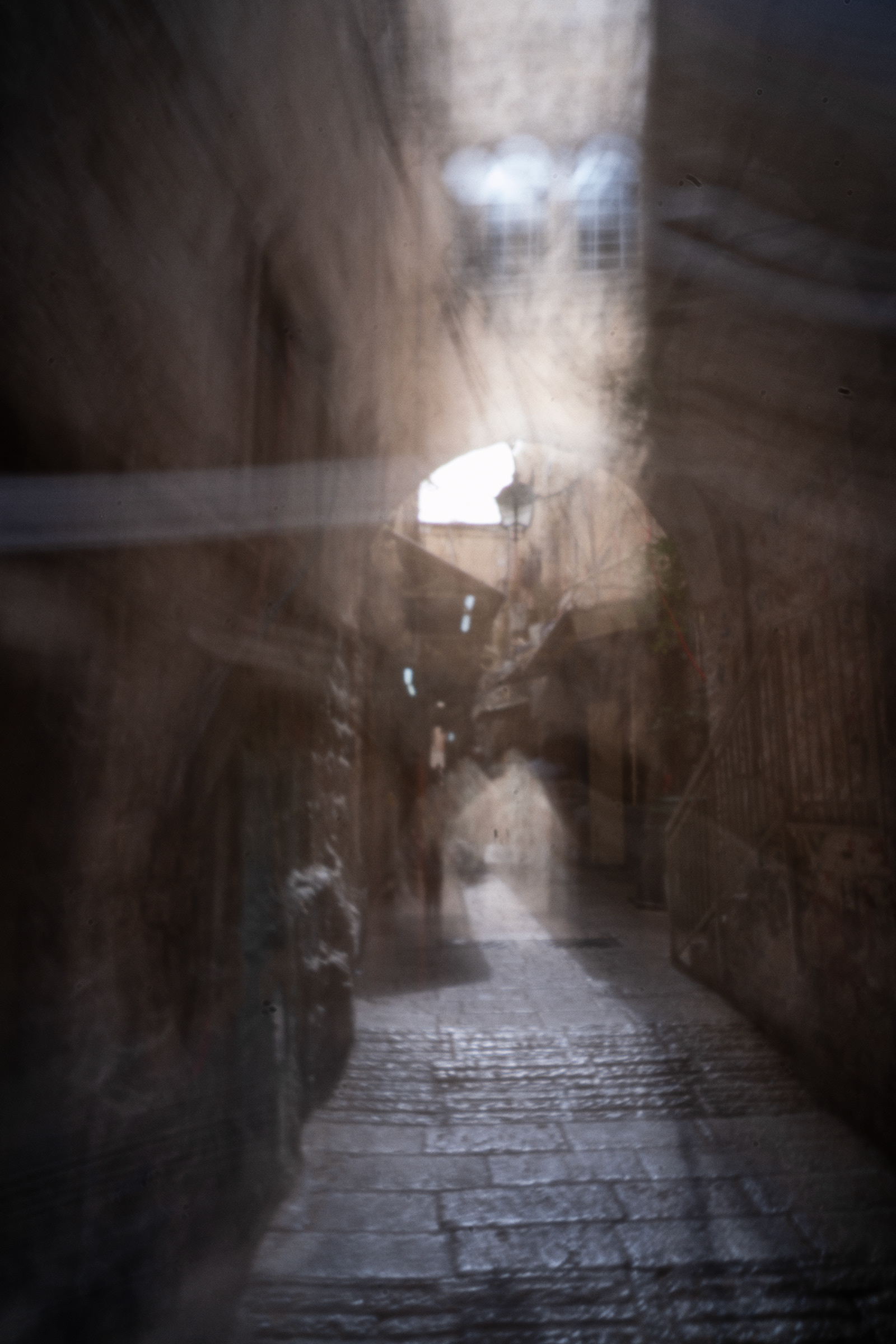
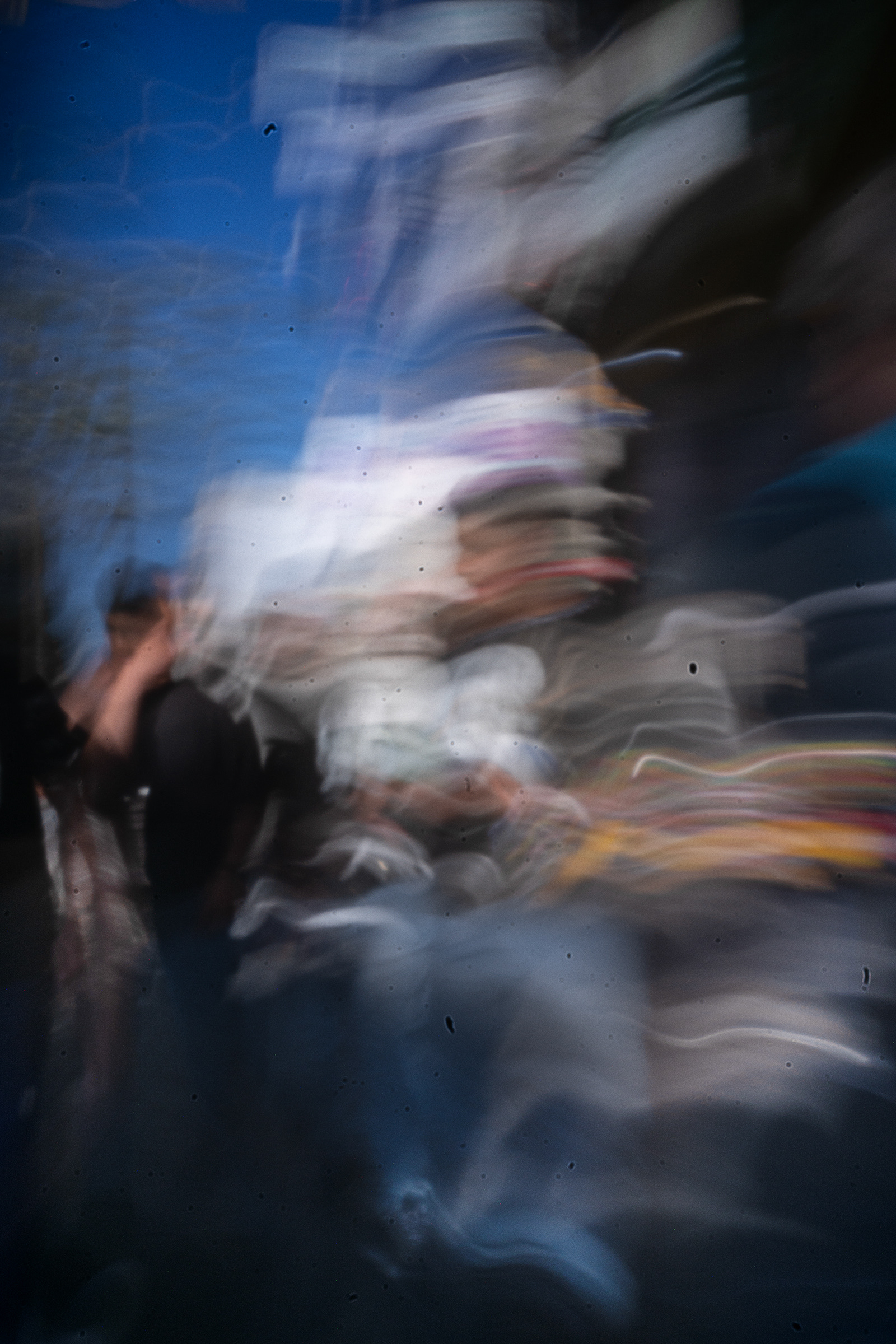
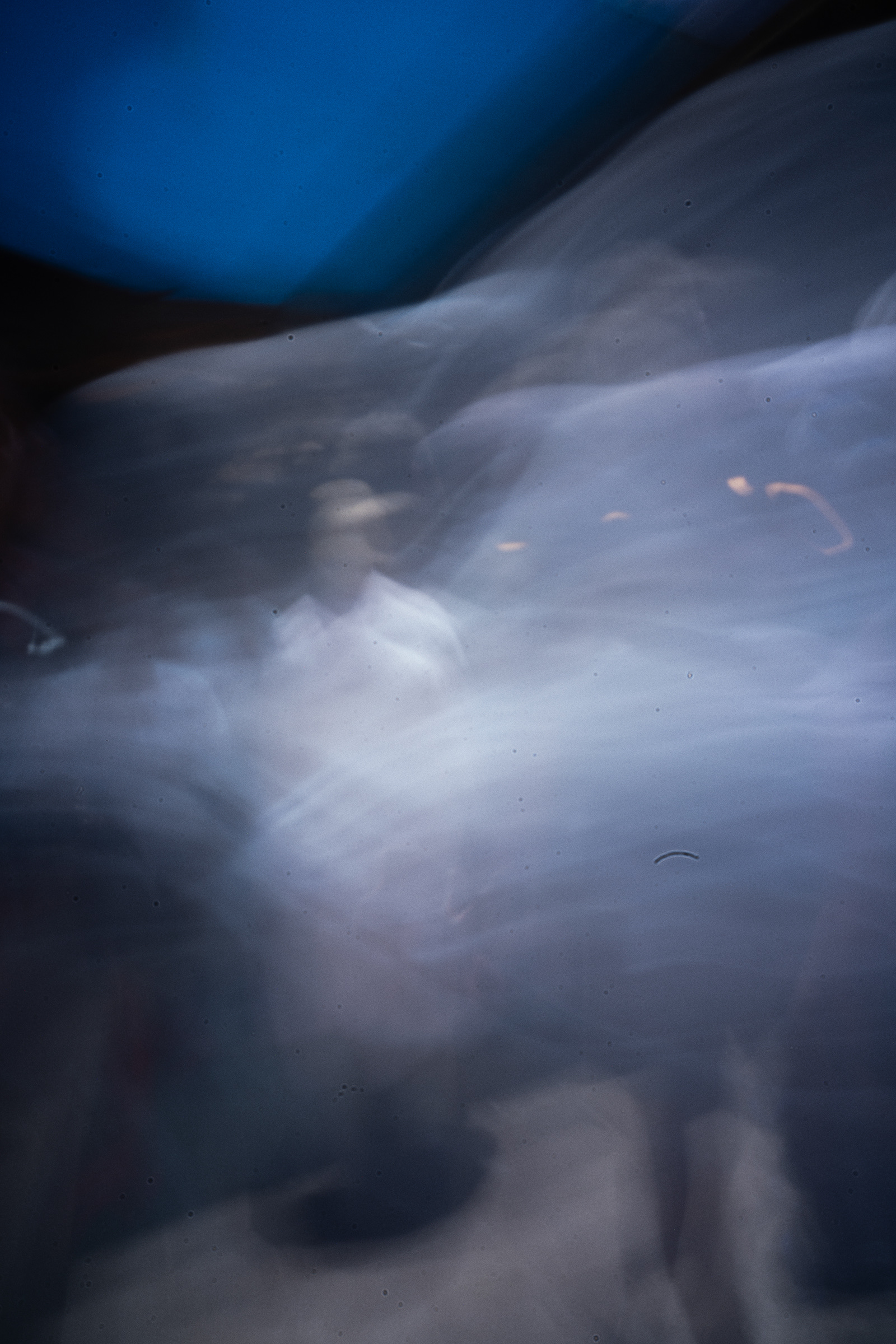
I do not want to dwell too much on the circumstances surrounding the making of these photographs. I can summarize it like this: it was my first trip to Israel/Palestine, after having avoided going there my whole life—I was born in 1967, a few months before the start of the Israeli occupation of the West Bank. The Mishnah tells us that it is good to put a fence around the Torah—to take extra observances as a way of protecting the elemental ones—and it seemed to me best to put a fence around Israel, not to go there at all, rather to study it from afar.
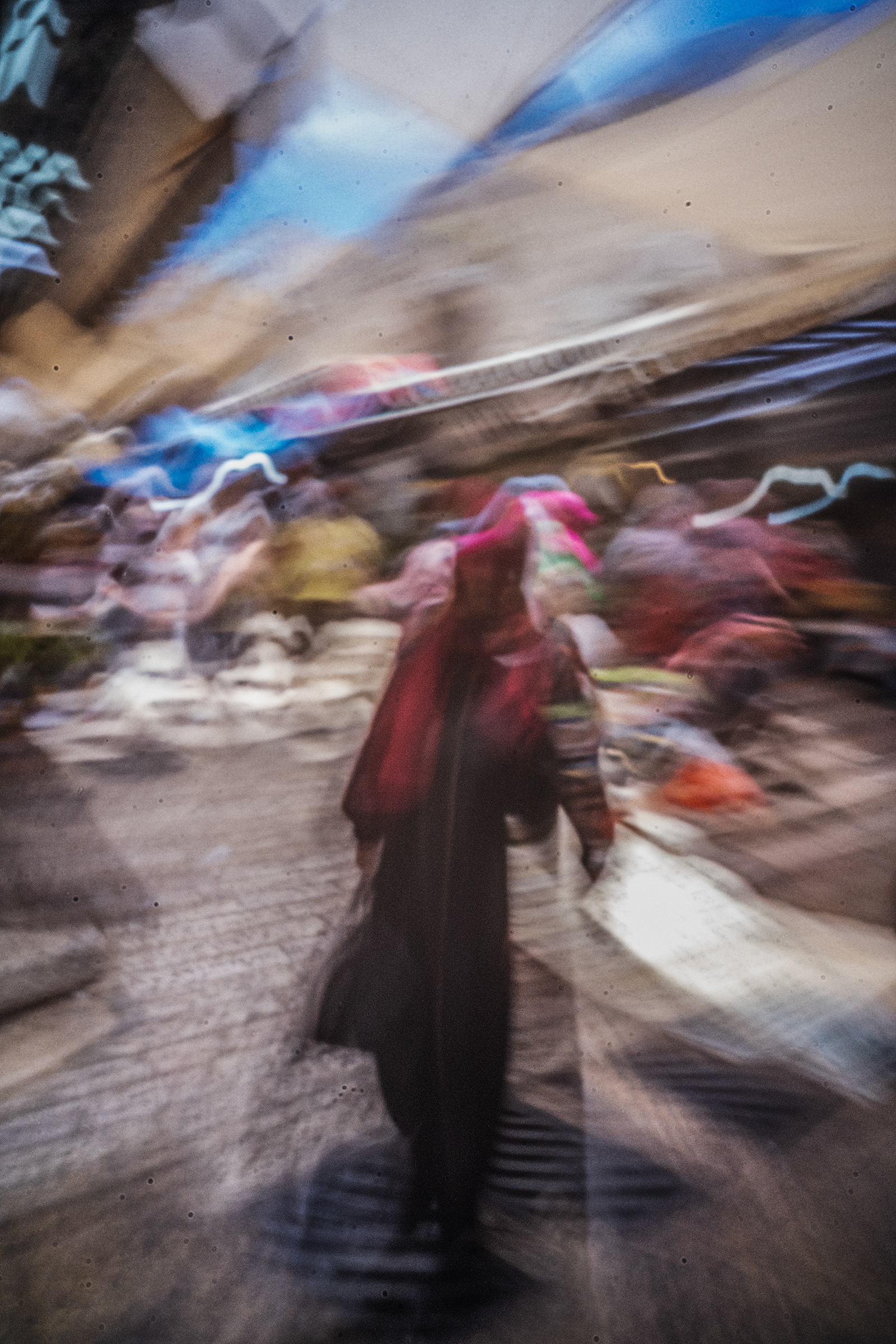
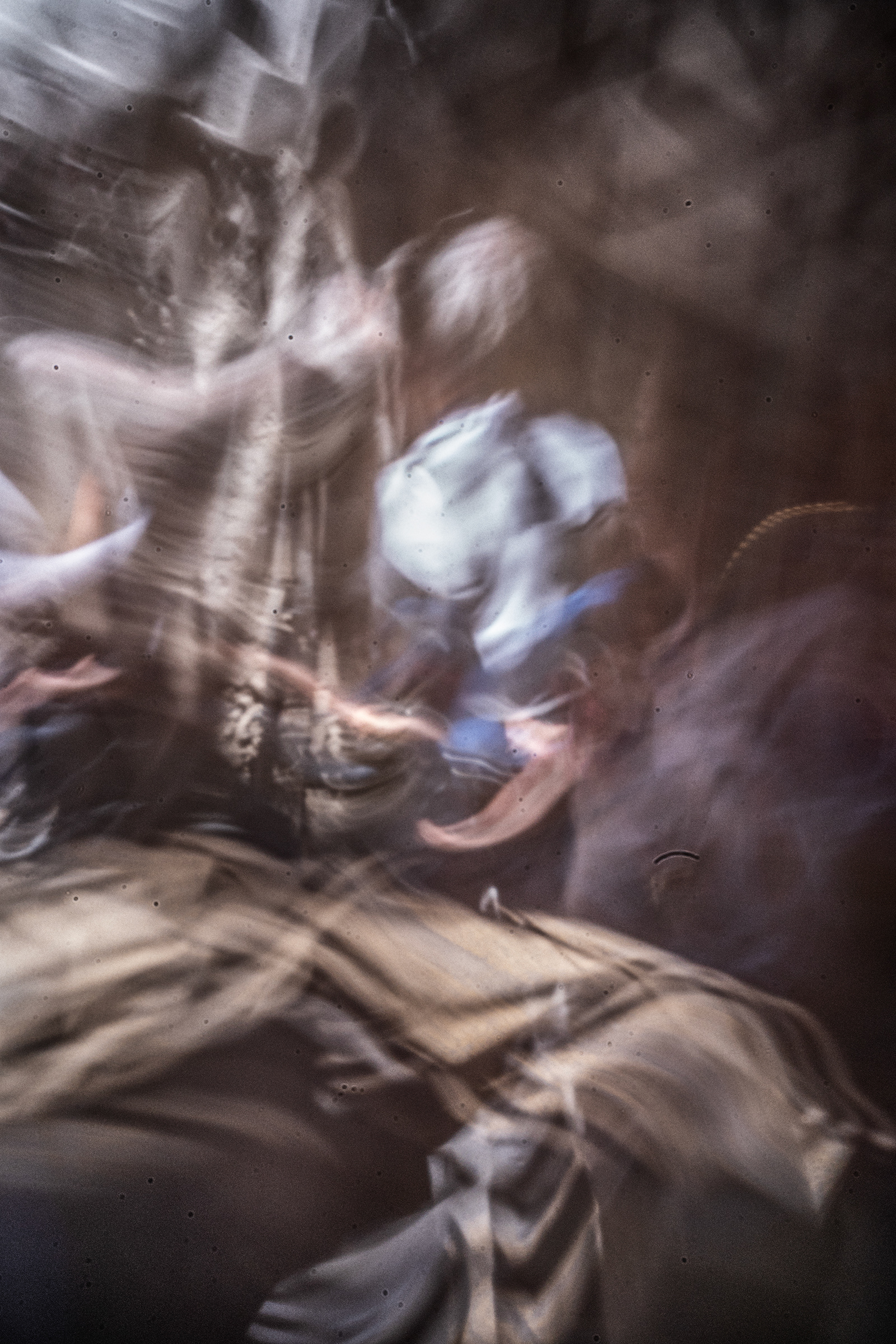
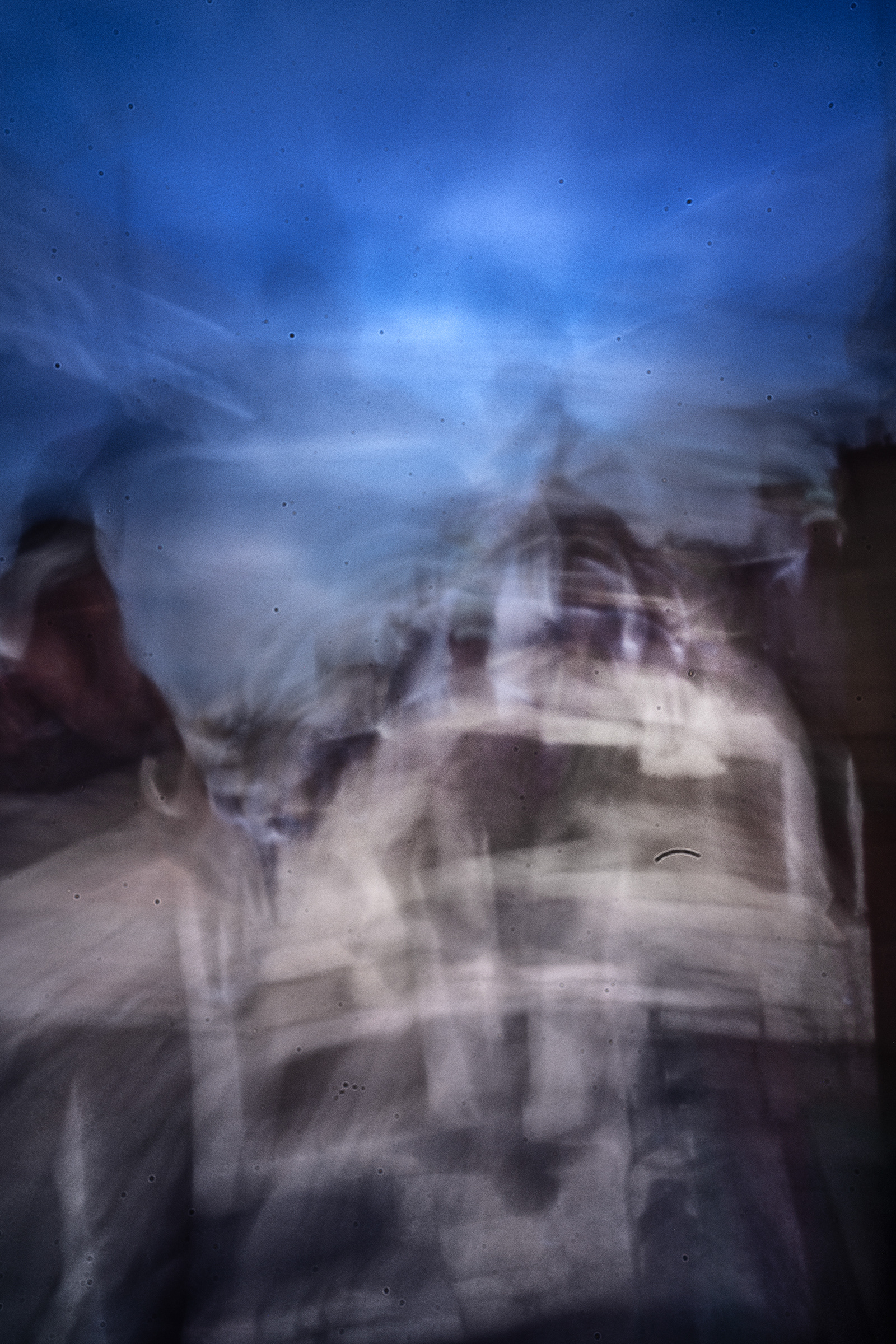
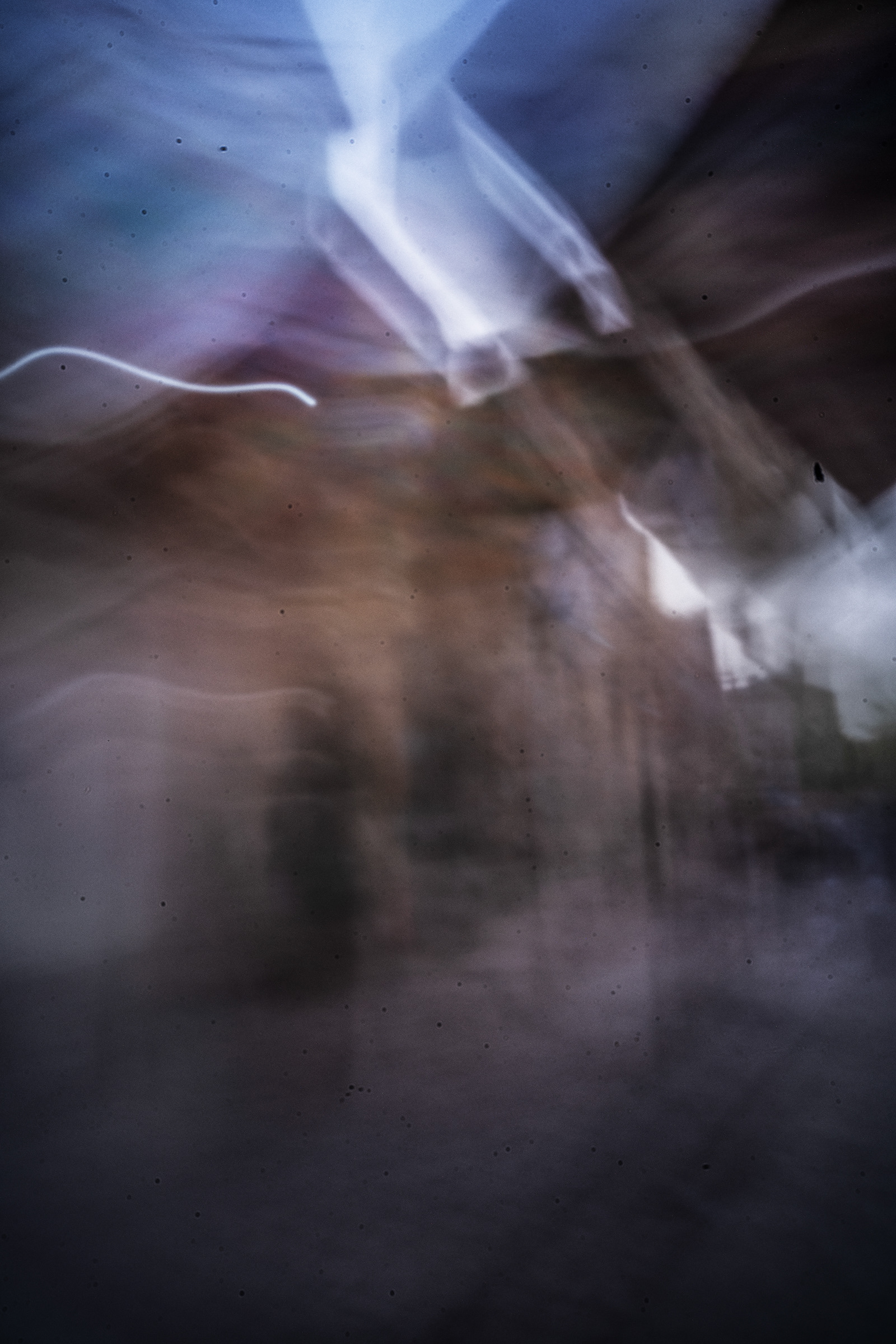
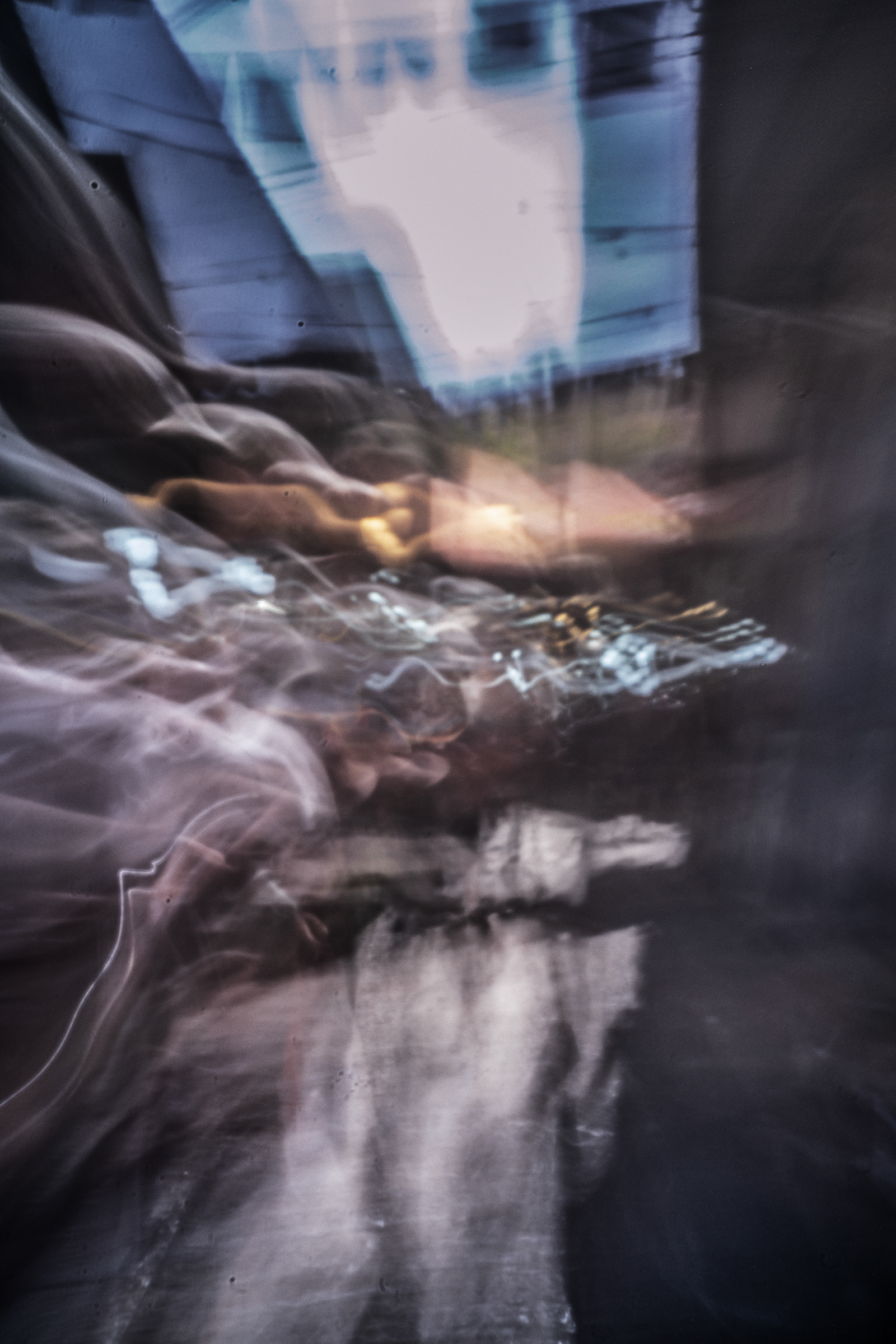
The center of my demurral was my politics: I have never been a Zionist. By this I mean I never learned to fuse my own ethical and spiritual values as a Jew with the realities of a Jewish ethnostate founded on permanent, violent domination of the land’s historical inhabitants. It has always seemed to me that the Israeli experiment depends on permanent war against Palestine. This is the state's psychic origin in Jewish rage, shackled to its twin—the deferred dream of Jewish rebirth, or what Walter Benjamin calls the "weak messianic power to which the past has a claim." This perspective is, of course, anathema among Jews who have learned to think that Israel is the guarantee of Jewish safety—a view horrifically shattered with the events of October 7th, 2023. Against those who equate anti-Zionism with antisemitism—or in my case, those who would label anti-Zionism as Jewish self-hatred—the issue is not whether Jews in Israel deserve the same rights of self-determination as other peoples. They do. The issue is Israeli exceptionalism. Among the liberal democracies of the world, only Israel demands the right to occupy and politically disenfranchise millions of people living under its control. Only Israel arrogates to itself the right to dispossess, segregate, physically restrict, discriminate, injure and kill people as an expression of its right to exist. Only Israel demands that the world accept systemic violations of international law as extra-constitutional necessity (putting to the side that Israel has no codified constitution in the first place). And I saw with my own eyes what this means, having gone to Palestinian cities to learn first hand what Palestinian reality is like—a kind of learning that comparatively few Israelis seek out.
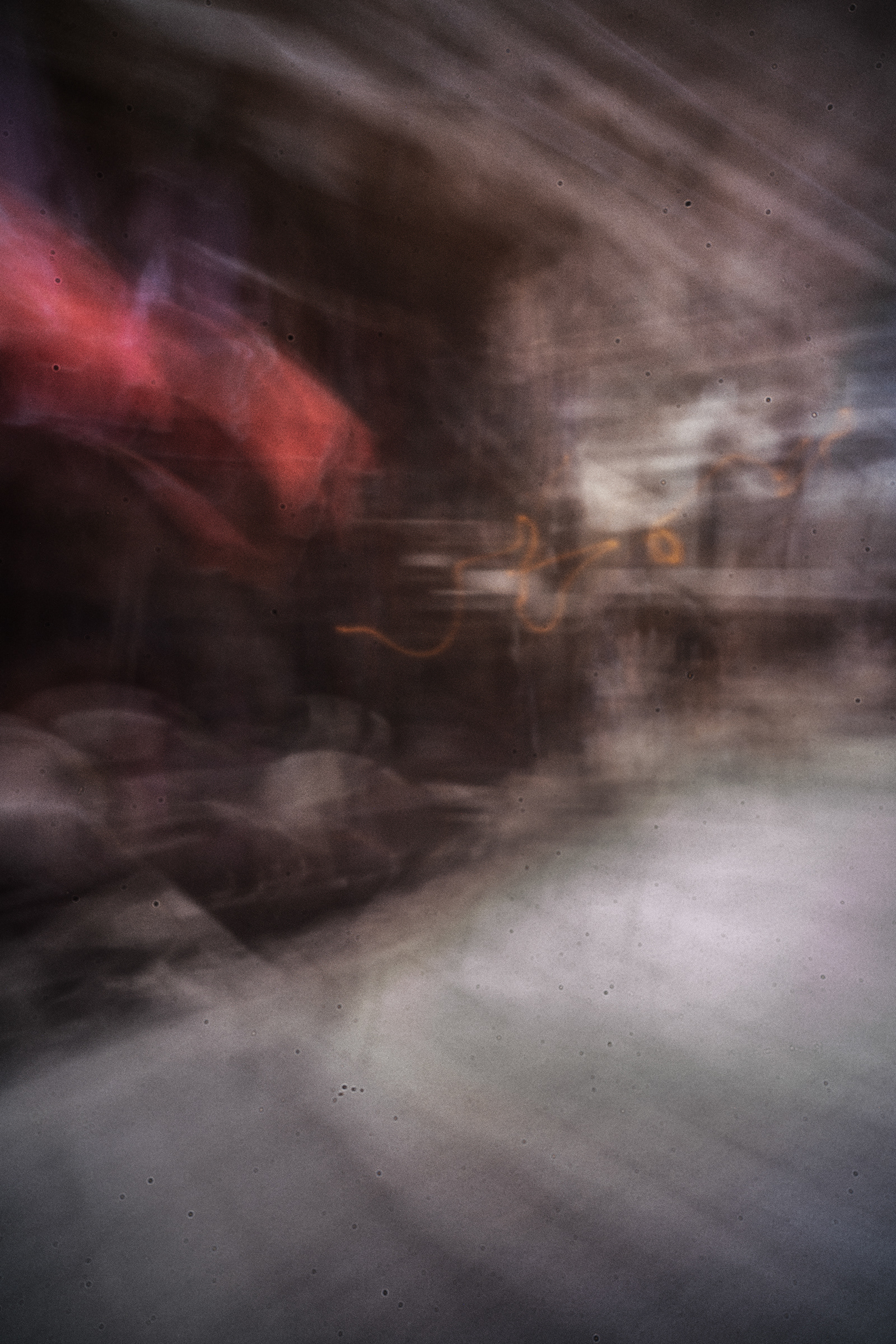
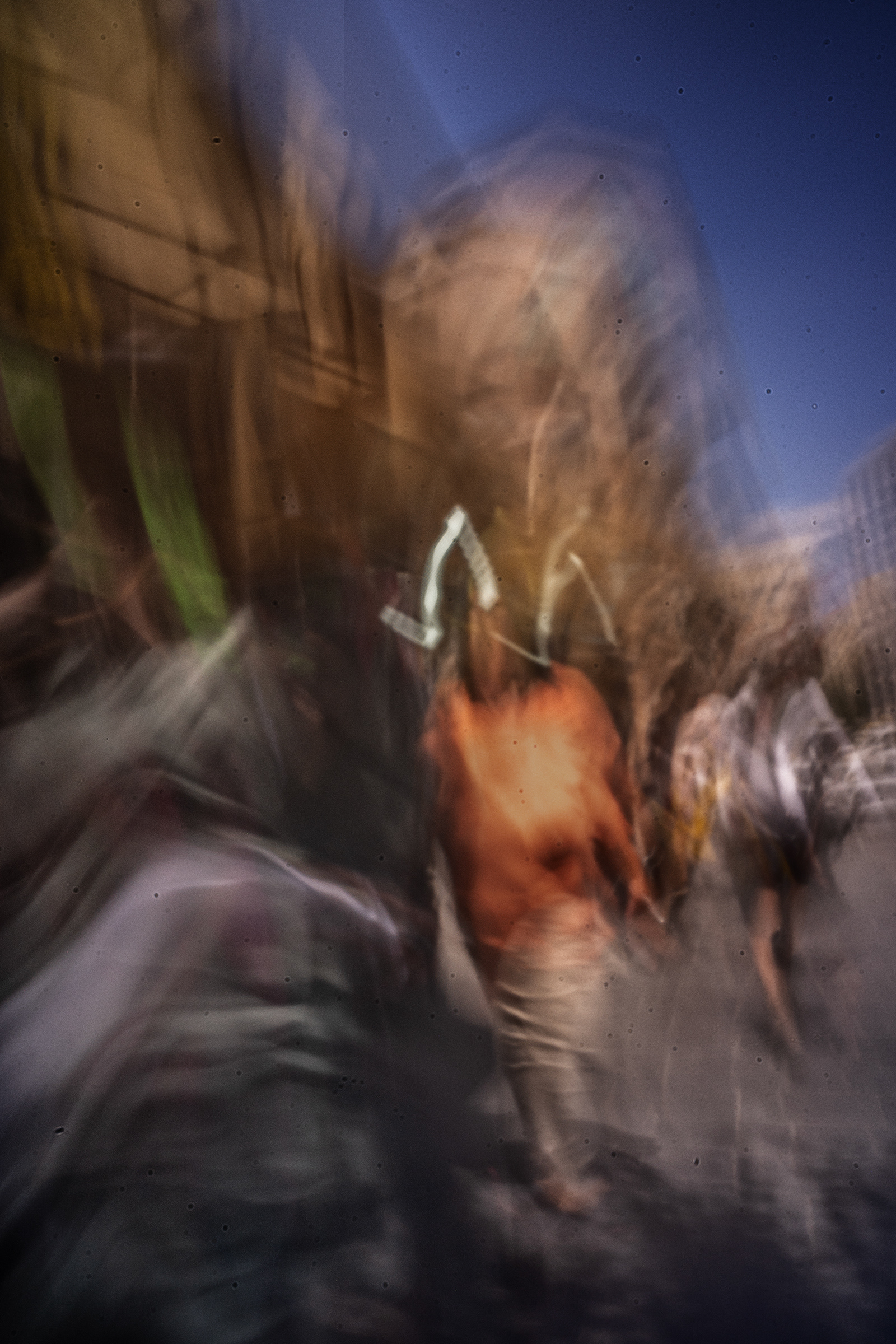
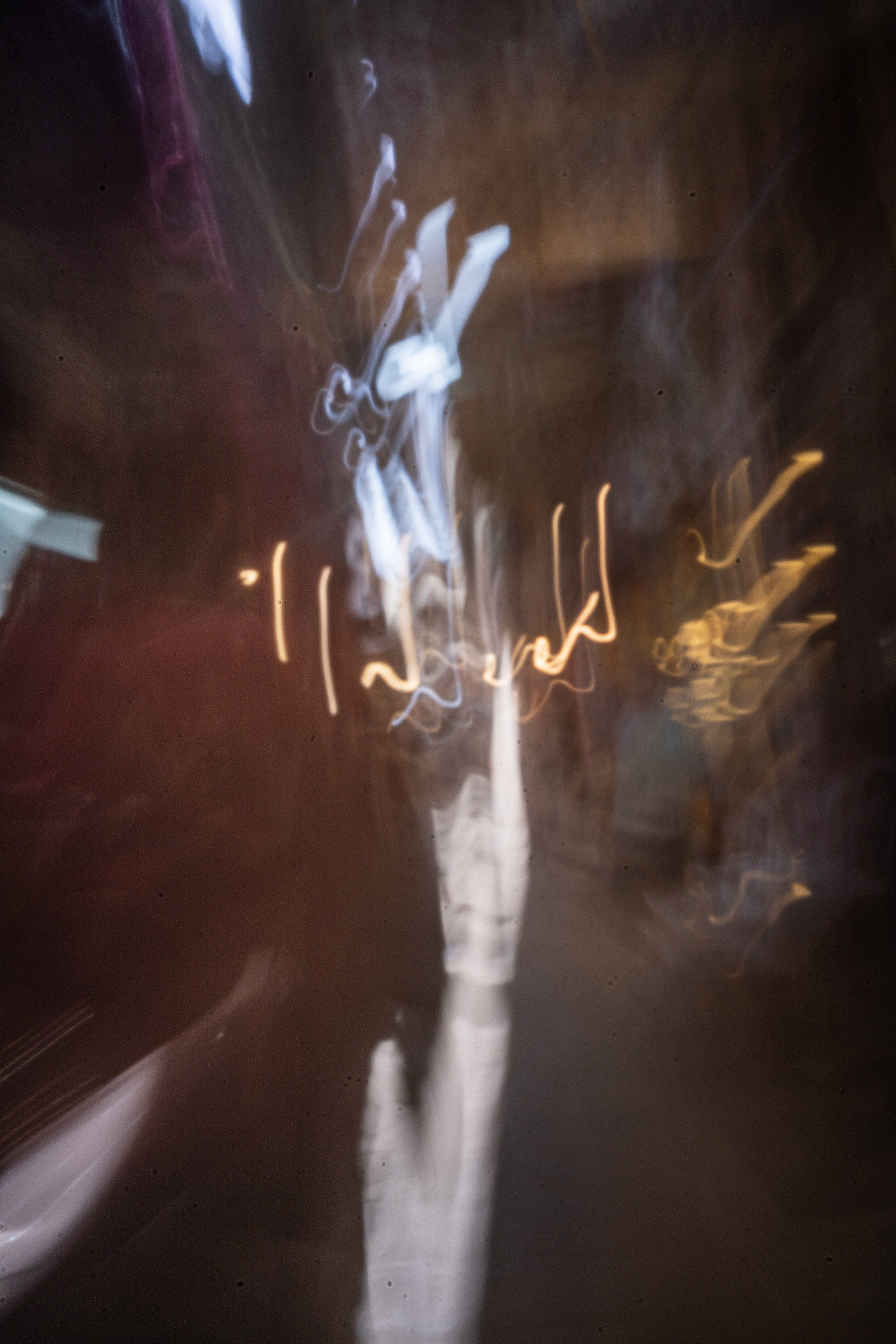
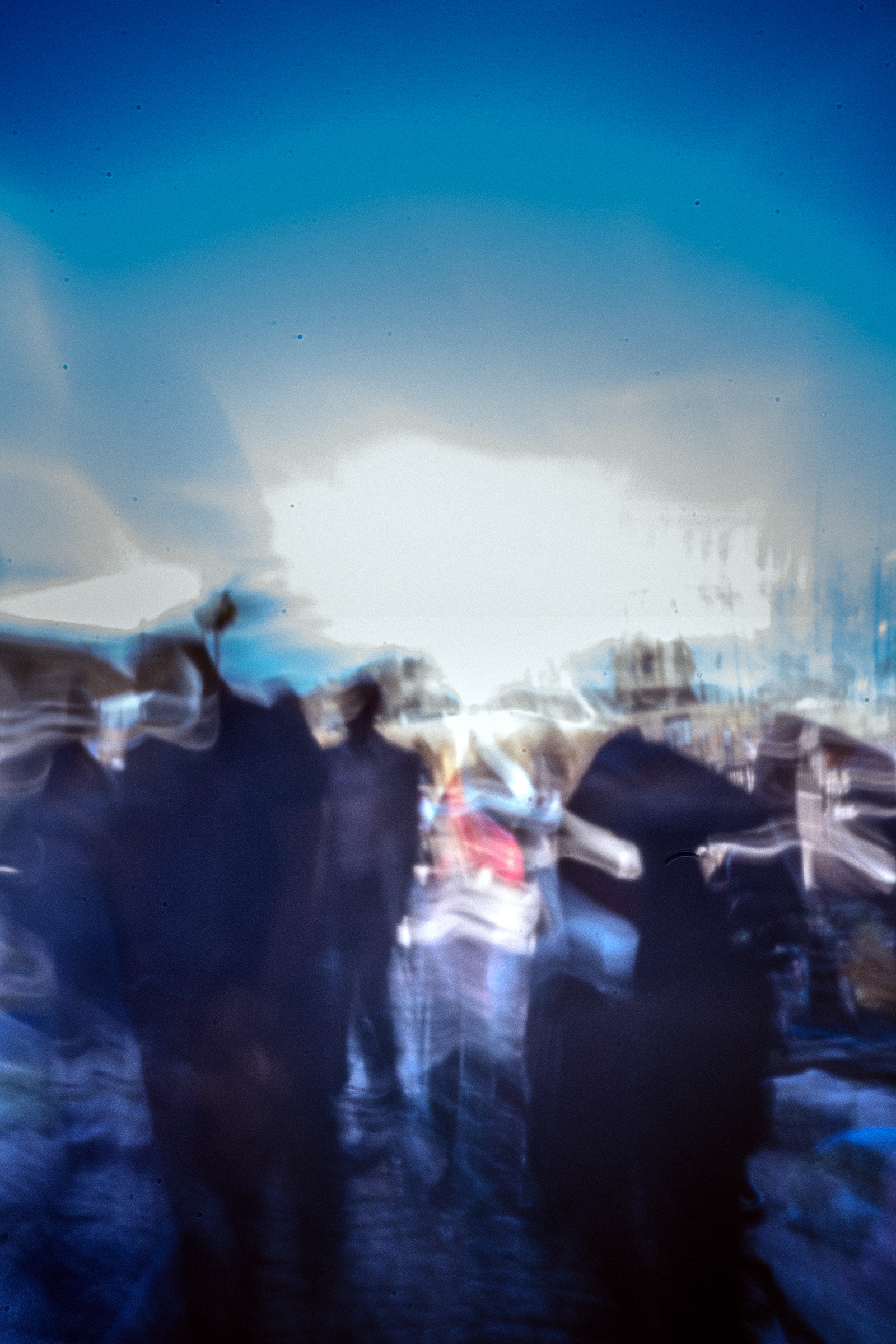
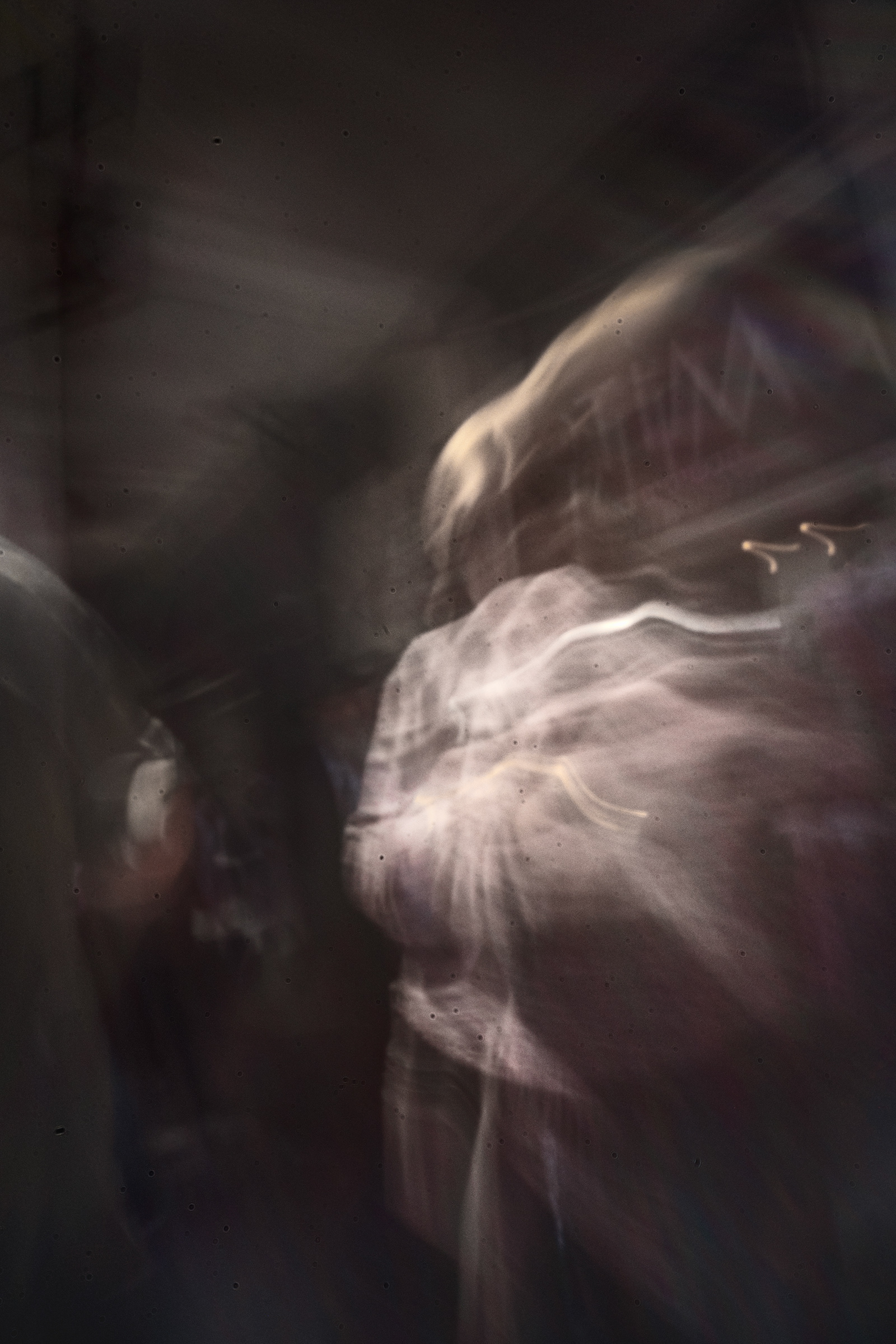
At the same time, and especially post-October 7th, I hasten to say in the elegant formulation of my friend Arthur Kiron: condemnation must precede contextualization, always. Just as there is no security for Israel in its apartheid regime, there is no liberation of Palestine in the vicious and barbaric murder of innocent Israelis. Palestinian jihadist terror is contemptible absolutely, and Israeli state terror is also absolutely contemptible, and I see no contradiction in those two statements. (And I note: the Israeli siege of Gaza following October 7th resembles nothing in recent memory so much as the conduct of Vladimir Putin's armies in Ukraine, which is not war but state terrorism, as Volodymyr Zelensky correctly calls it.) In insisting that we condemn what must be condemned on all sides, and that we do so first and then contextualize, I am taking my guidance from the Jewish religious principle, “pikuach nefesh,” the injunction to save human life before everything else. I venture: were all parties to apply this principle now, the result would be an immediate ceasefire and a clarification of what is universally most important. Oy, I am, as I said, quixotic of soul. And, too, I can see that I have also said too much about what these photographs are not really about.
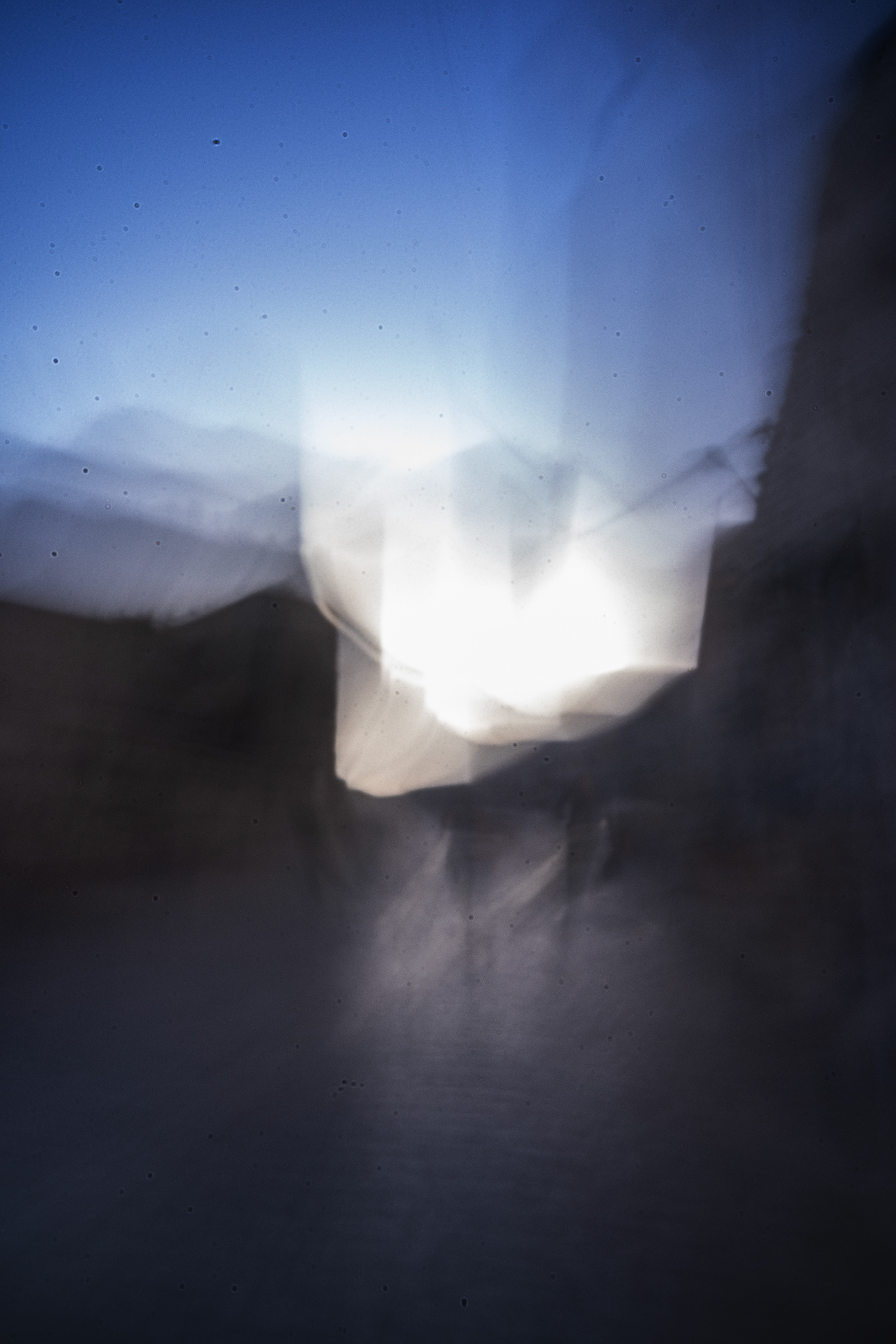
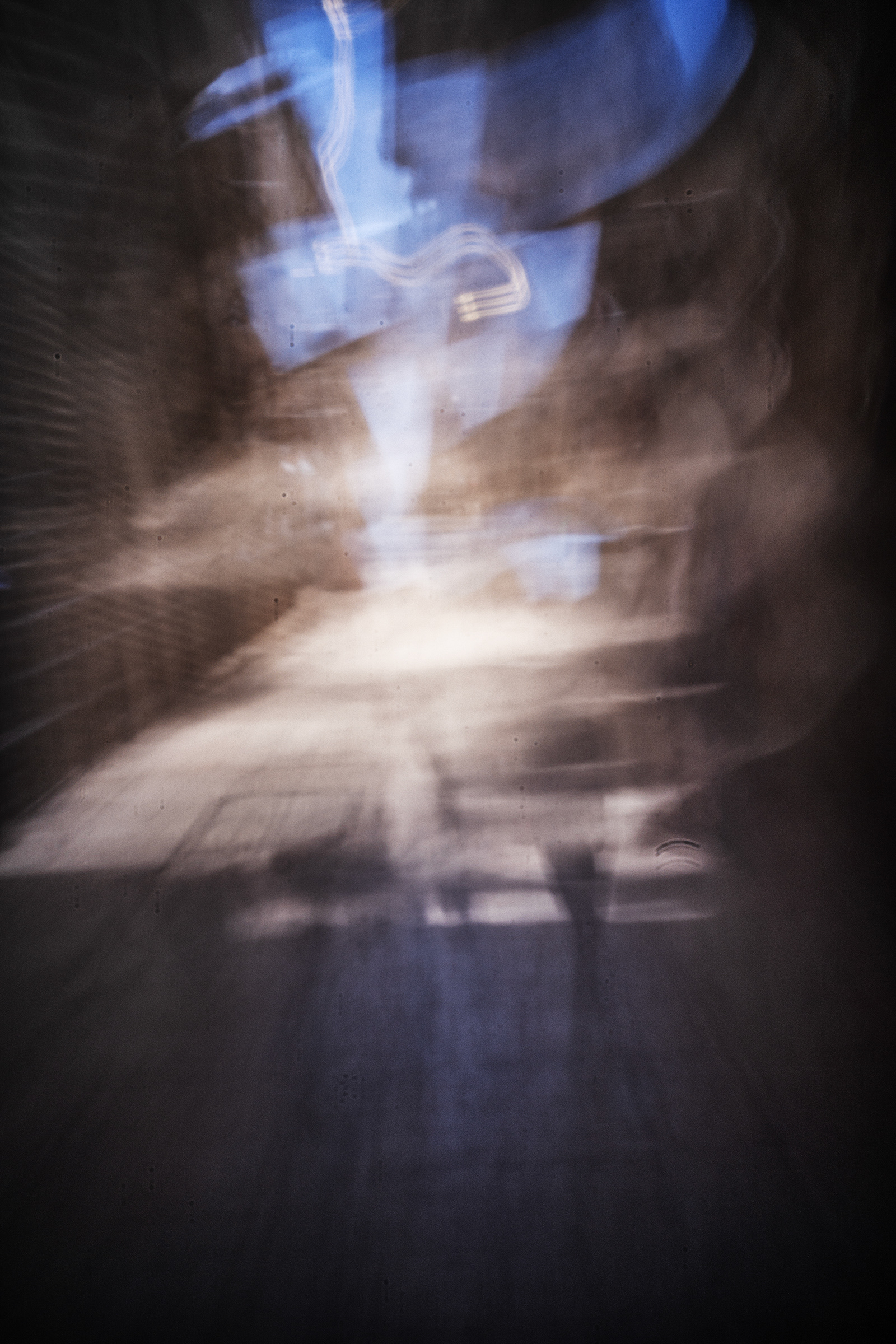
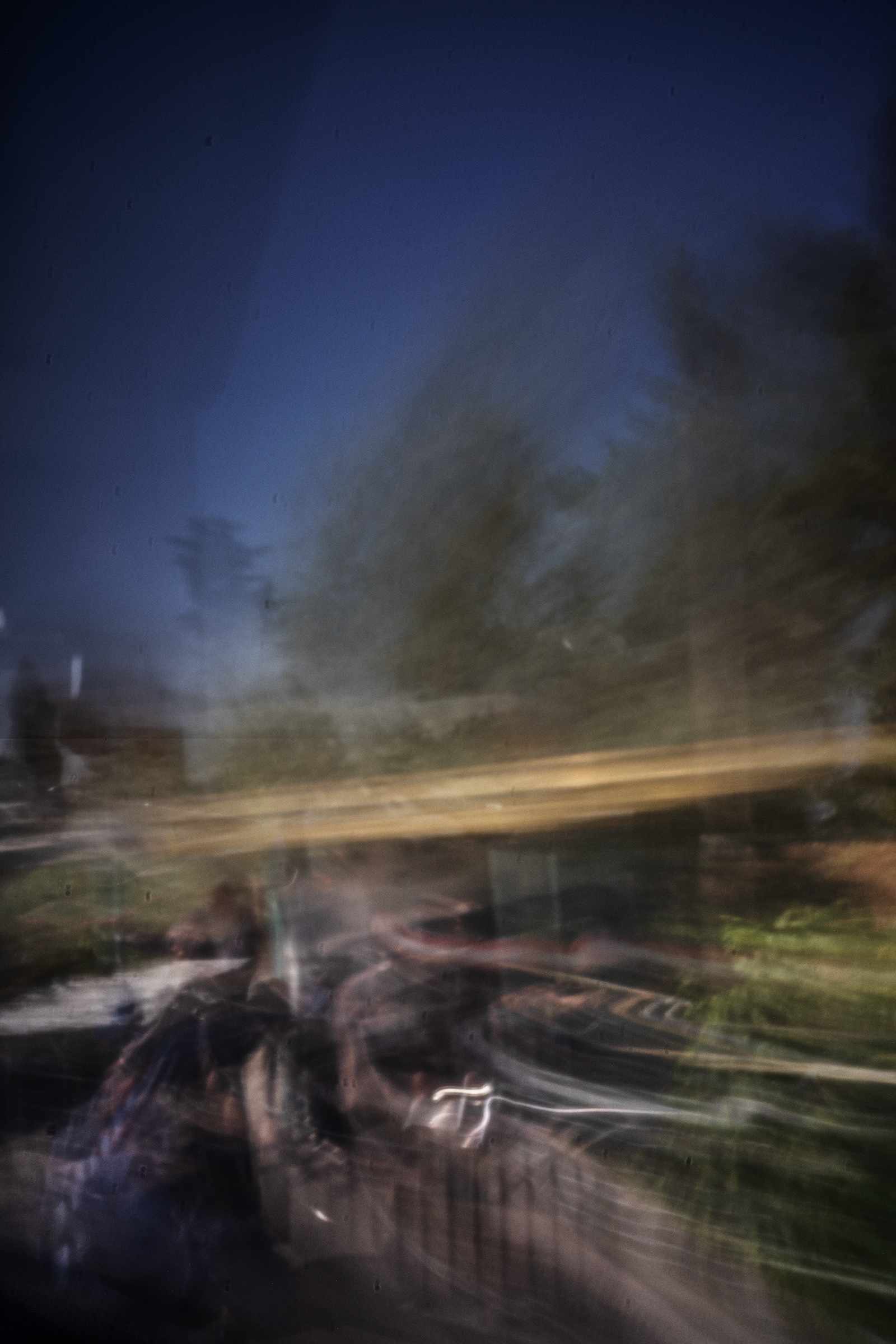
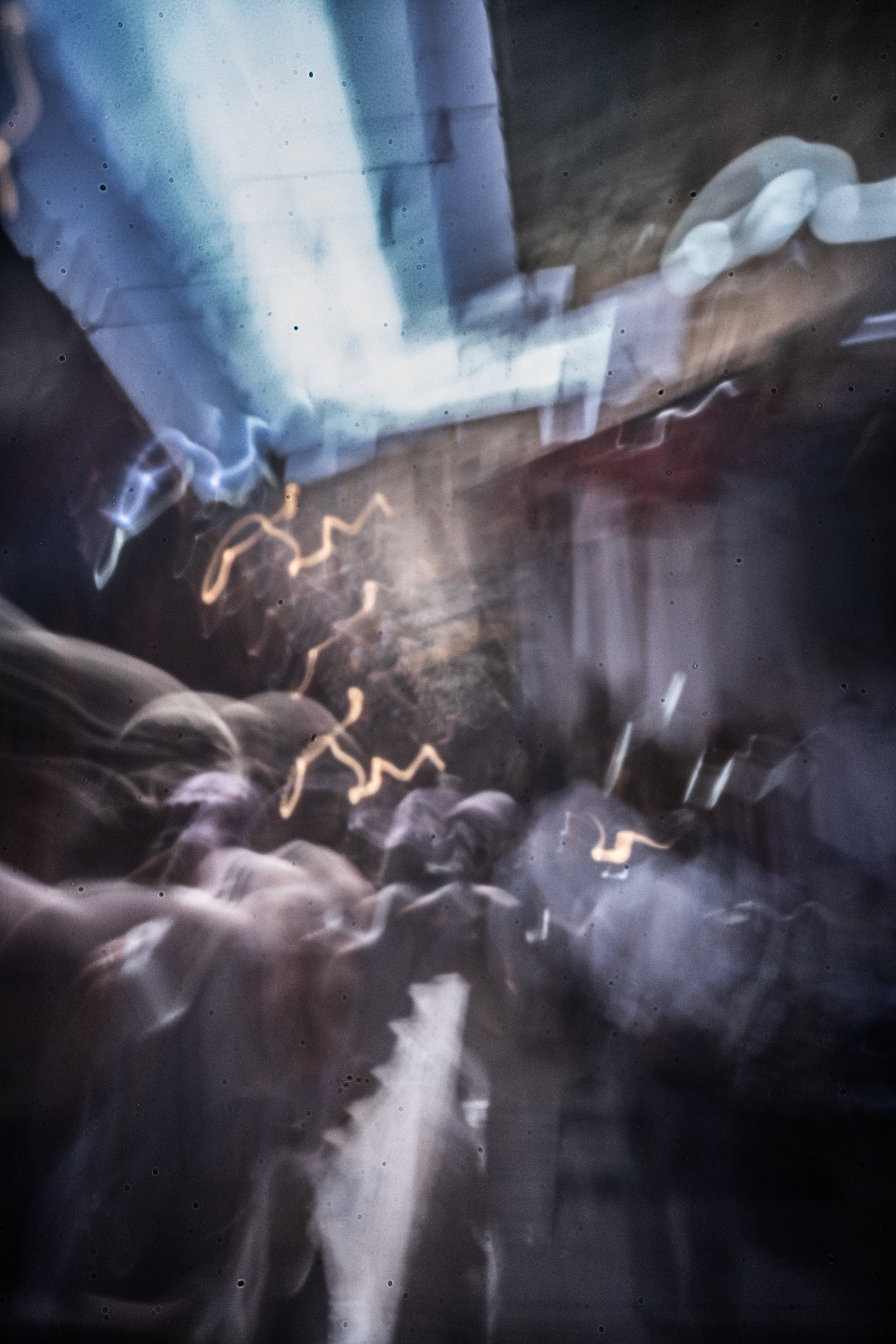
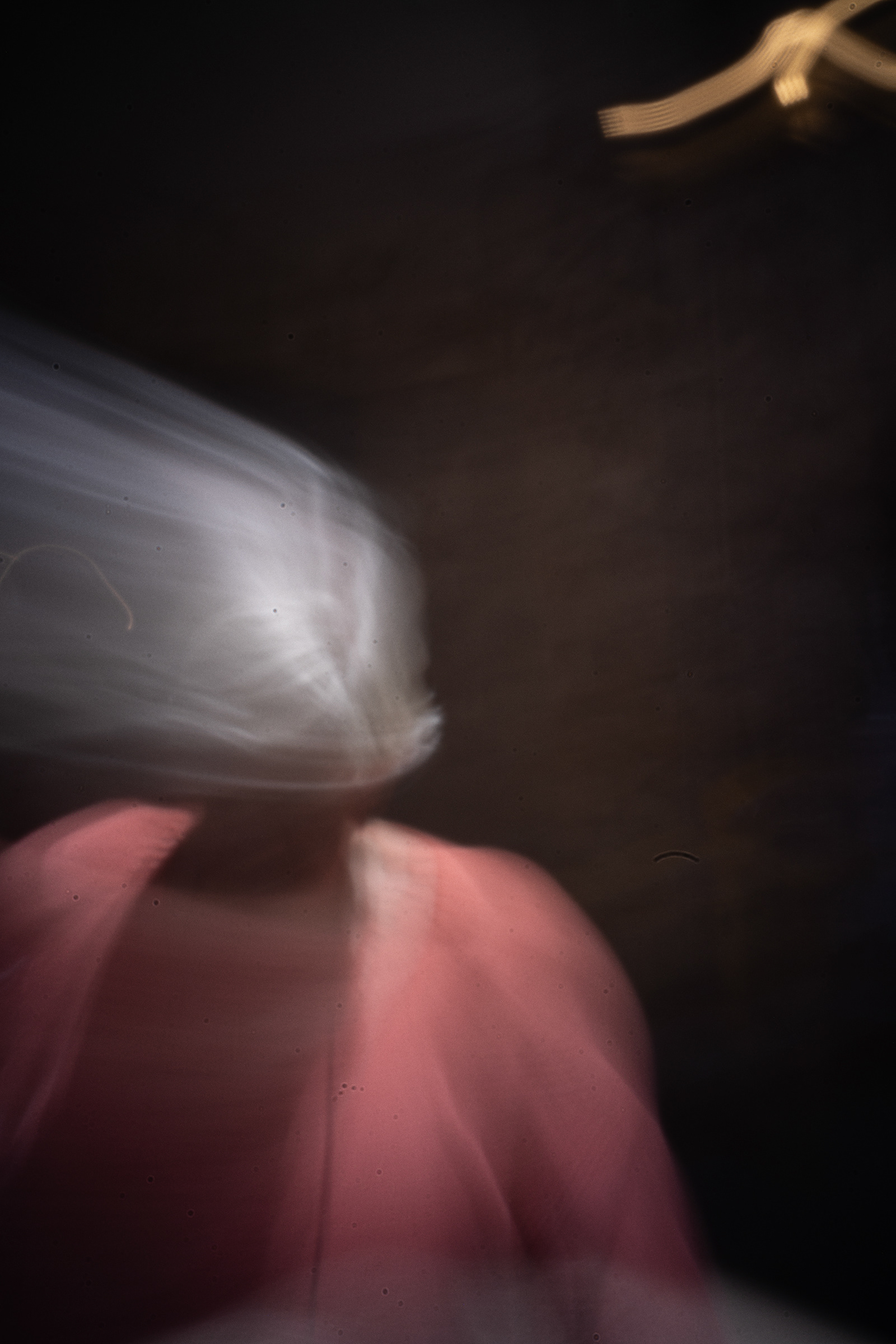
To say it as directly as I can, the predicating question for these photographs is this: does Jerusalem still deserve our Jewish longing? Or to ask it otherwise: did a spiritual Jerusalem cease to exist with the creation of the Jewish state? Did the state of Israel swallow the spiritual city that for millennia has carried our dream that the world have a geo-psychic center, a nodal point of holiness? And if the spiritual Jerusalem does still exist in the collective human heart, are we at liberty to consign it to the harsh realities of our age, declare it ancillary or unreachable? Are we at liberty not to renew the deep Jerusalem of the ages in new visions, new forms?
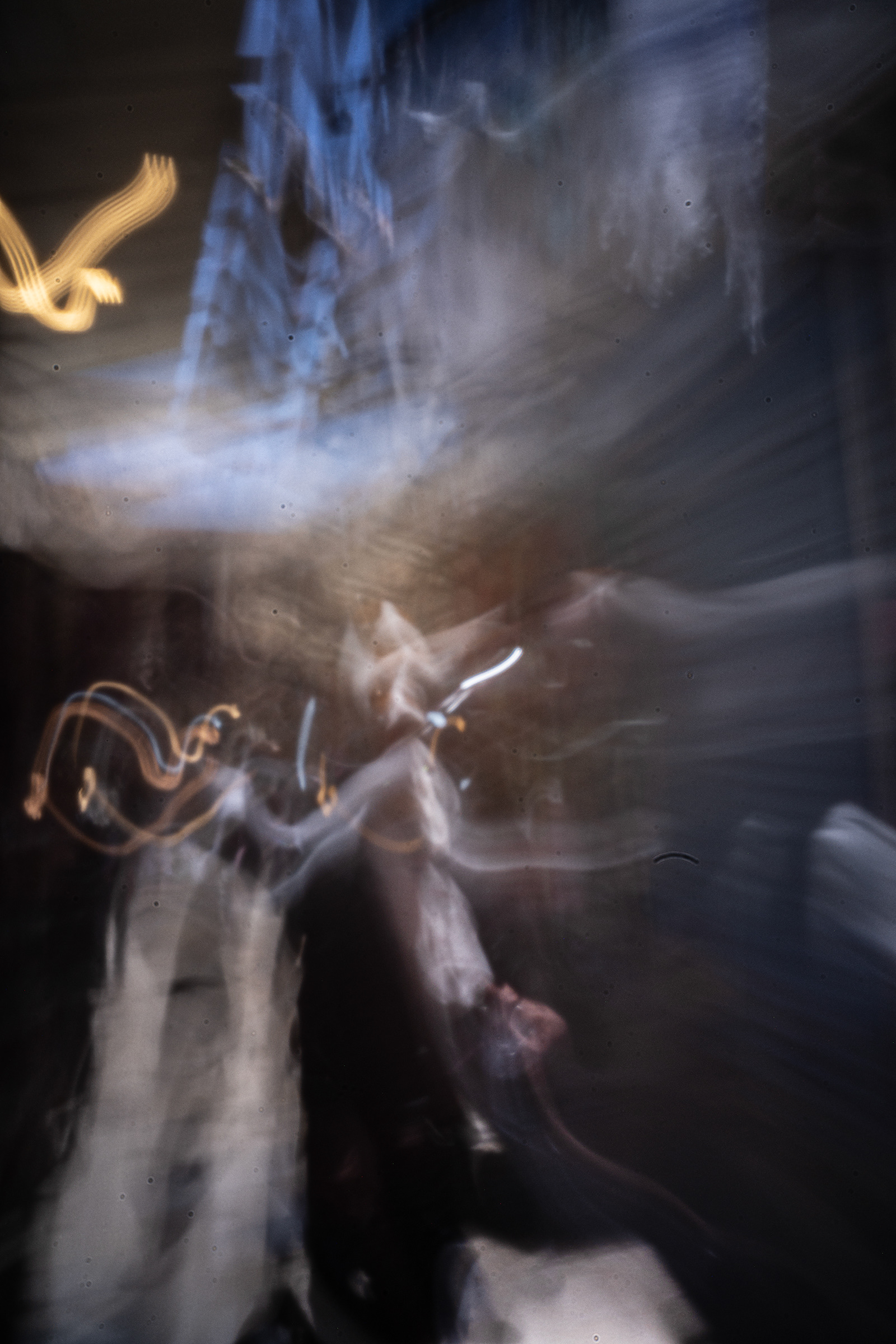
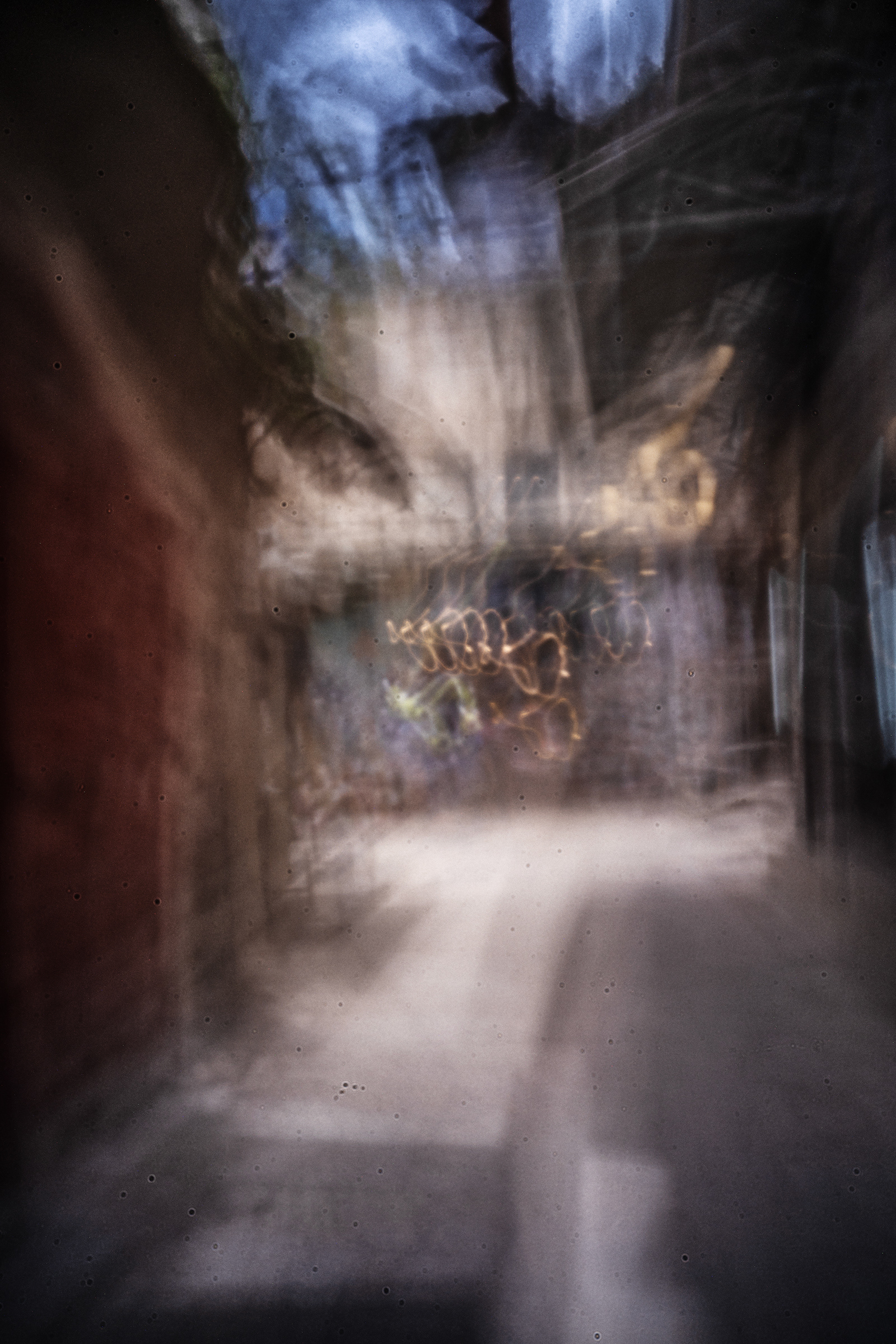
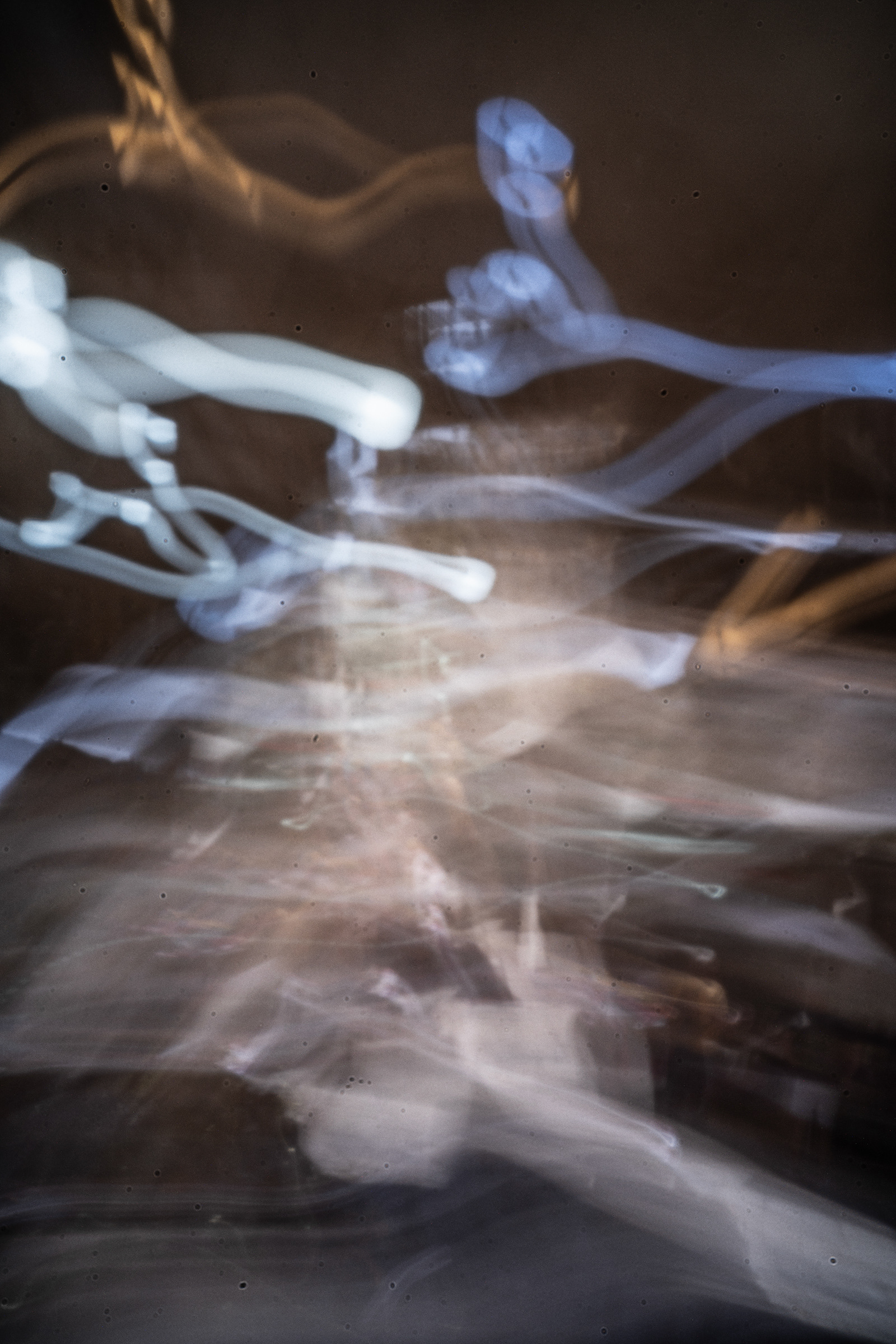
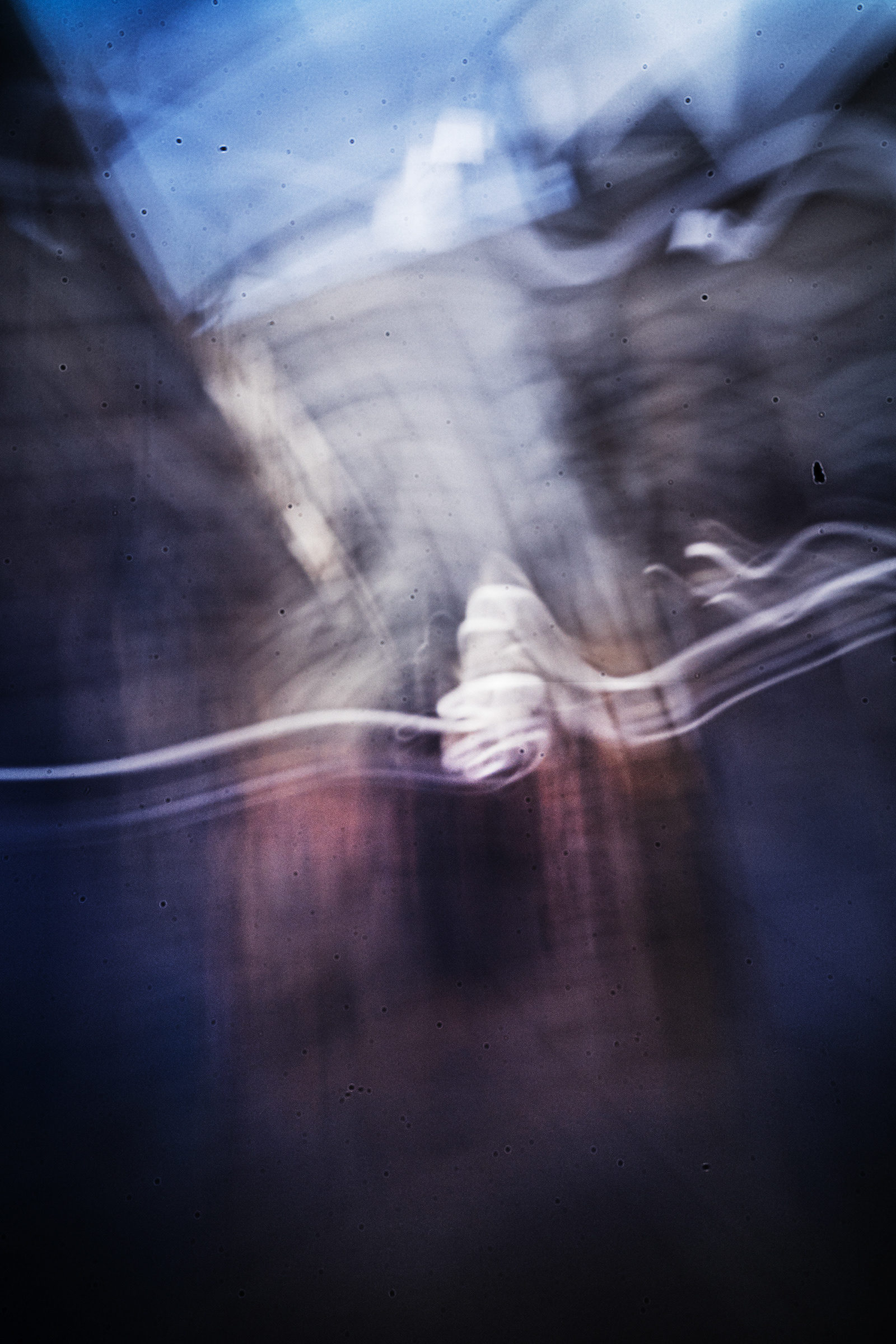
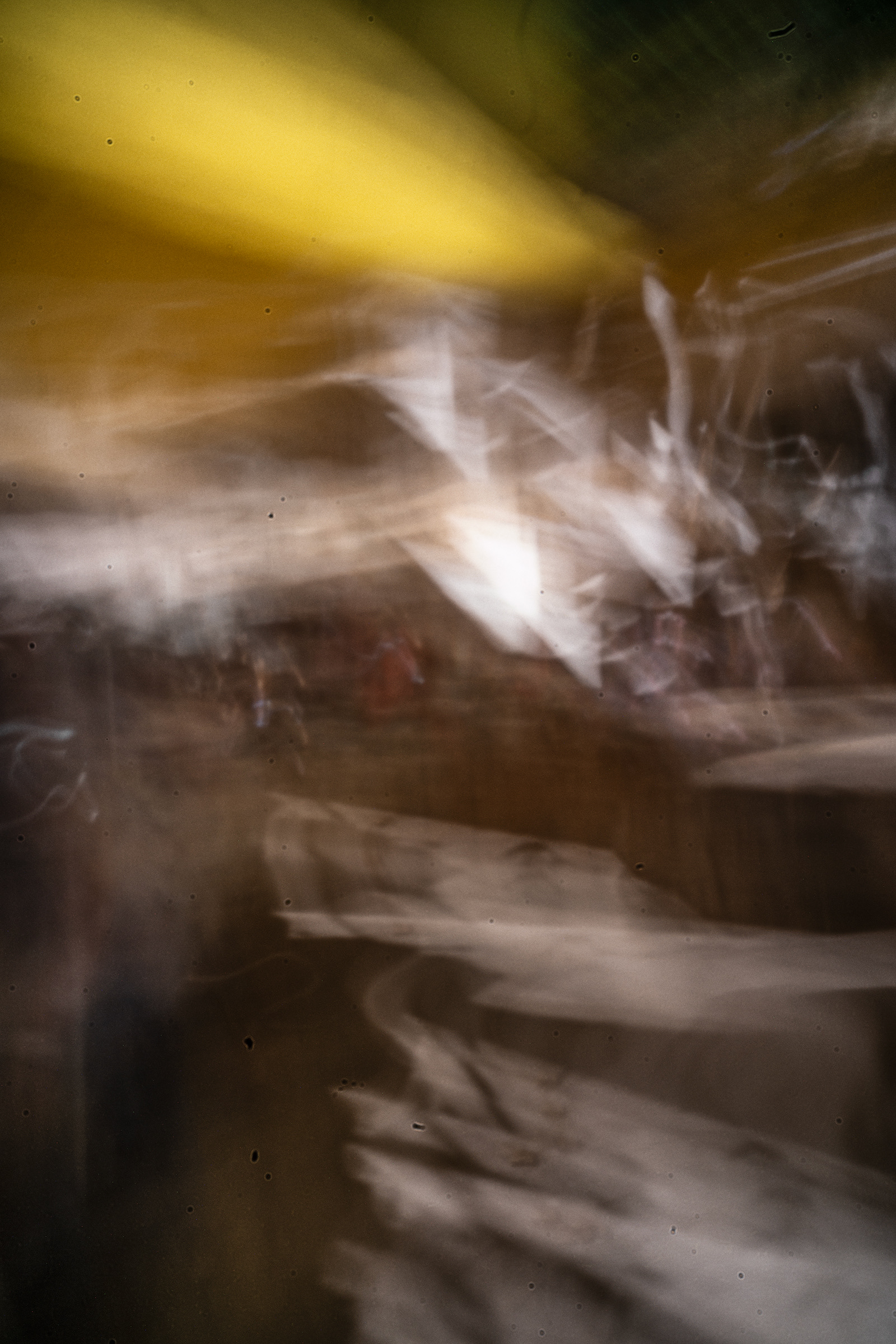
Let me be more specific: am I wrong to say that the distinguishing feature of the spiritual Jerusalem is everything it lacks? It seems to me that the holiness of the spiritual Jerusalem is precisely that it does not belong to the dominion of war, and its affluence owes to the scarcity of certain illusions. It lacks, for example, the illusion that freedom is a prize or a spoil or a belligerent extraction, or that victory brings freedom, or that freedom stands to be “secured” by disciplinary regimes that would enforce an equilibrium of mutual loathing. It seems to me that the spiritual Jerusalem has lost—has always lacked—fantasies of others’ permanent humiliation. Am I wrong to say that a city built around non-oppositional styles of freedom is what Hebrew means by a “makom” or a “place” in a sacred sense? The spiritual Jerusalem is not the place of the western wall, or the Temple Mount, or the holy sepulcher or the rock under the dome. Rather it is migratory—much as the Holy of Holies, wherever it once was, is the desire-filled space between a word’s singularity and its plurality, a space of magnetic desire between one holy thing and all of them, where holiness gathers not to settle but to disperse.
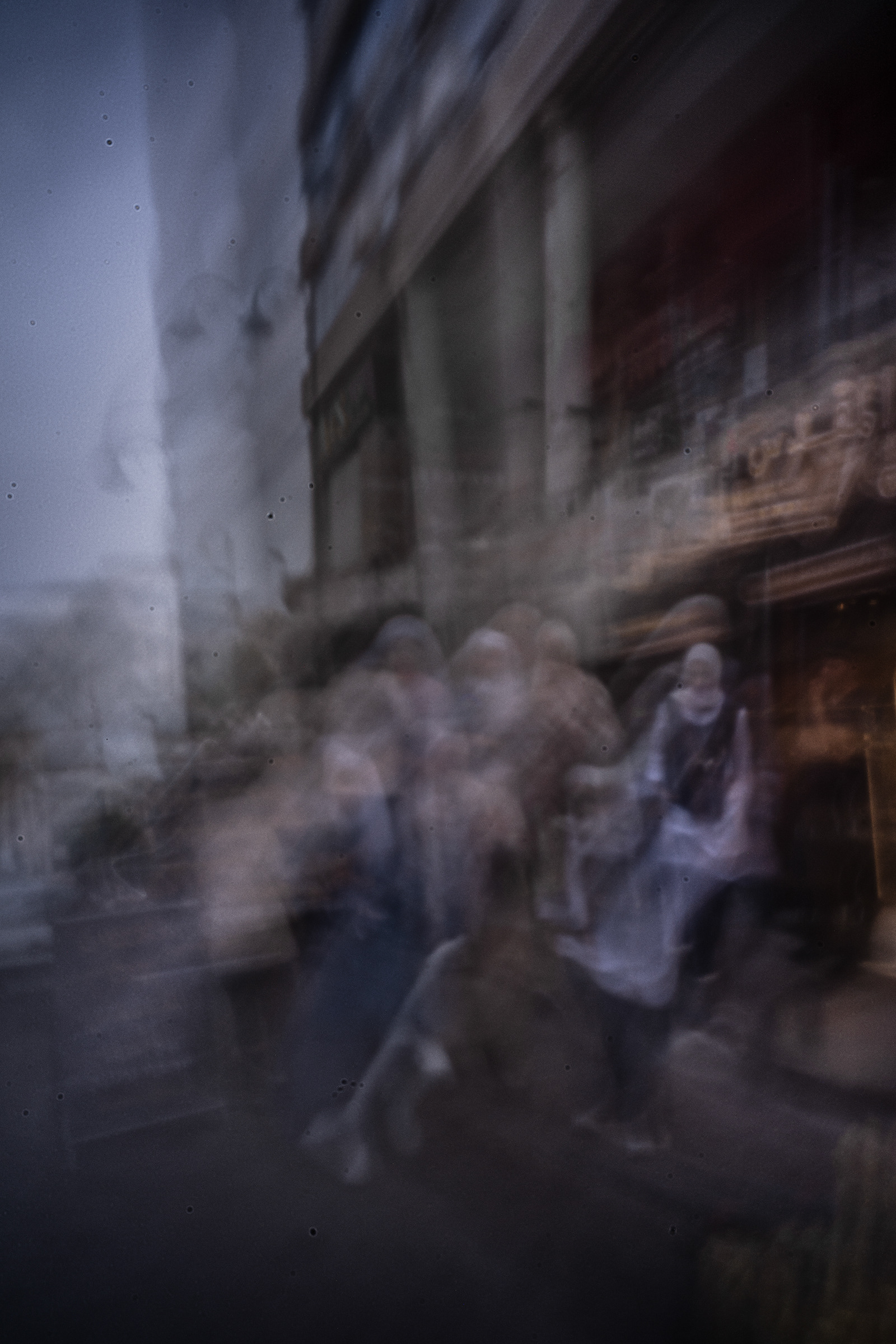
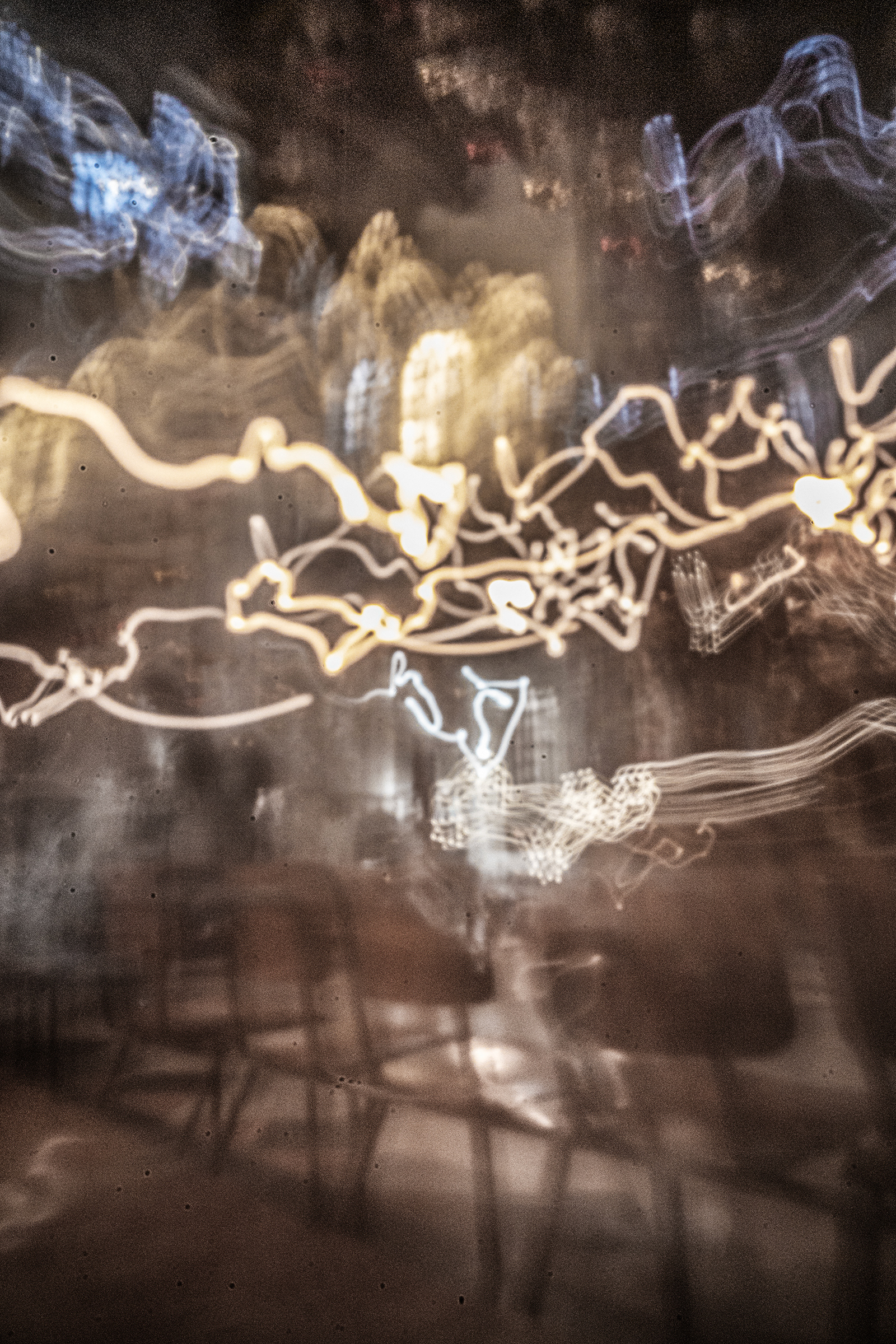
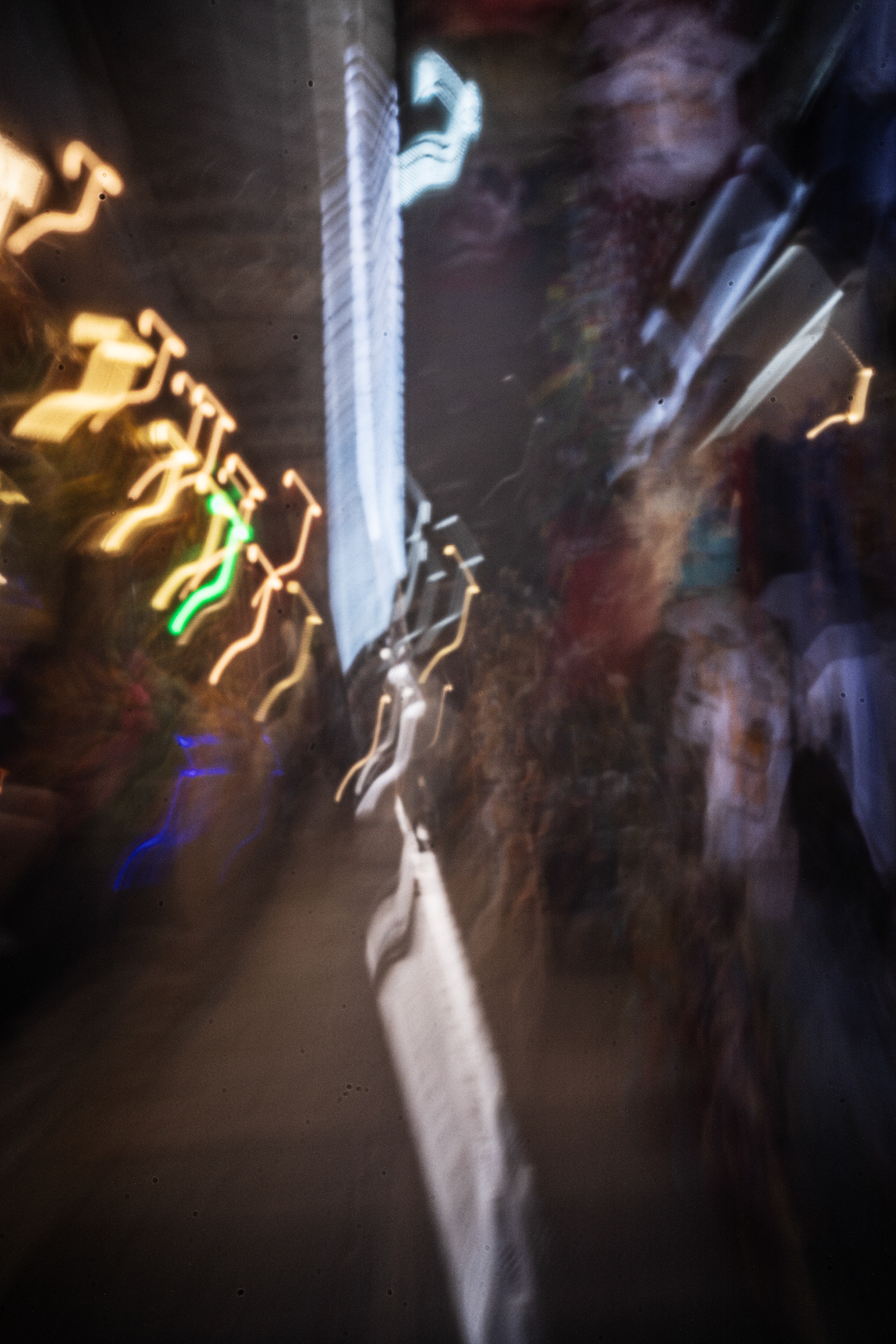
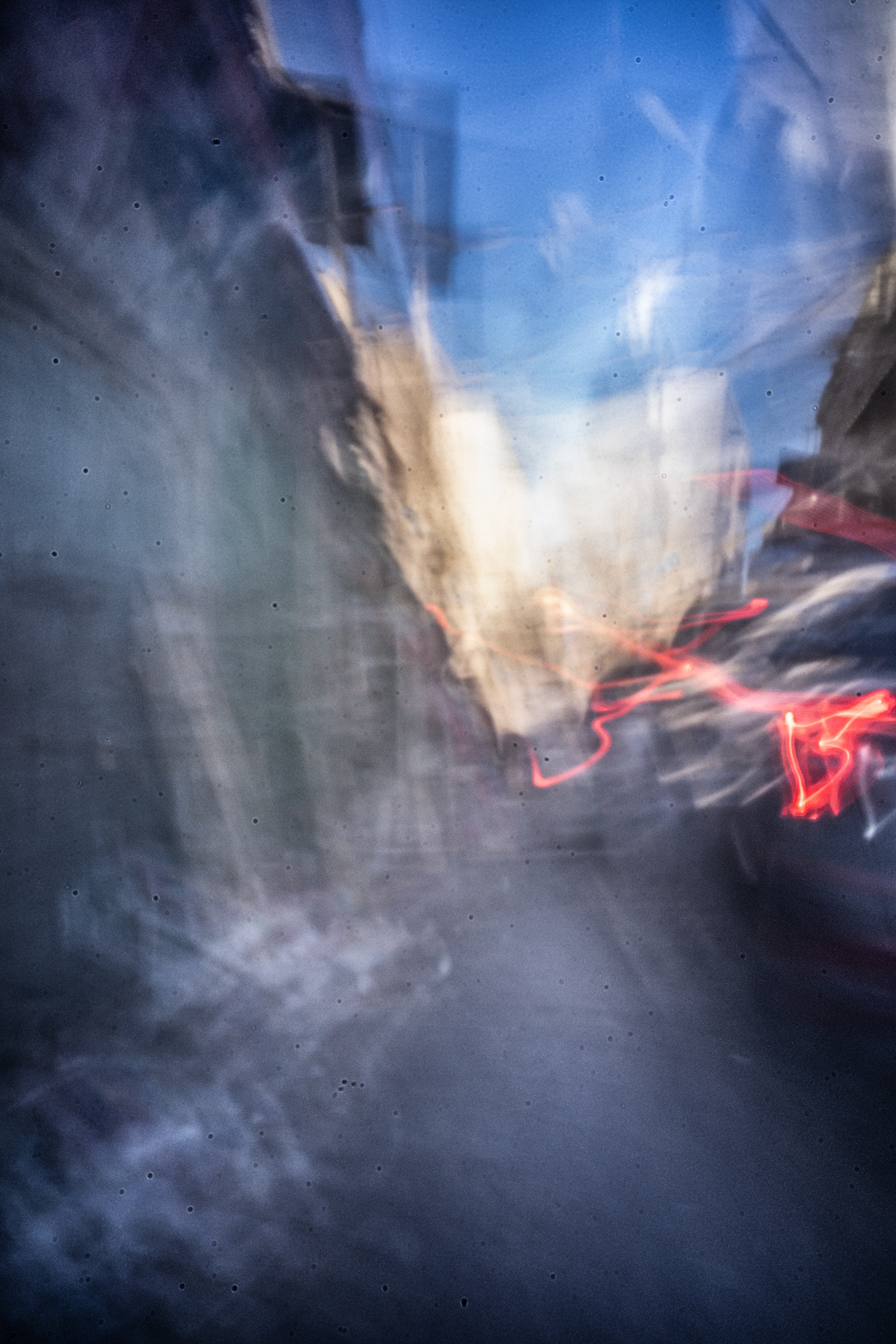
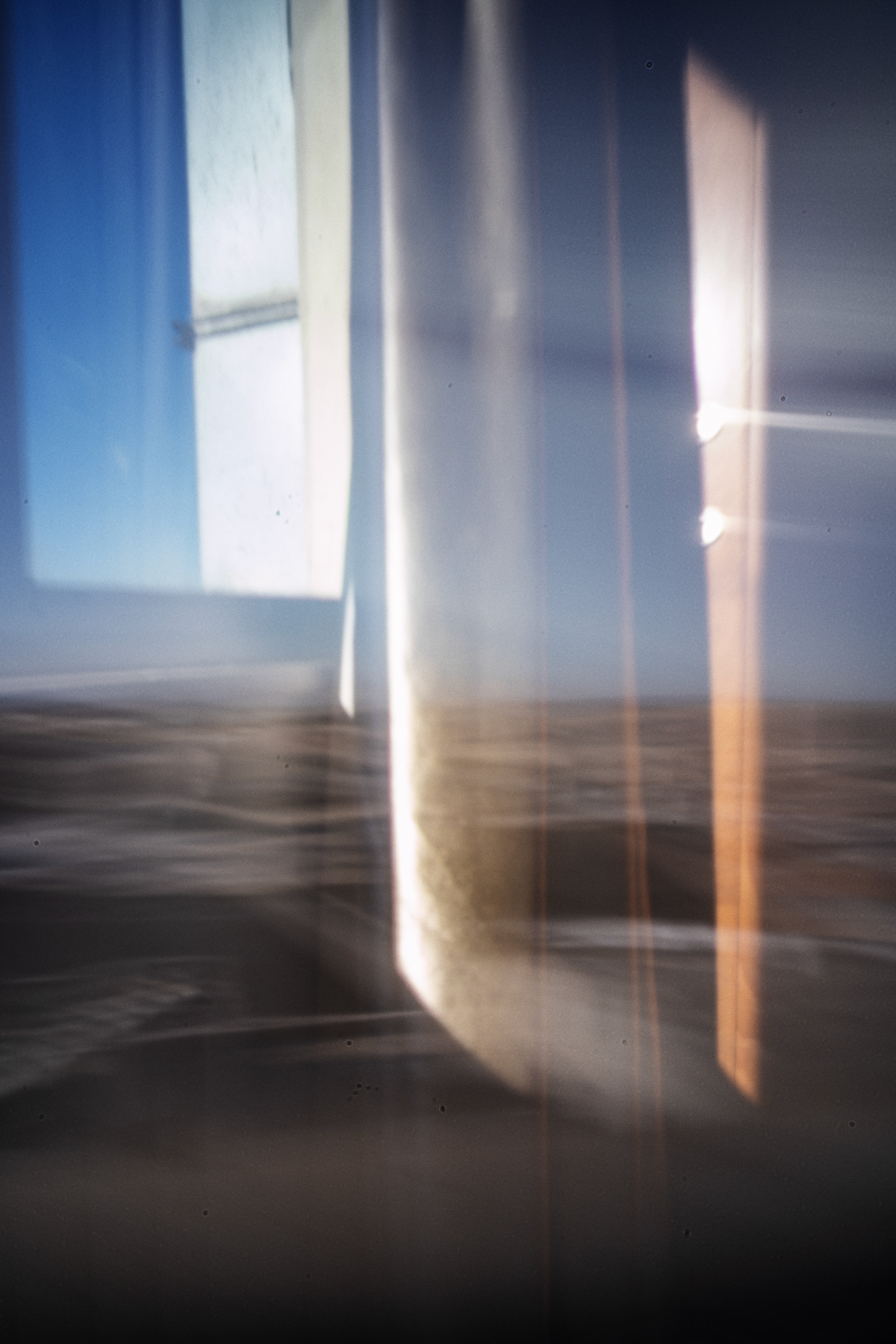
I recognize that I have betrayed my origins in diaspora. It is, yes, a renewal of a diasporic spiritual vision of Jerusalem that I am talking about, a Jerusalem from the diaspora and for it. It is true, yes, that I think the Zionists have consecrated a misunderstanding of diaspora, rendering it as vulnerability, endangerment, weakness, privation. I see diaspora as a gift: the gift of not belonging, the gift of difference, the gift of transposition. I see these gifts as elemental to the survival of the Jewish people over time, also to the Jewish path of healing and repair. And so it seems to me, yes, fair to want to return Jerusalem to the diaspora, in a manner of speaking. It feels to me right once again to seek from Jerusalem what generations of Jews sought from it—new visions of justice and vitality and uncapture, quite apart from its current captivity.
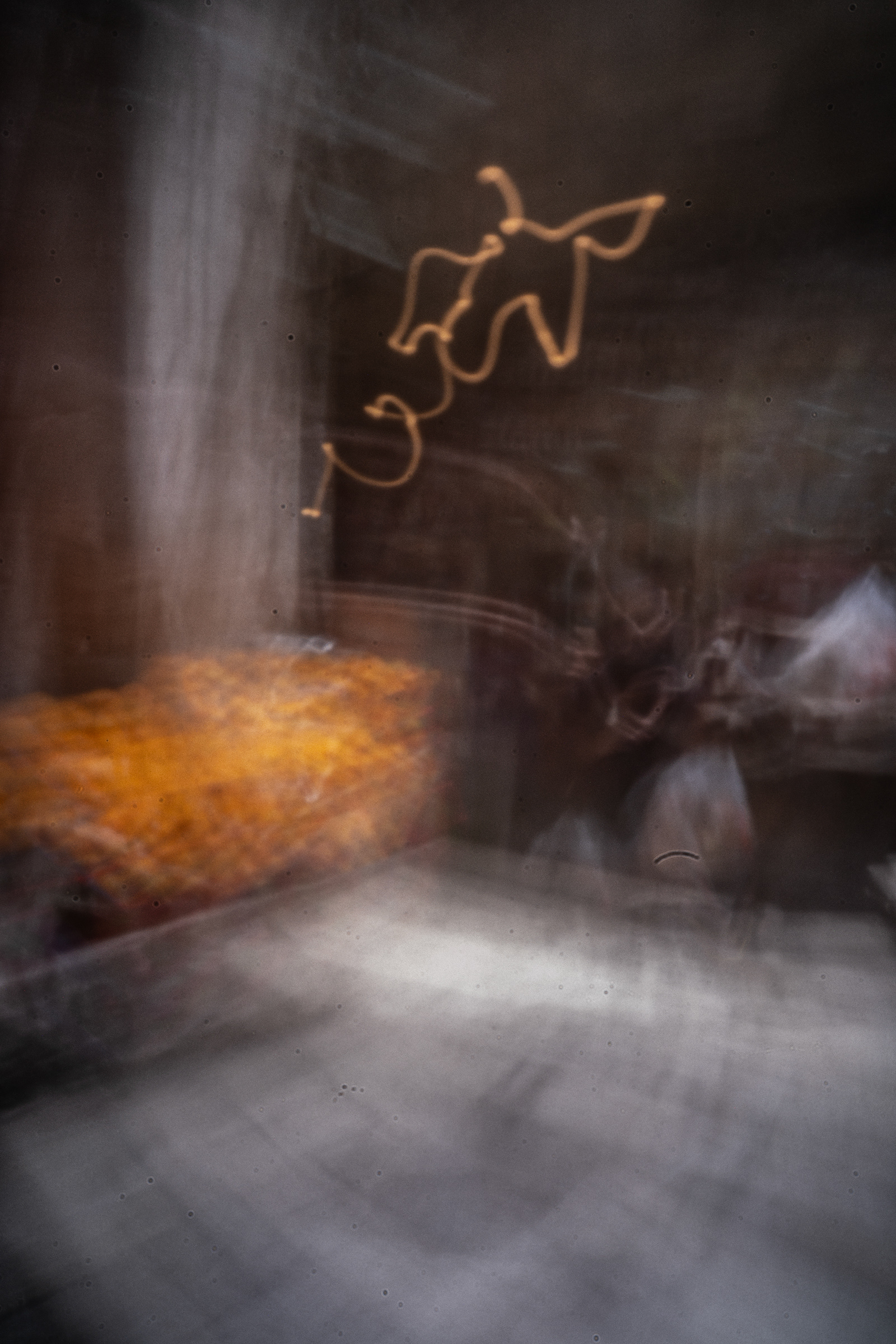
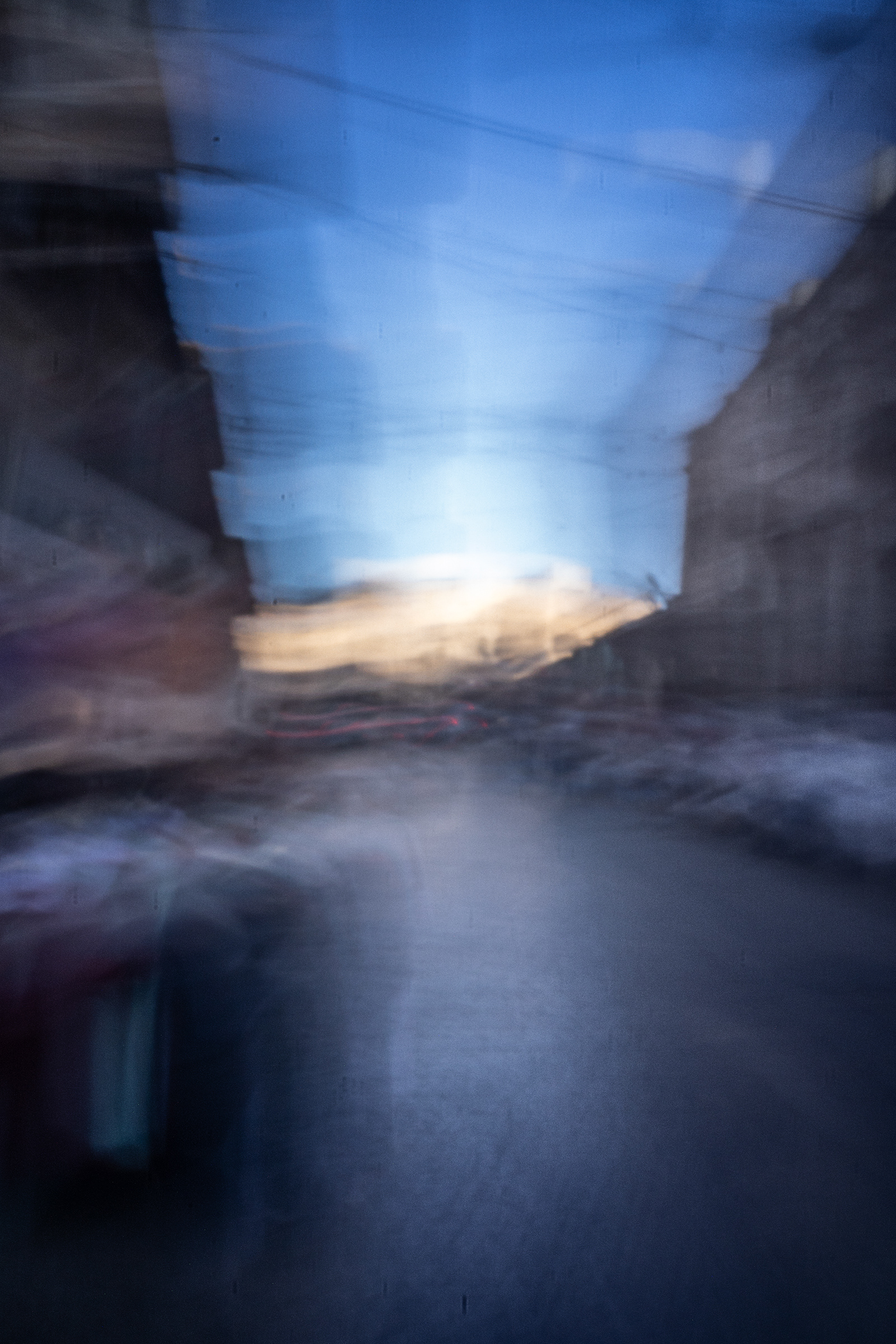
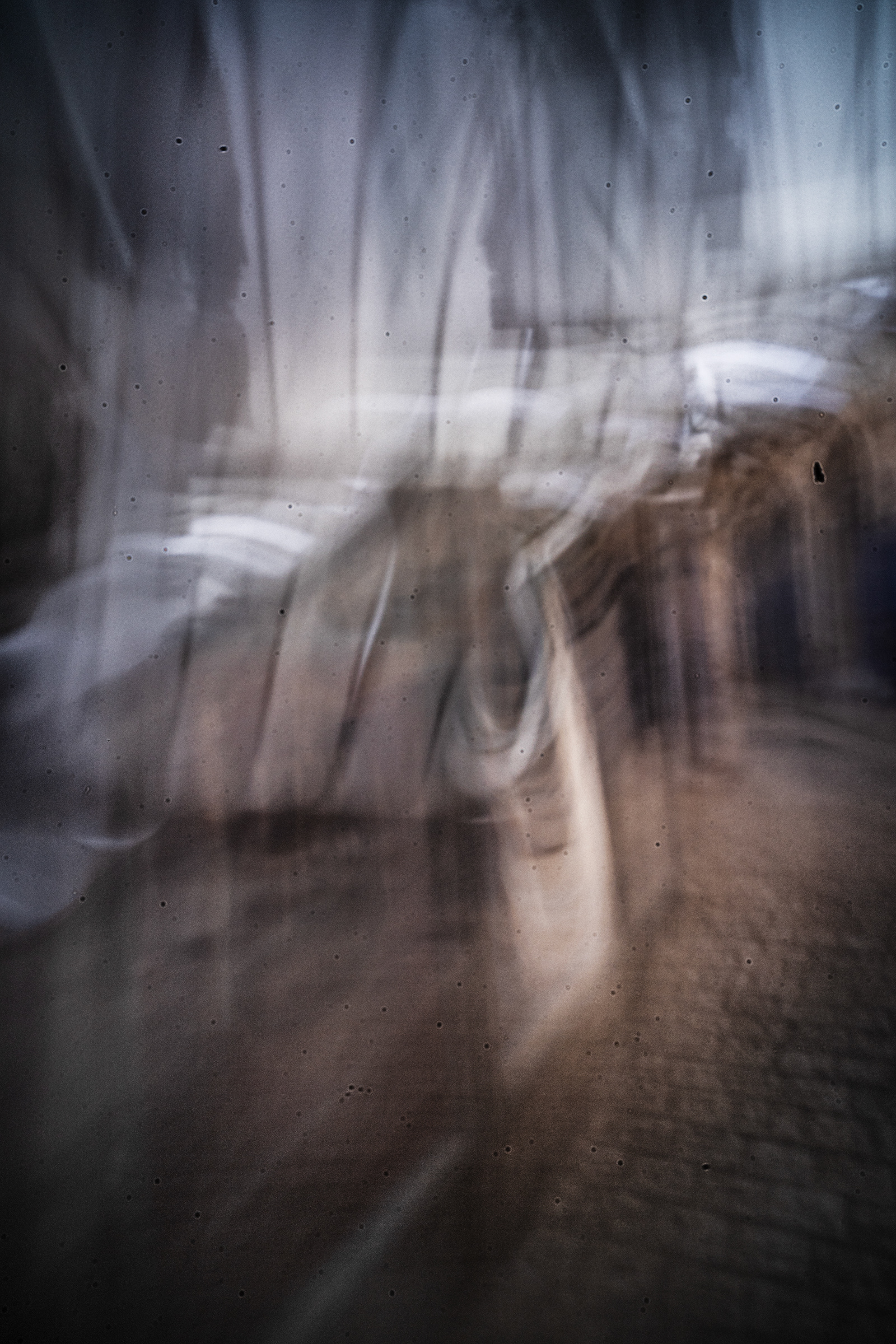
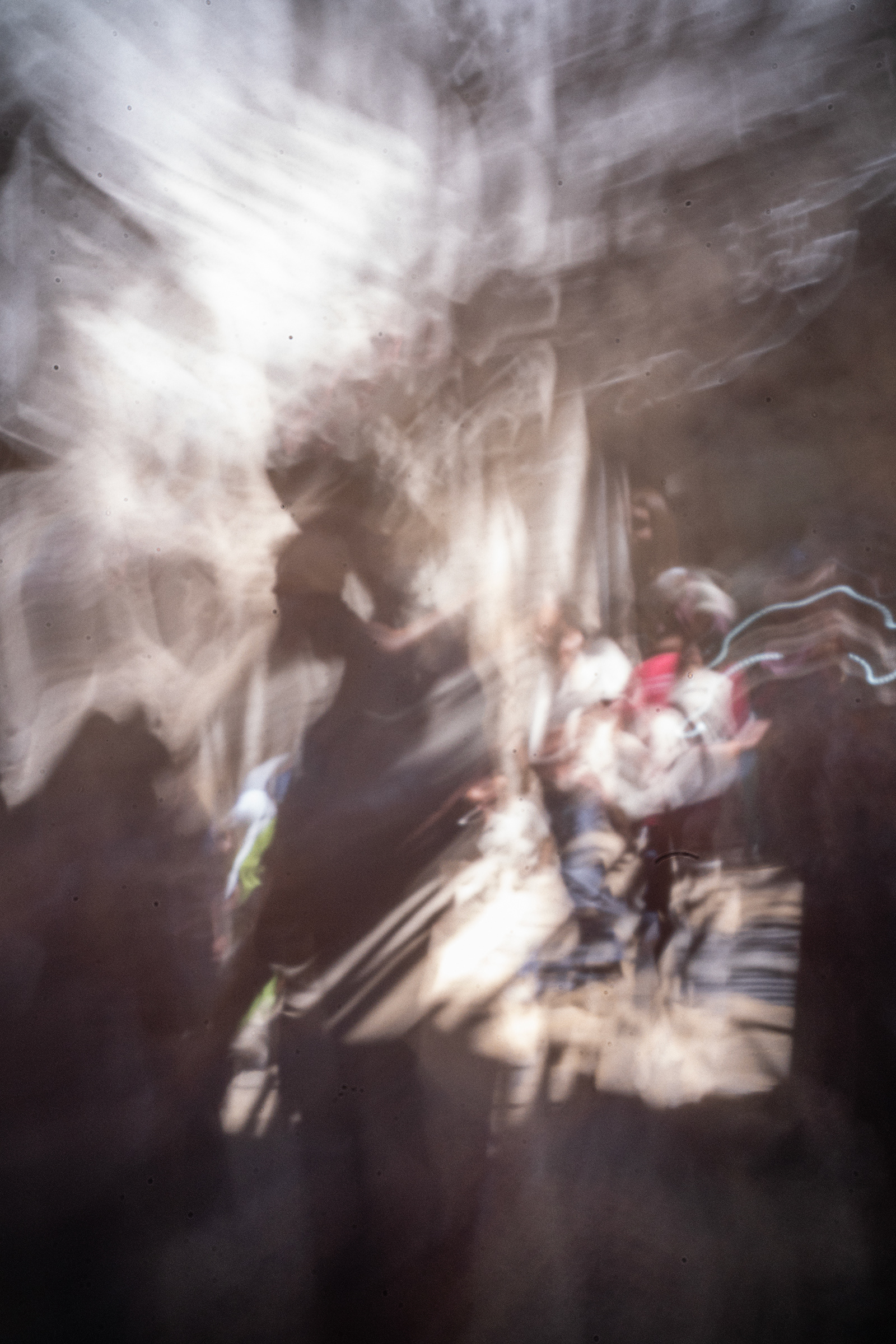
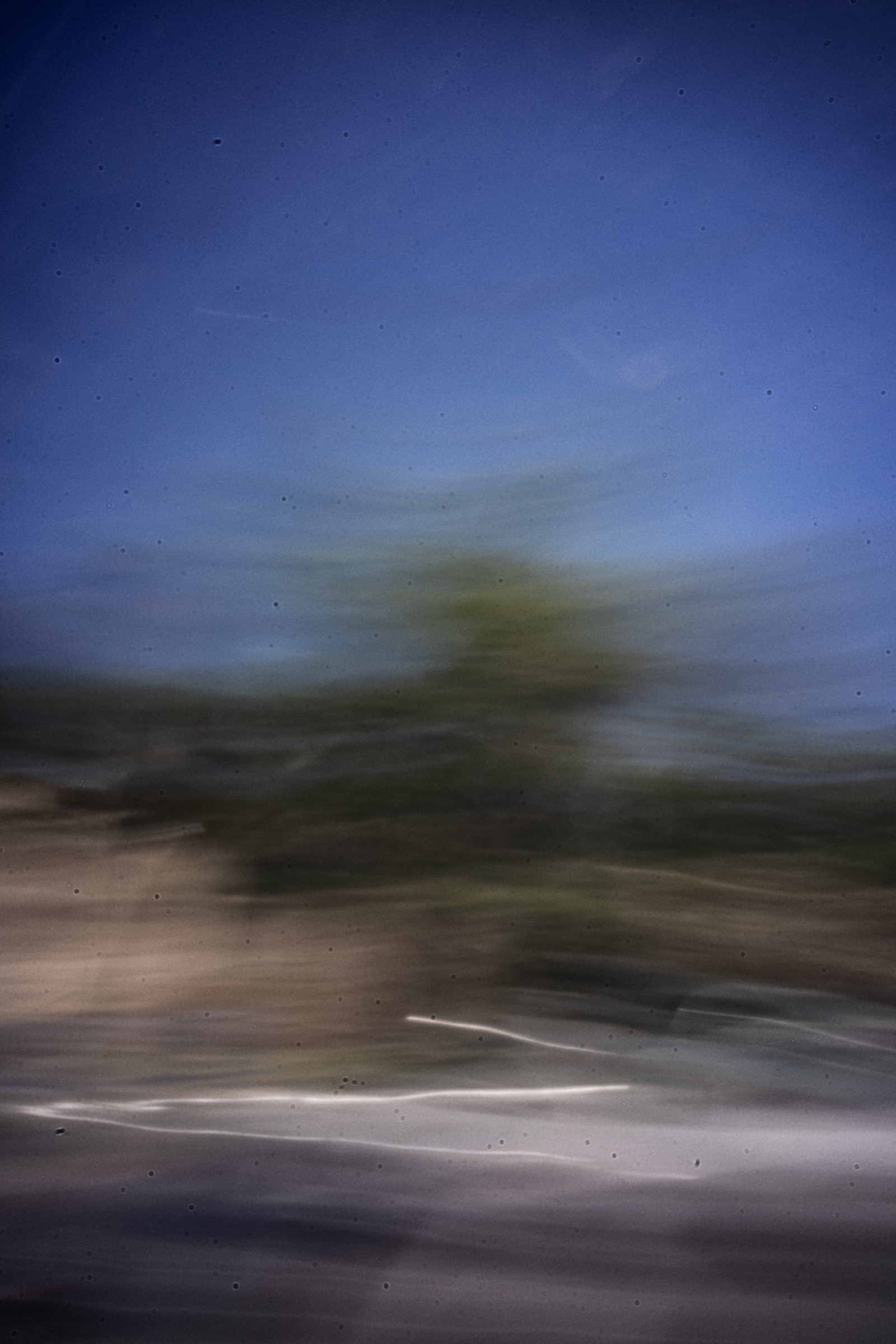
I decided to do an experiment: to see whether I could make images of the spiritual Jerusalem—or, well, not “of” but from, or for the sake of it. It seems poetically right that I should try this experiment with photography, a medium strongly associated with acts of arrest, seizure, possession, containment, and capture—the latter word now the dominant metaphor for photography in our own time, so much that it fails for many even to register as a metaphor. I told myself: if for the sake of images of the Jerusalem of longed-for release, I should make them by subverting the medium of capture. How to do this?
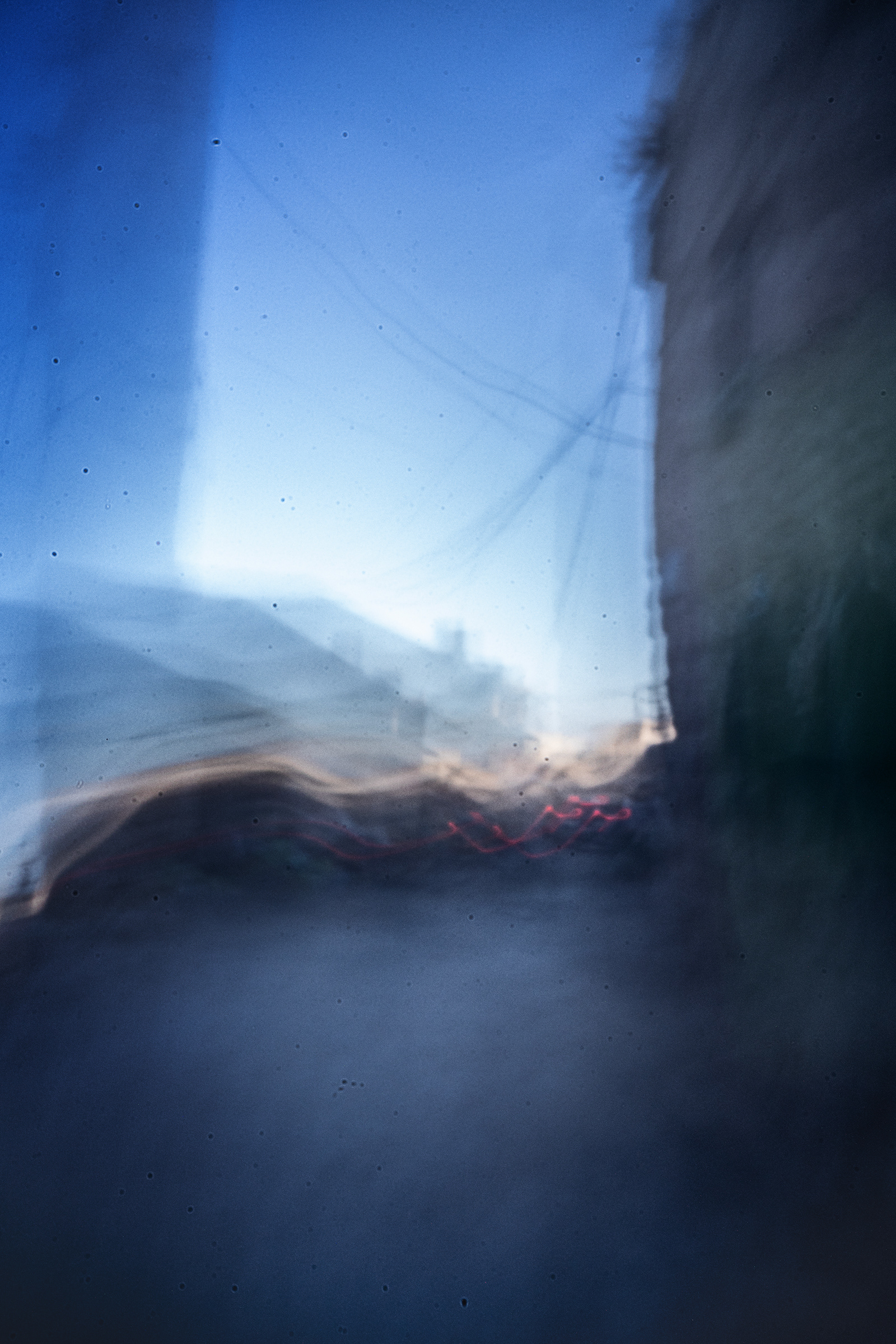
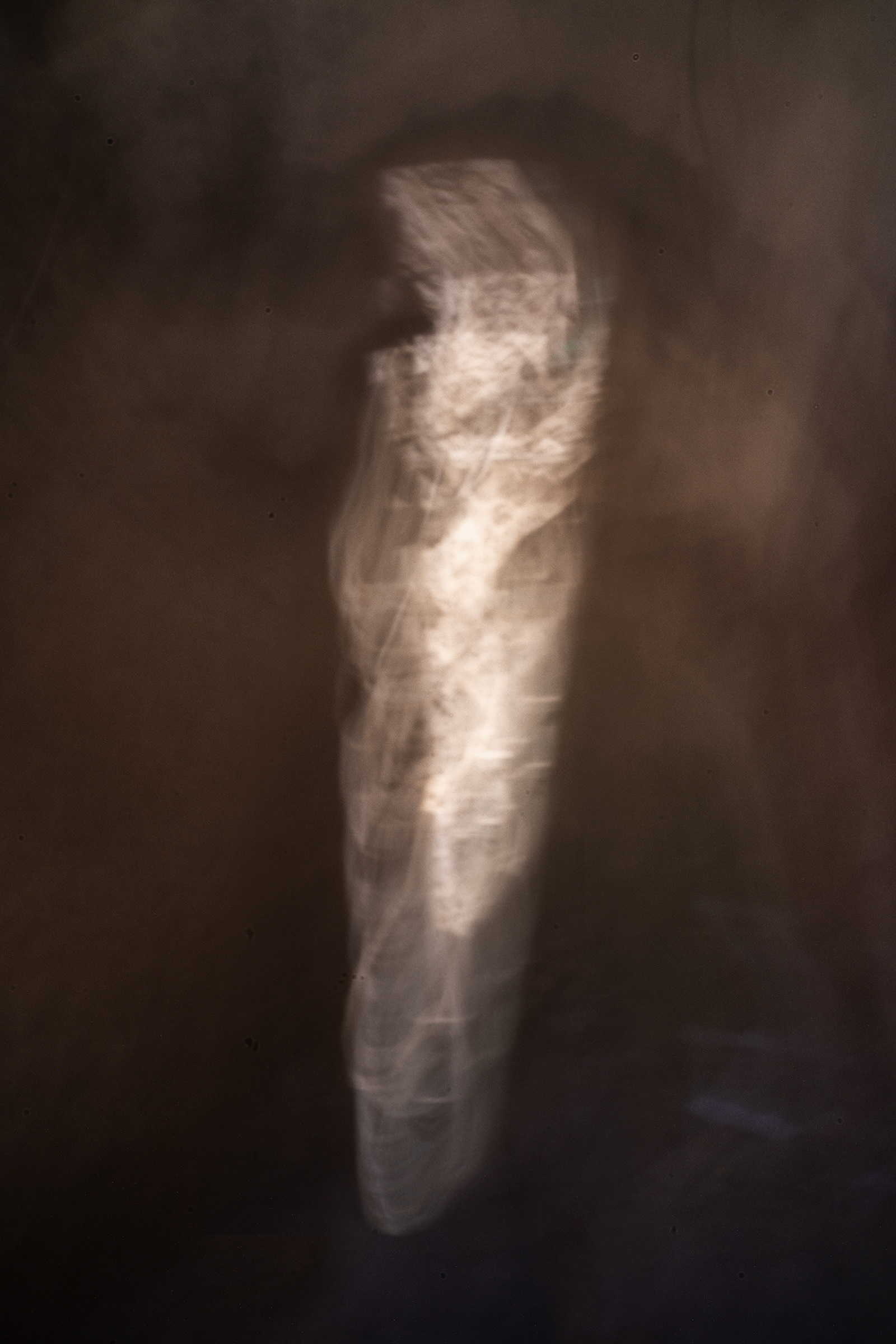
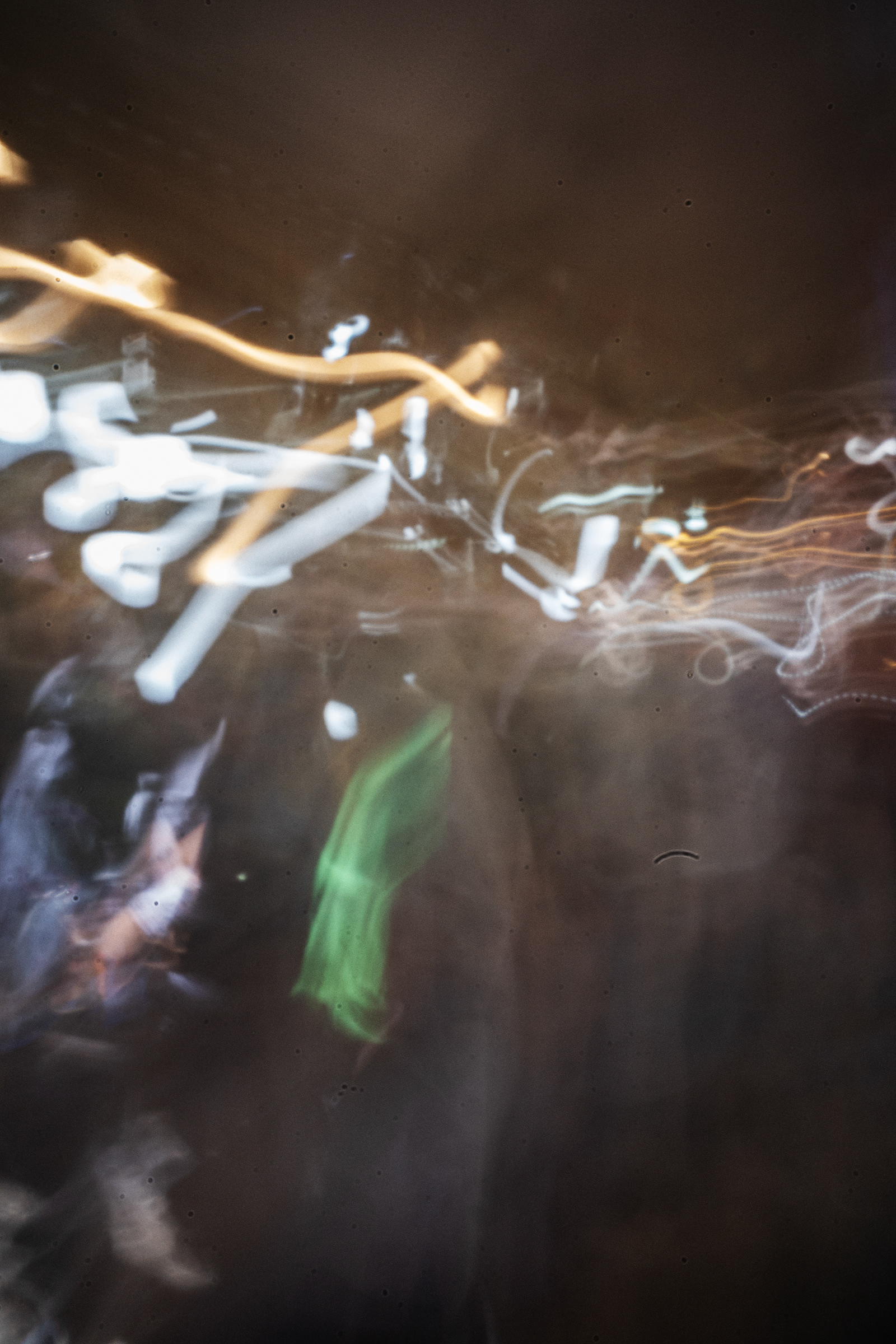
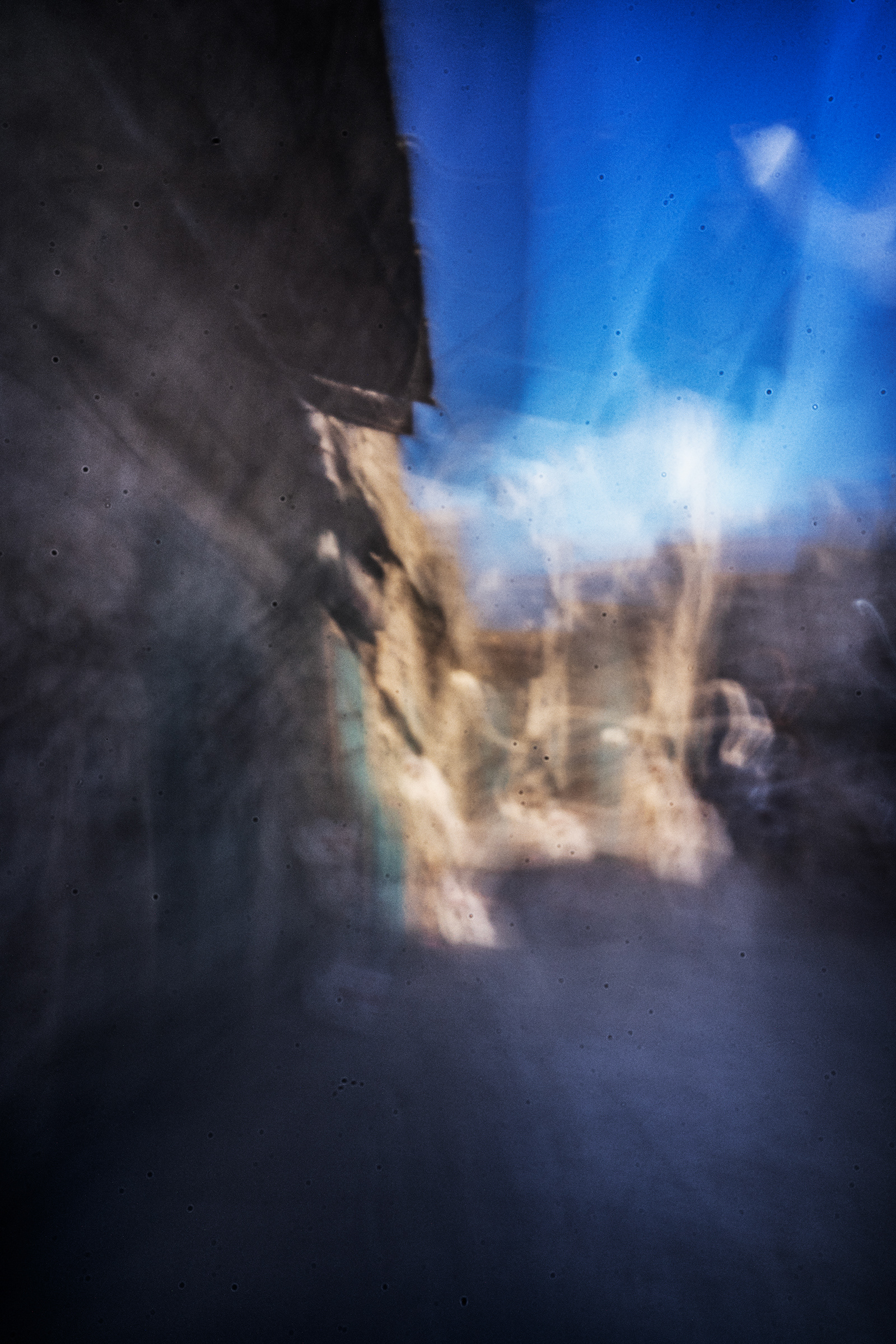
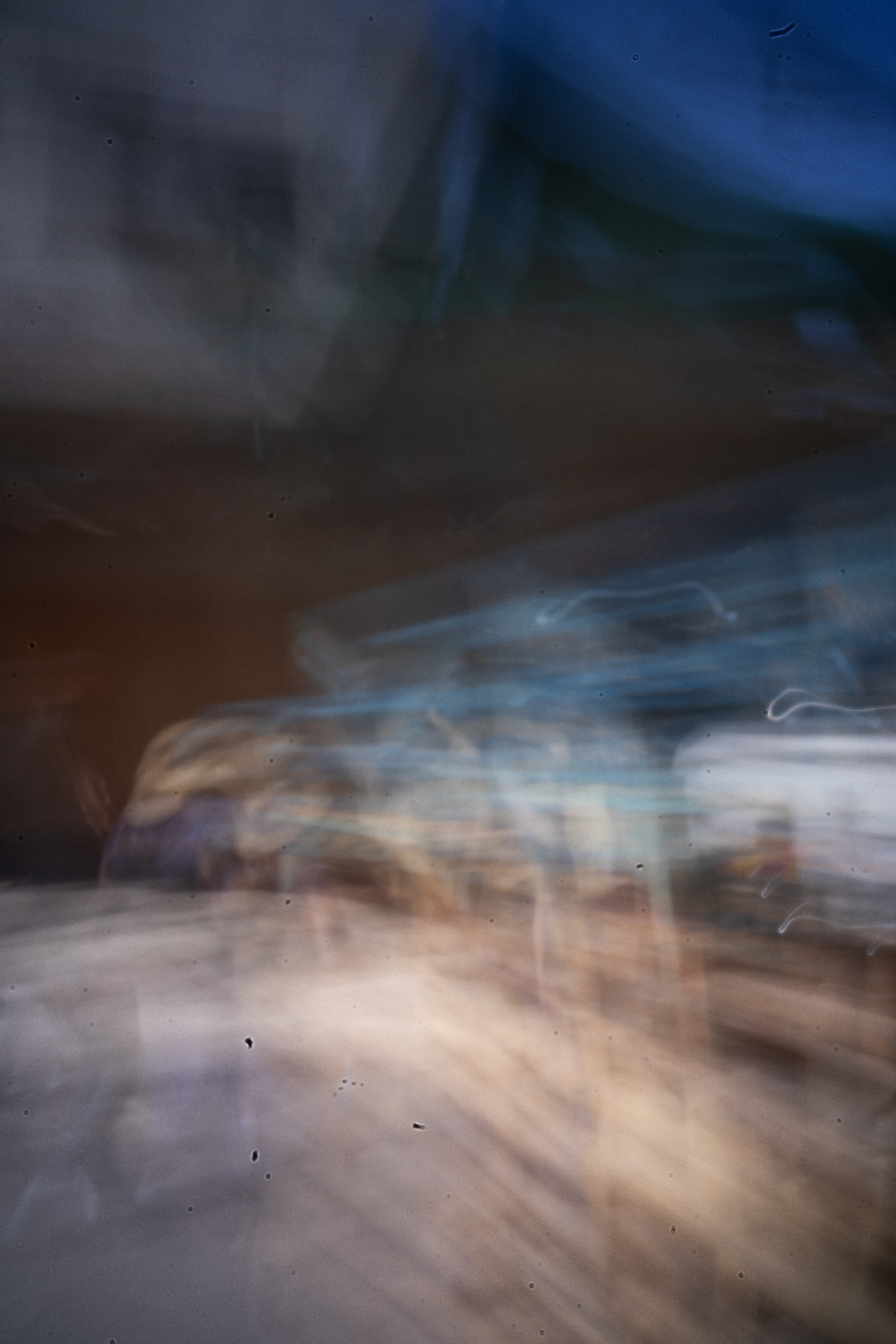
The solution, once I saw it for what it was, was straightforward: to photograph without a lens. I drilled through a body cap for my Leica, and taped in a piece of foil with laser-drilled pinhole. There is a lot to say about what makes conventional pinhole photographs interesting—their distinctive detail-rich unsharpness and unsurpassably deep depth of field—but I turned to the pinhole a different reason. The tiny aperture required long exposures, anywhere from a few seconds to a few minutes, depending on the light, during which I could move as the world also moved. With some practice, I found my way to images that in one sense are utterly conventional photographs—dependent on an uninvented world where images are formed through the direct action of light on a light-sensitive surface. At the same time, these photographs could not be pre-envisioned or be easily described after they do exist. In this sense they seem to me to take seriously a philosophical problem about creating meaning through appearances: they approach appearances as neither self-meaningful nor fundamentally untrustworthy, and come down on the side of meaning that can be made to appear, as against the kind that will always refuse appearance.
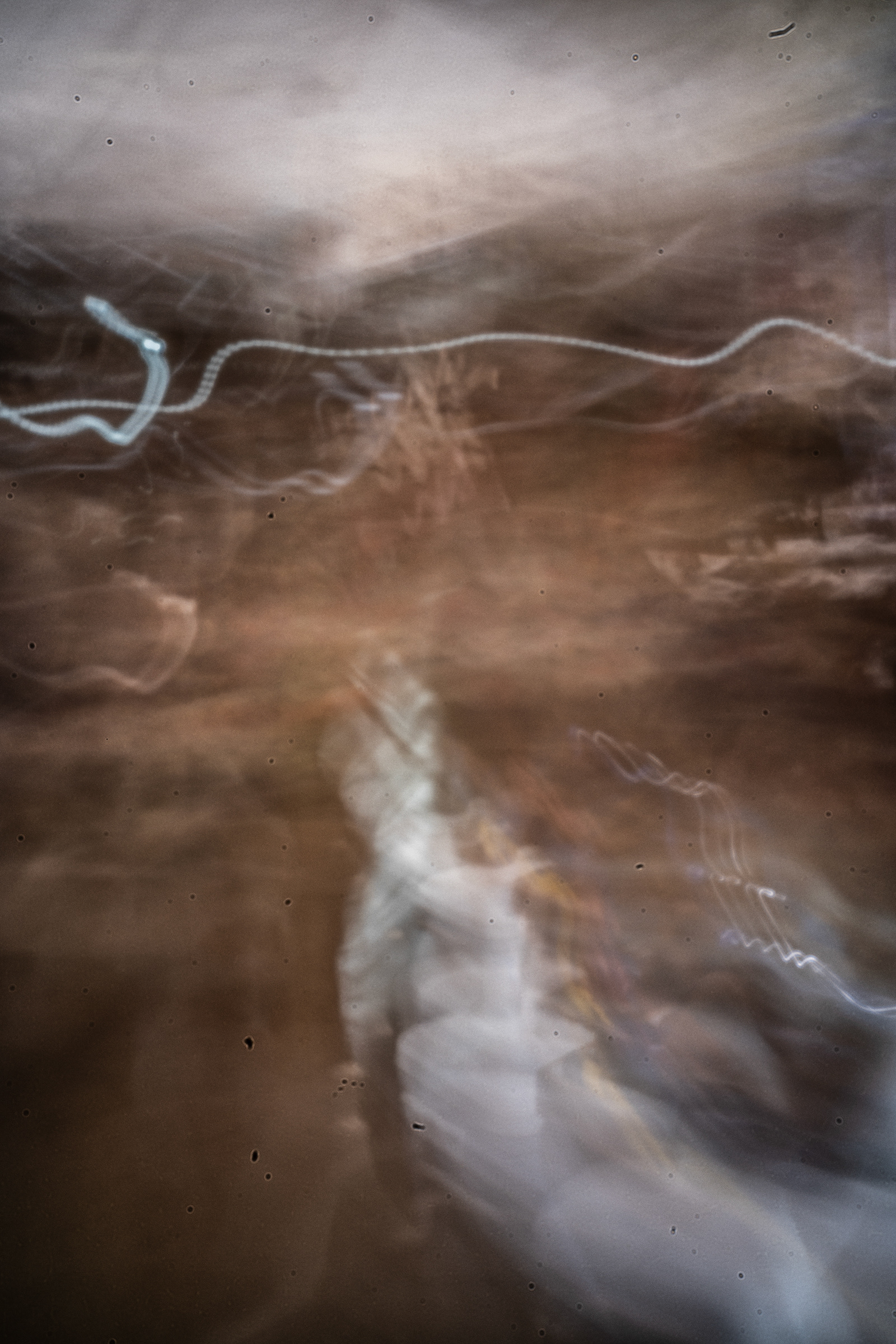
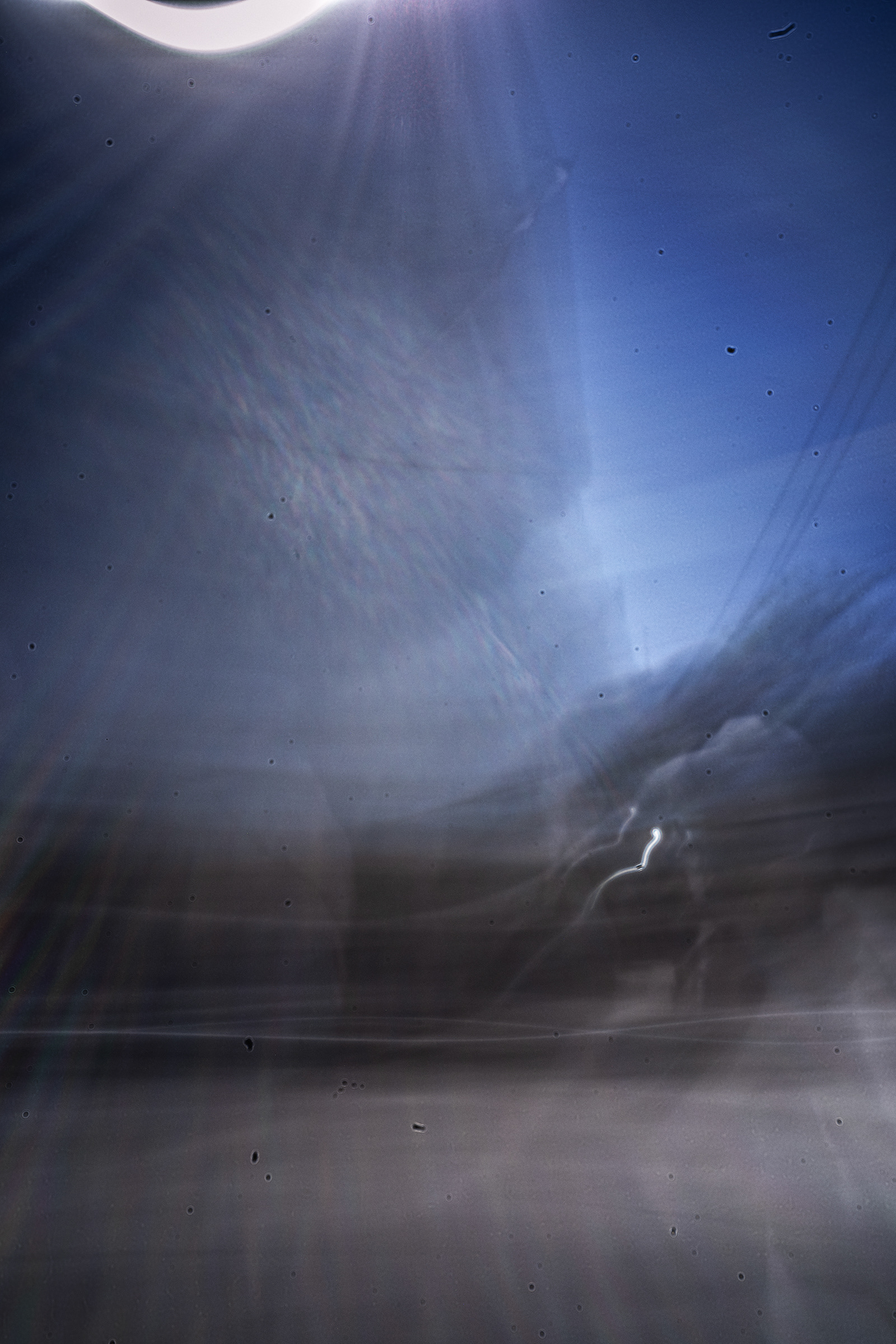
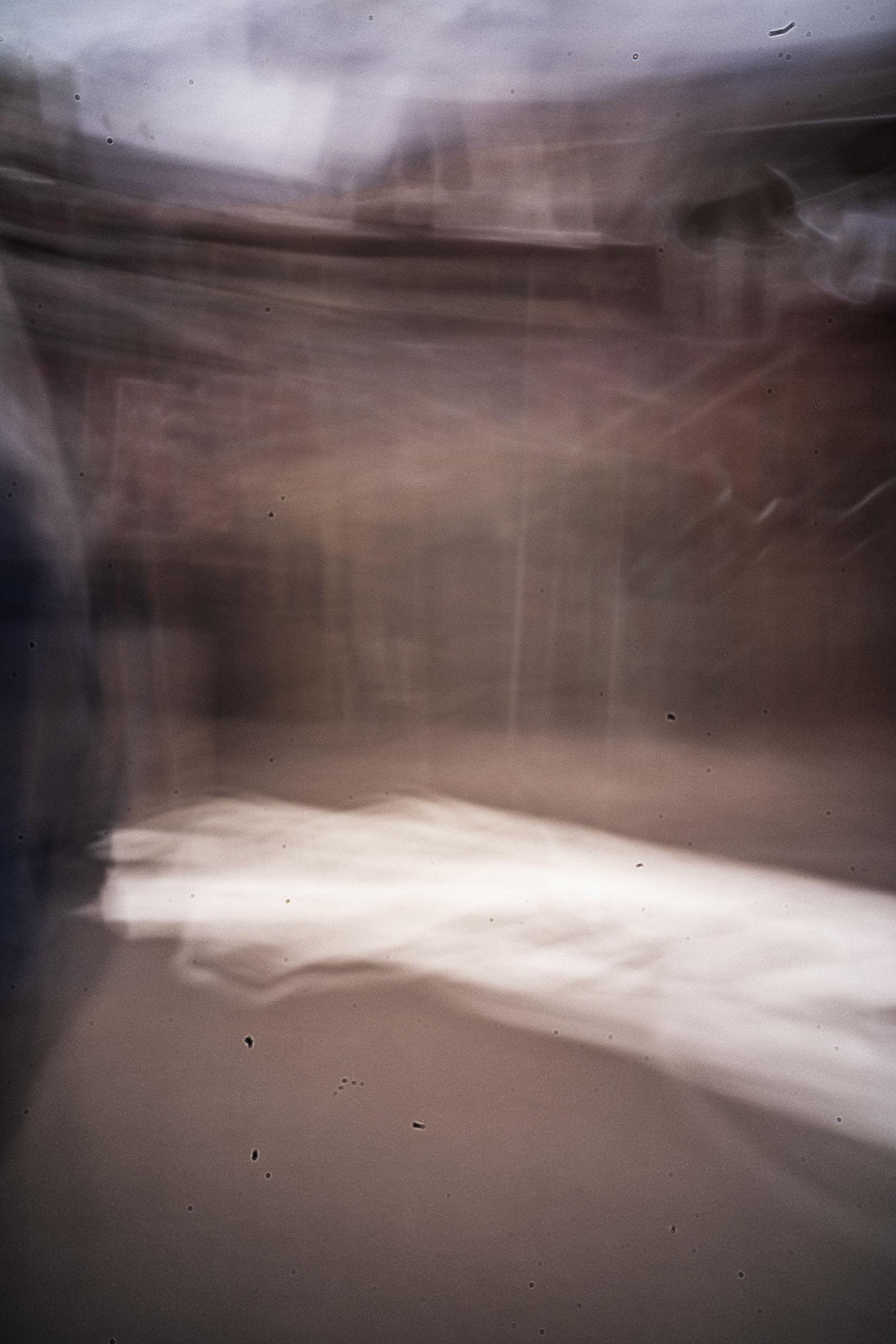
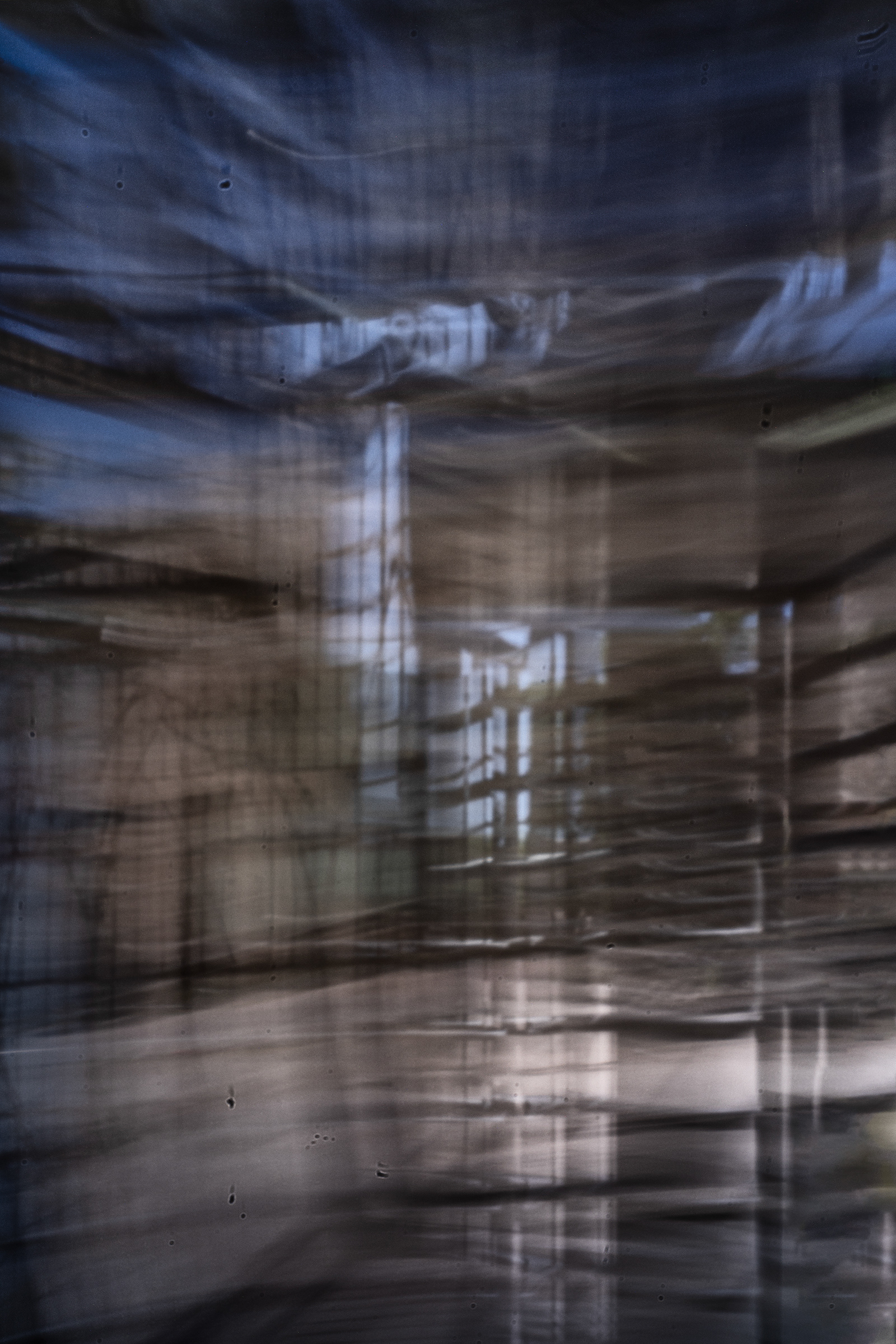
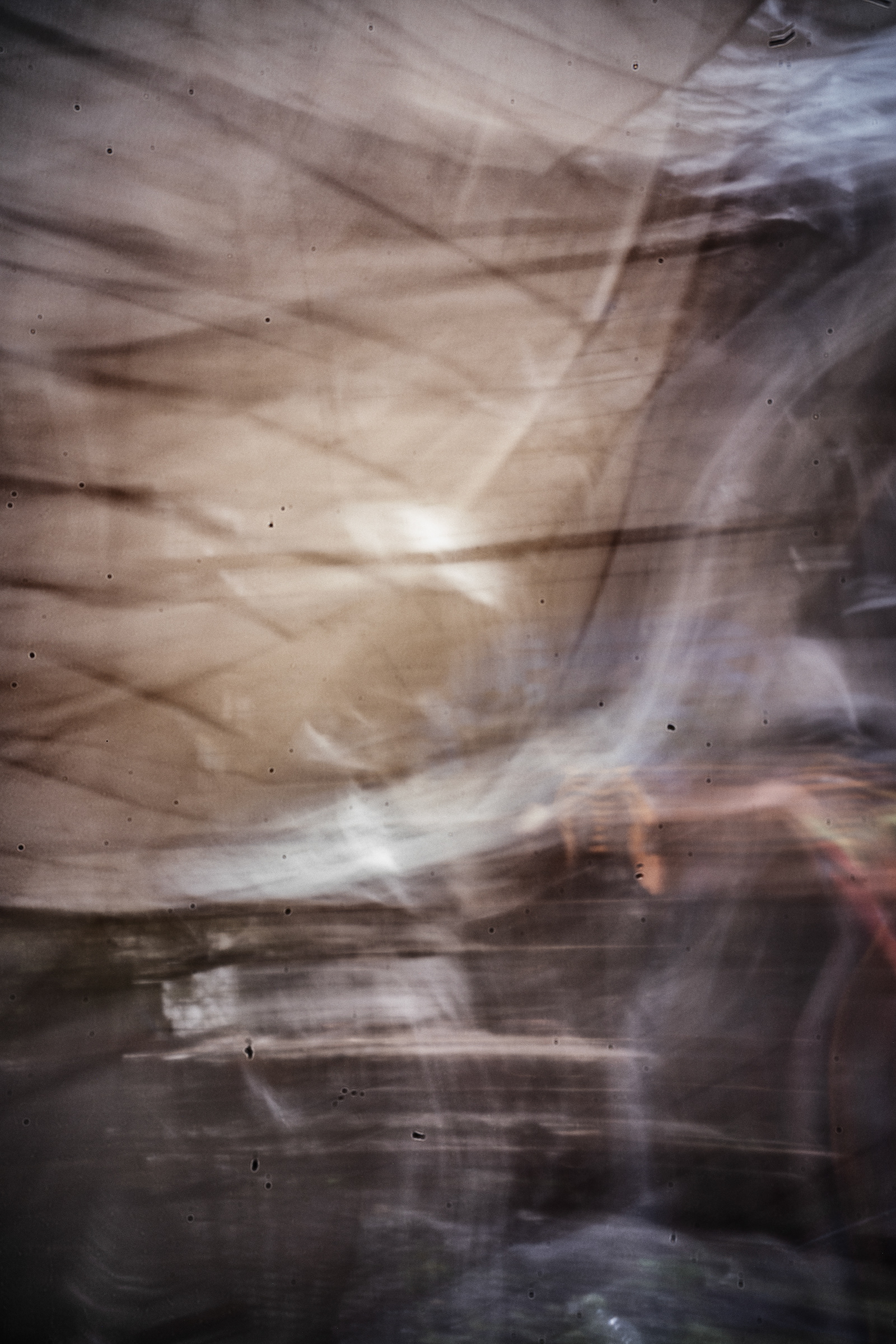
Or to say it better: just as a poem is a process of language—language revealing itself in process, as process—photographs like these seemed to me visions of seeing in process, seeing as process. The muse once said to me that poetry is the situation in which we feel meaning resisting language, as against the situation—call it prose—in which meaning submits to language, or language manages to accommodate meaning. I find this approach to poetry useful with regard to these photographs of mine, made in geo-spatial Jerusalem of the spiritual Jerusalem. They are visions in which meaning is resisting images, disengaging the conventional photographic conceit of predictive previsualization, and also the conceit that photographs enable a sense of mastery or epistemic control over what is shown. It is hard to understand these images, and this is exactly what interests me about them a apropos the problem of release.
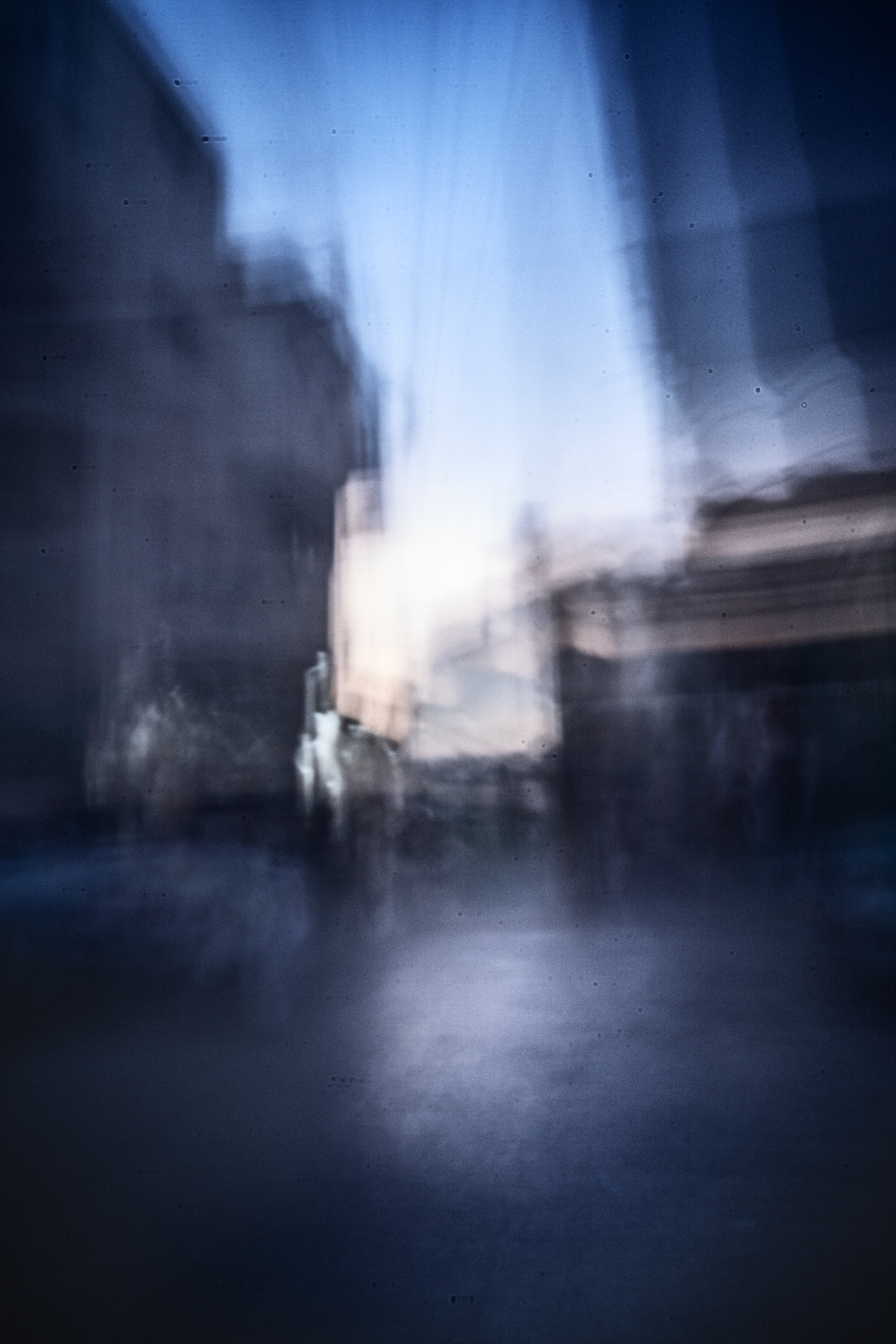
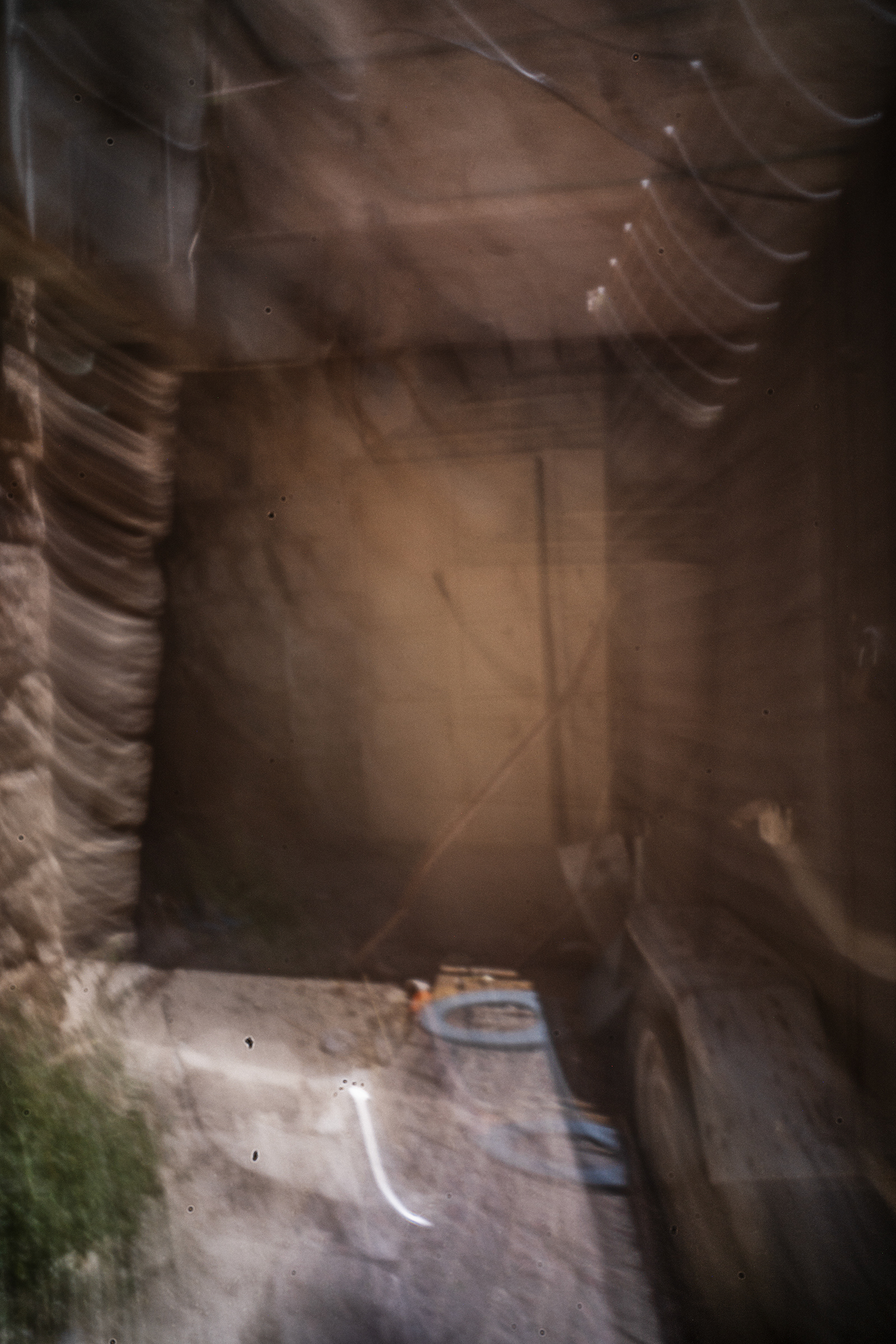
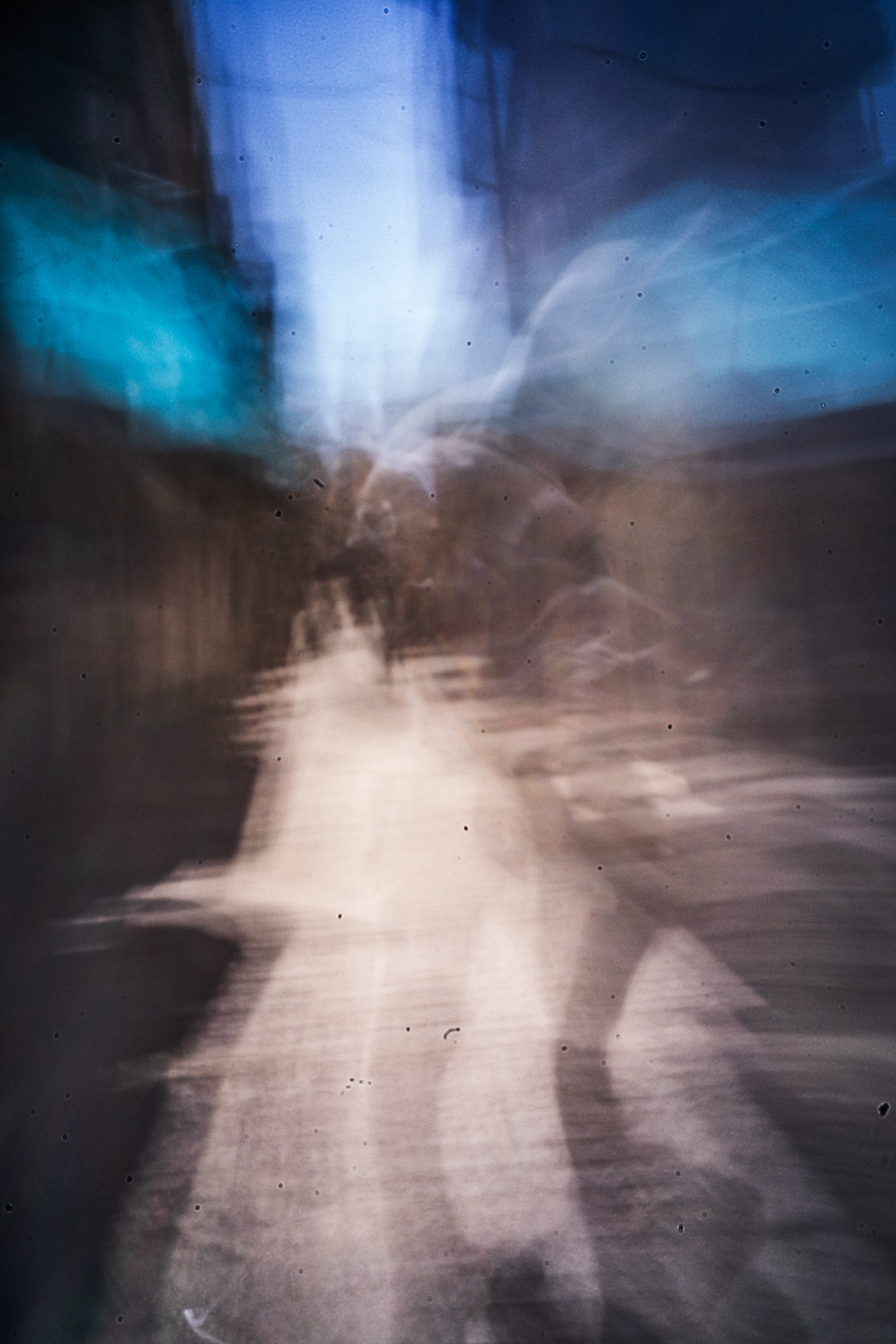
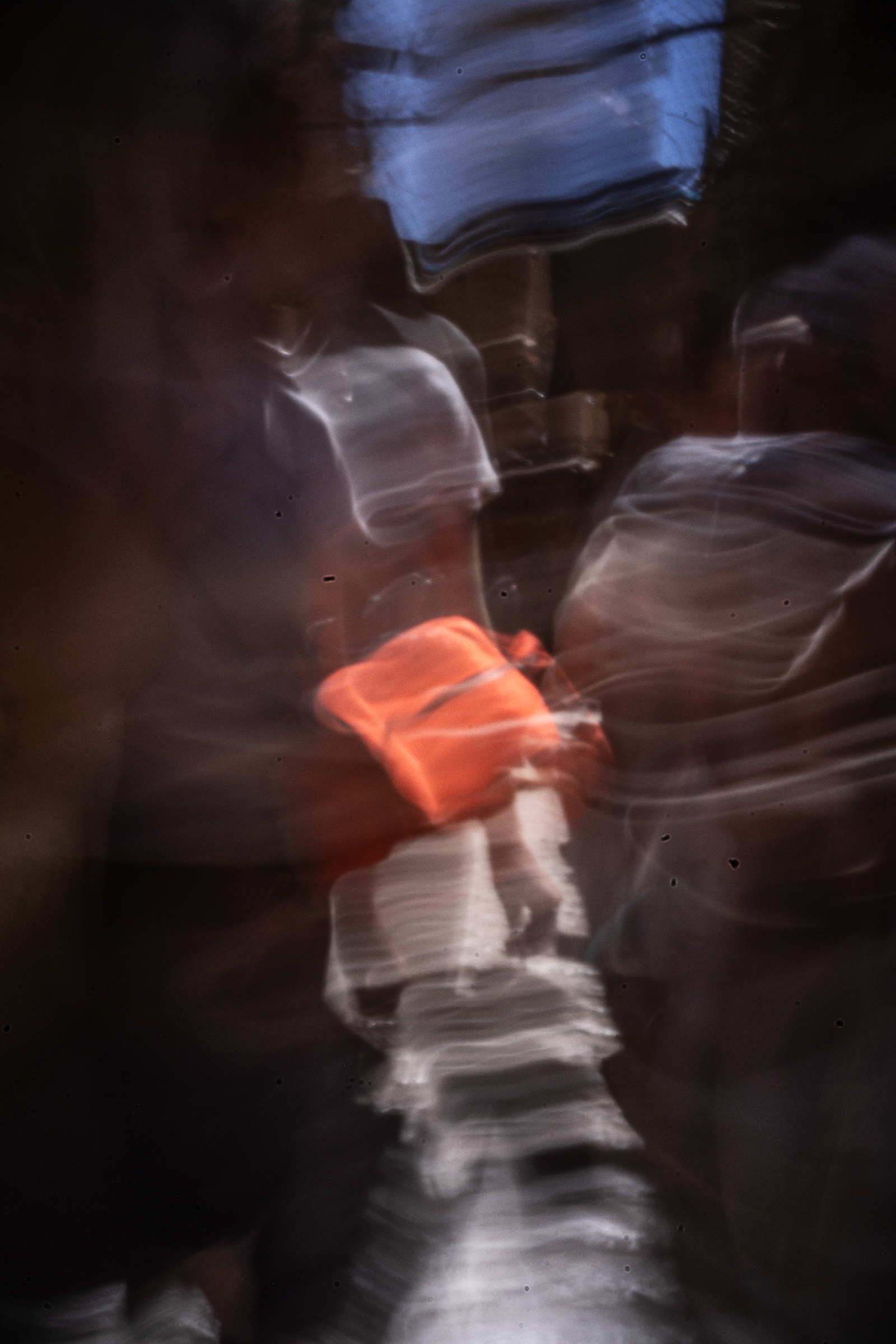
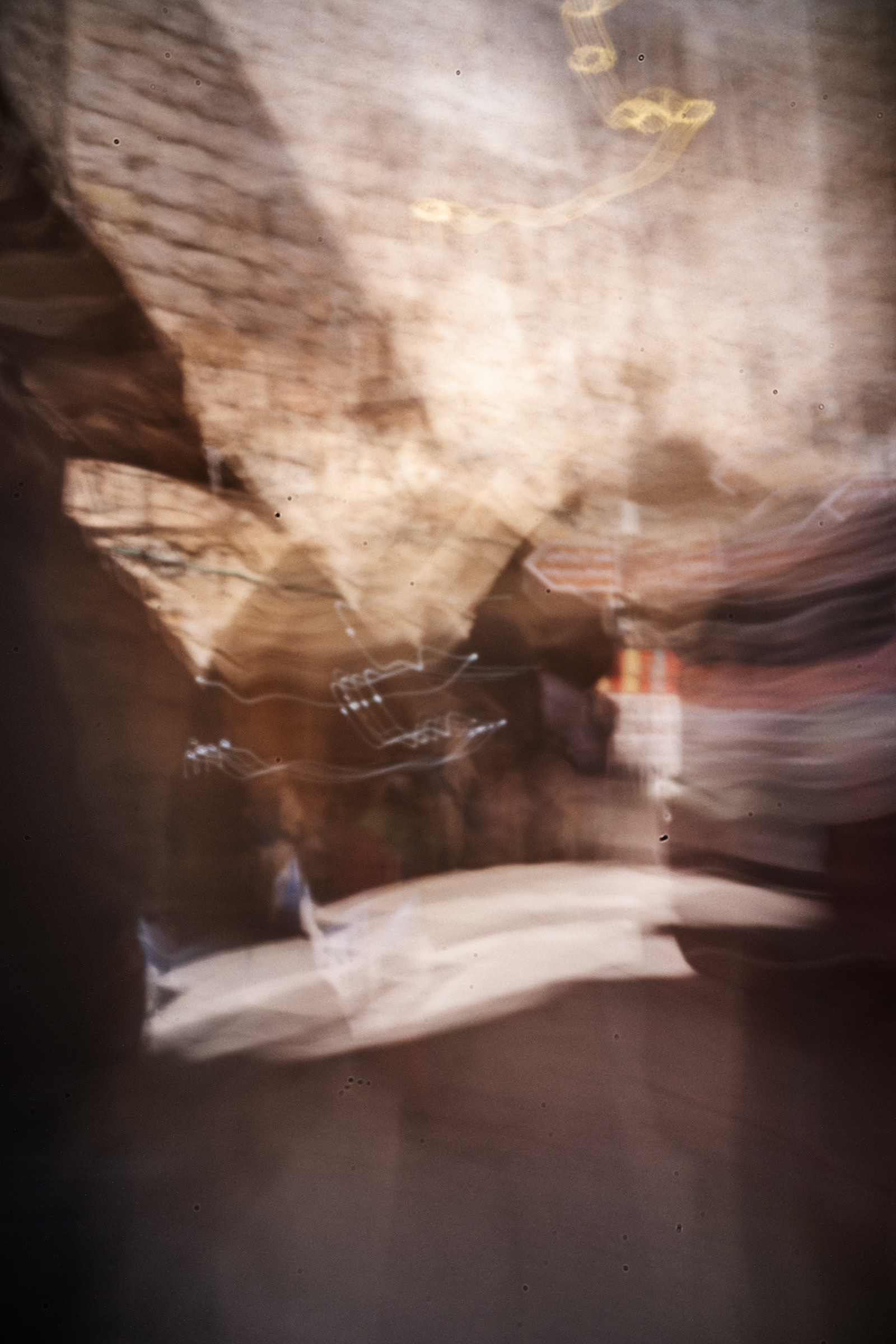
A proposition: photography is better understood as a medium for making invisible things visible than as a tool for proving that absent things remain present. A second proposition: we will not reach the holy city with possessive minds and spirits, rather with psyches touched by a sense of wonder, and freedom’s own wildness made somehow relatable.
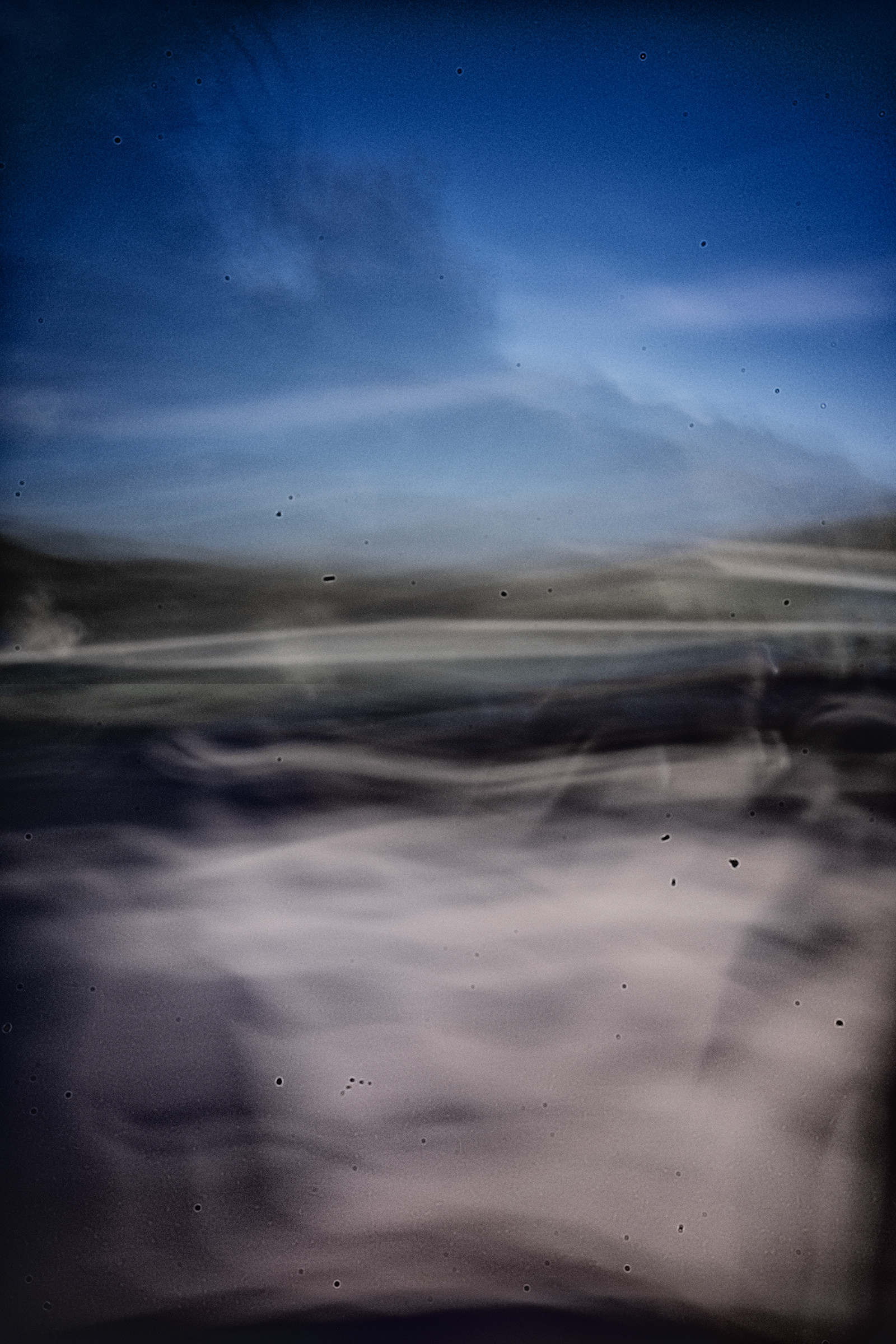
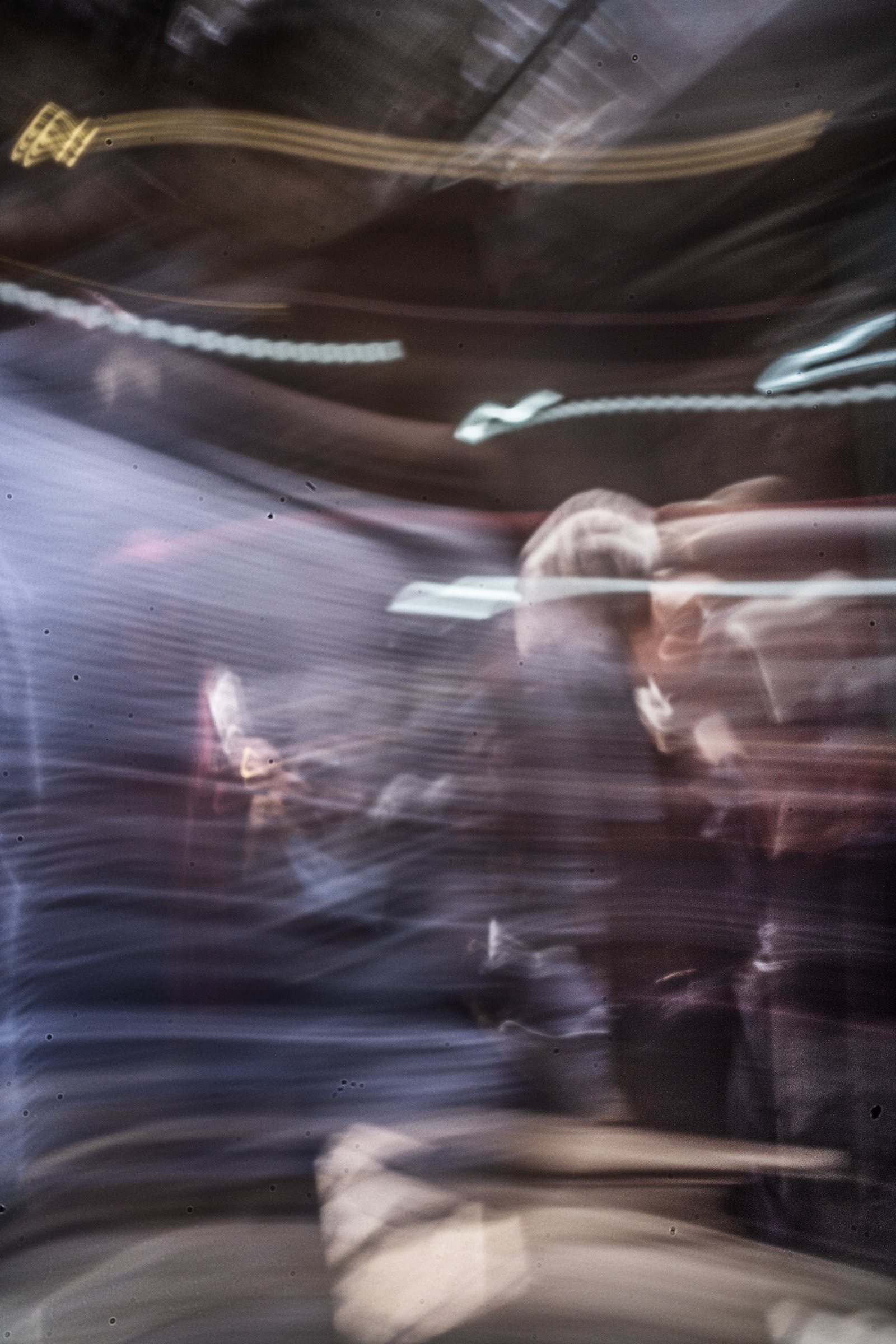
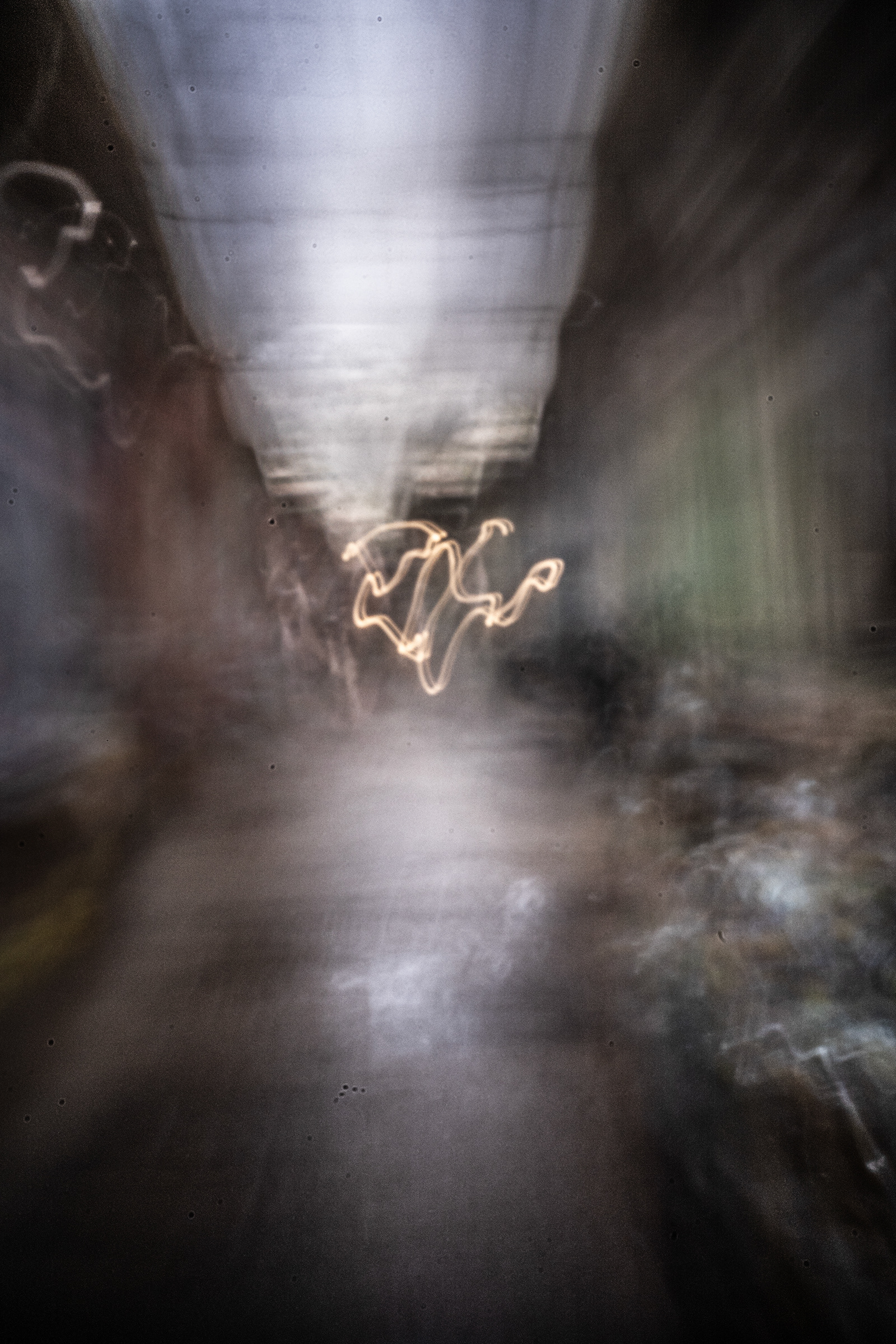
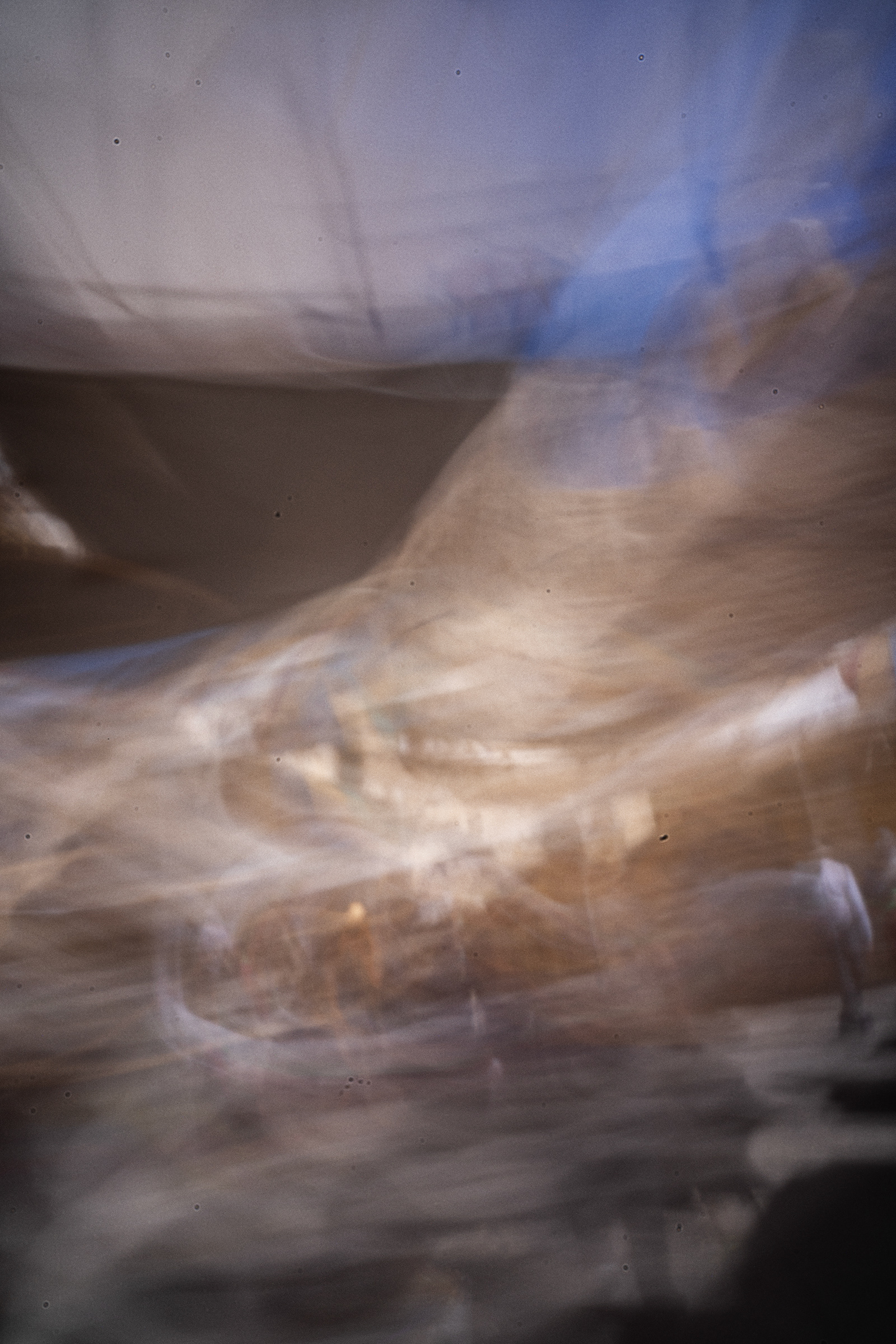
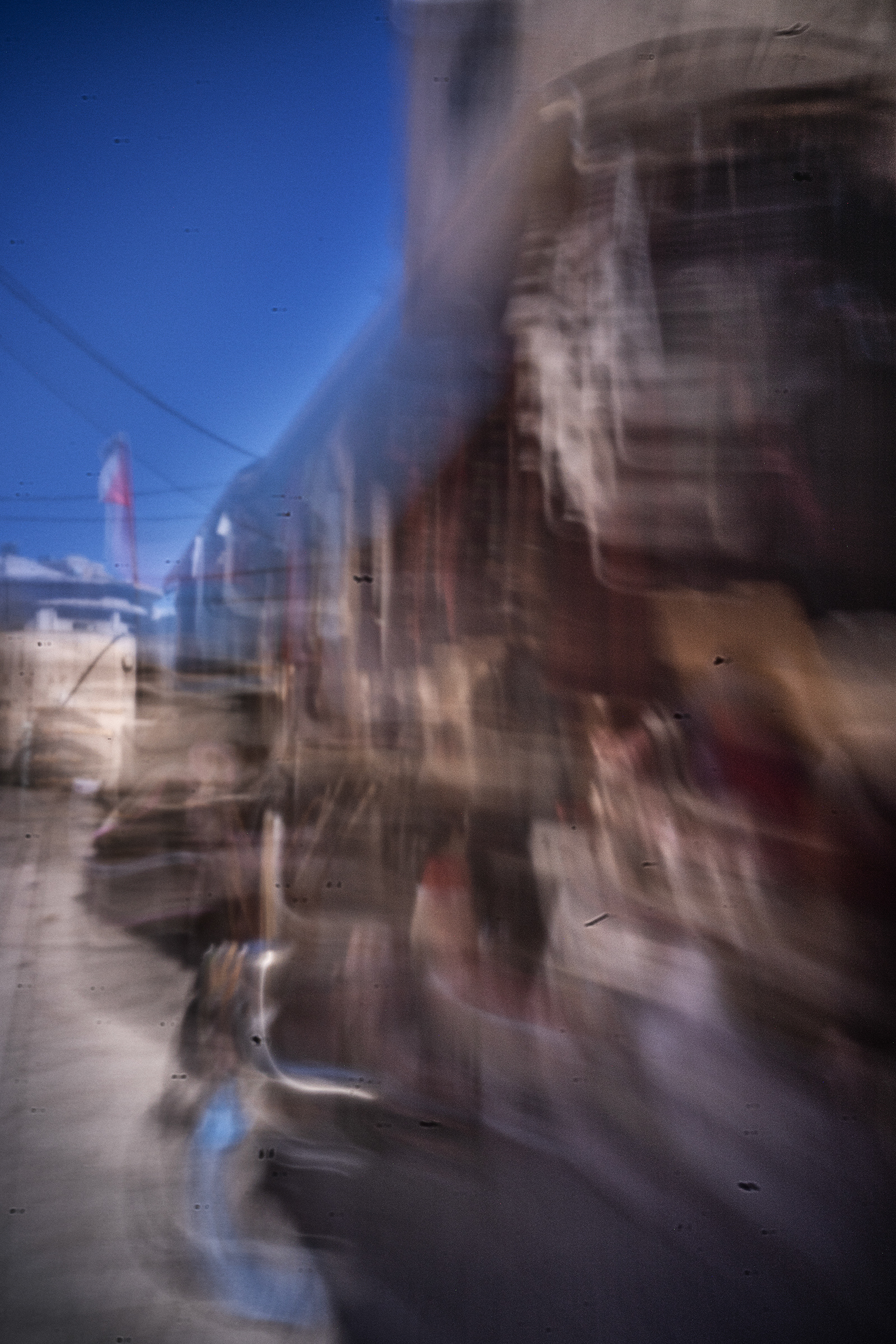
A comment on these propositions put side by side: the process of encounter that a photograph registers includes at least these things—the self-being of a person, the self-being of a world in time and place, the self-becoming of a person, the self-becoming of a world in time and place. In the photograph, the overlap between forms of being and forms of becoming is mercurial. Sometimes it is additive—as if the image were a zone of accretion—and sometimes subtractive, as if a zone of cancelation. I think it is fair to say that with these photographs, lived space—the space of human relations, of psychic exchange—is not an exteriority, or at least not the kind of exteriority that geometry names and holds forth. Rather lived space is interior space—the space not of a private interiority but a collective one.
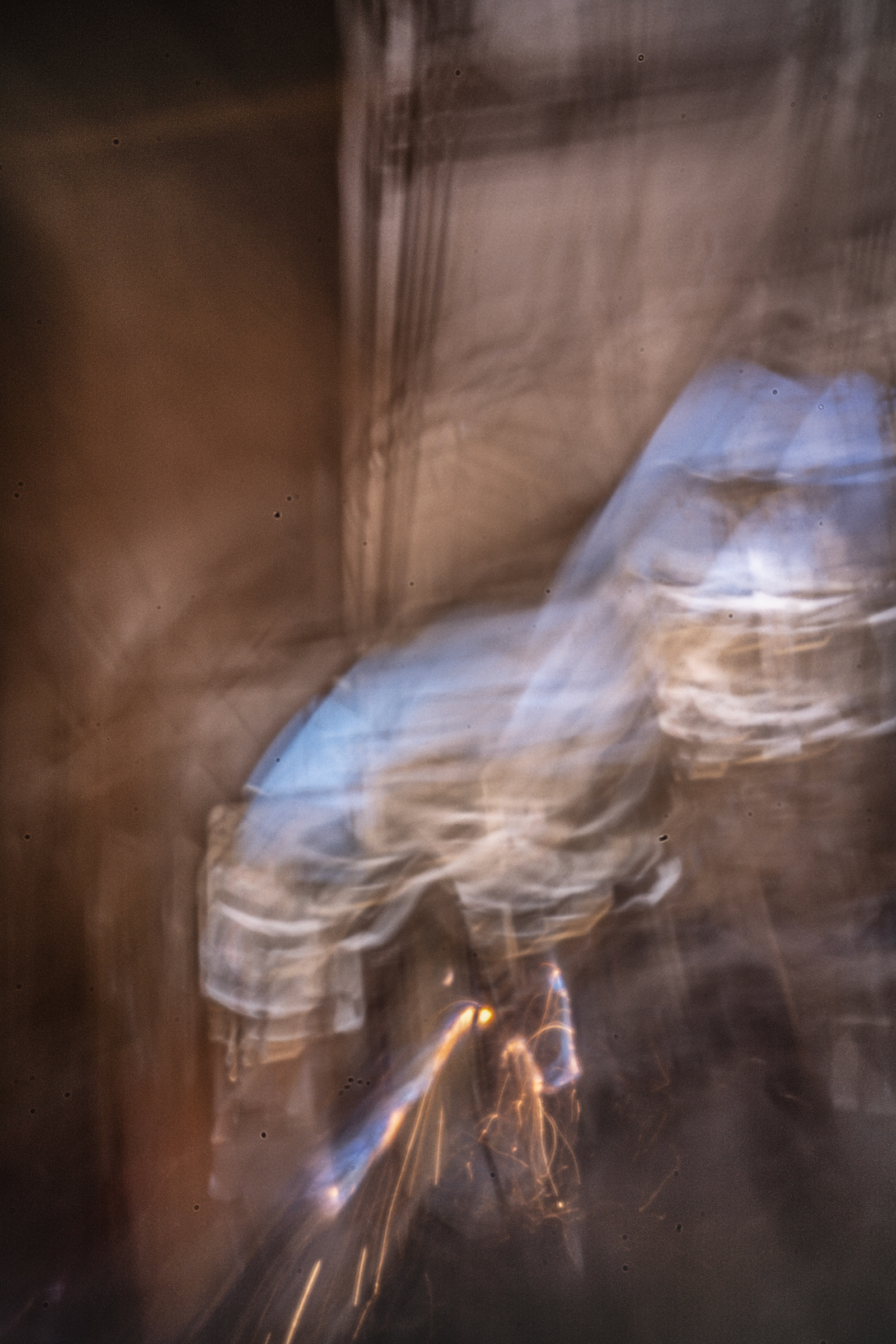
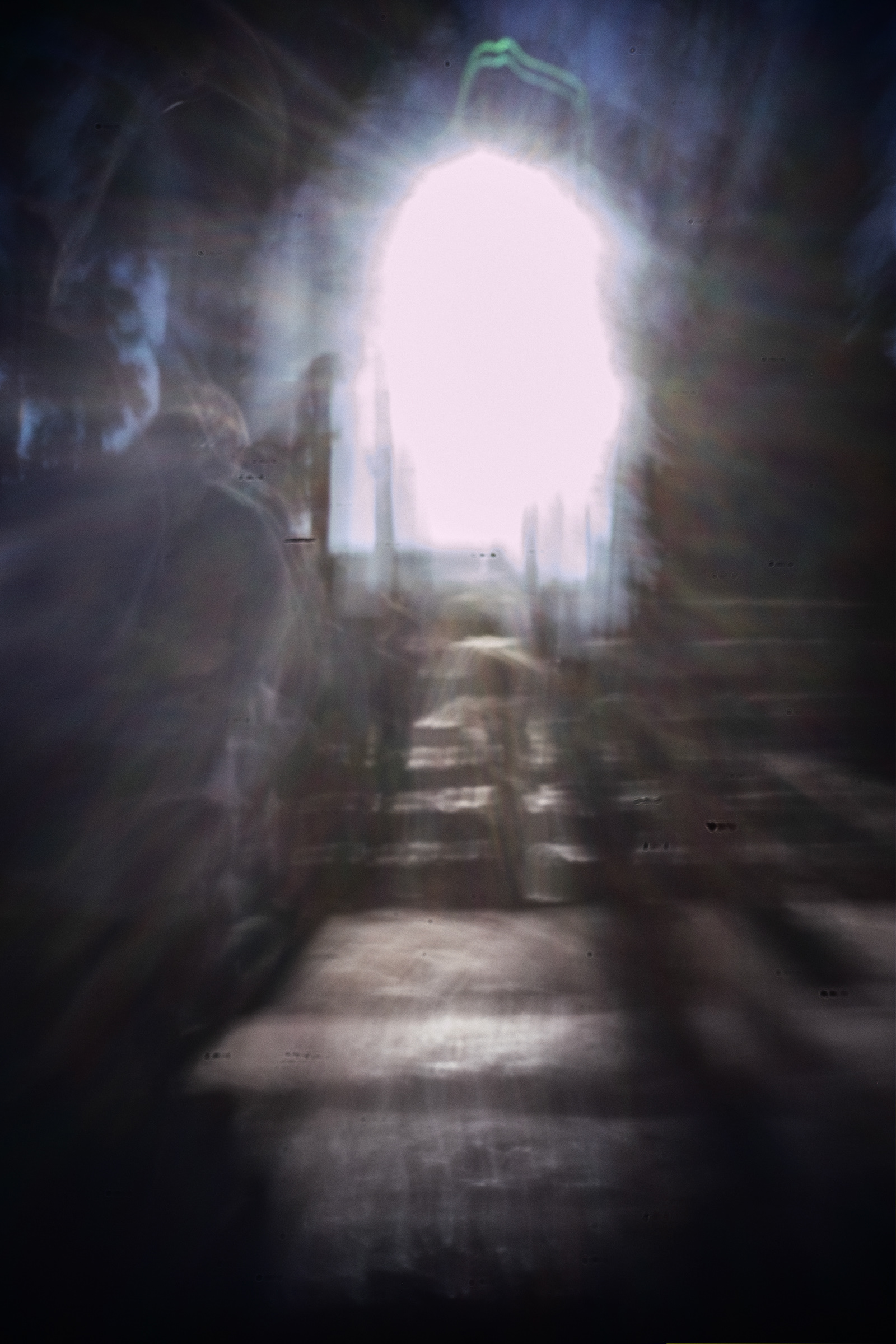
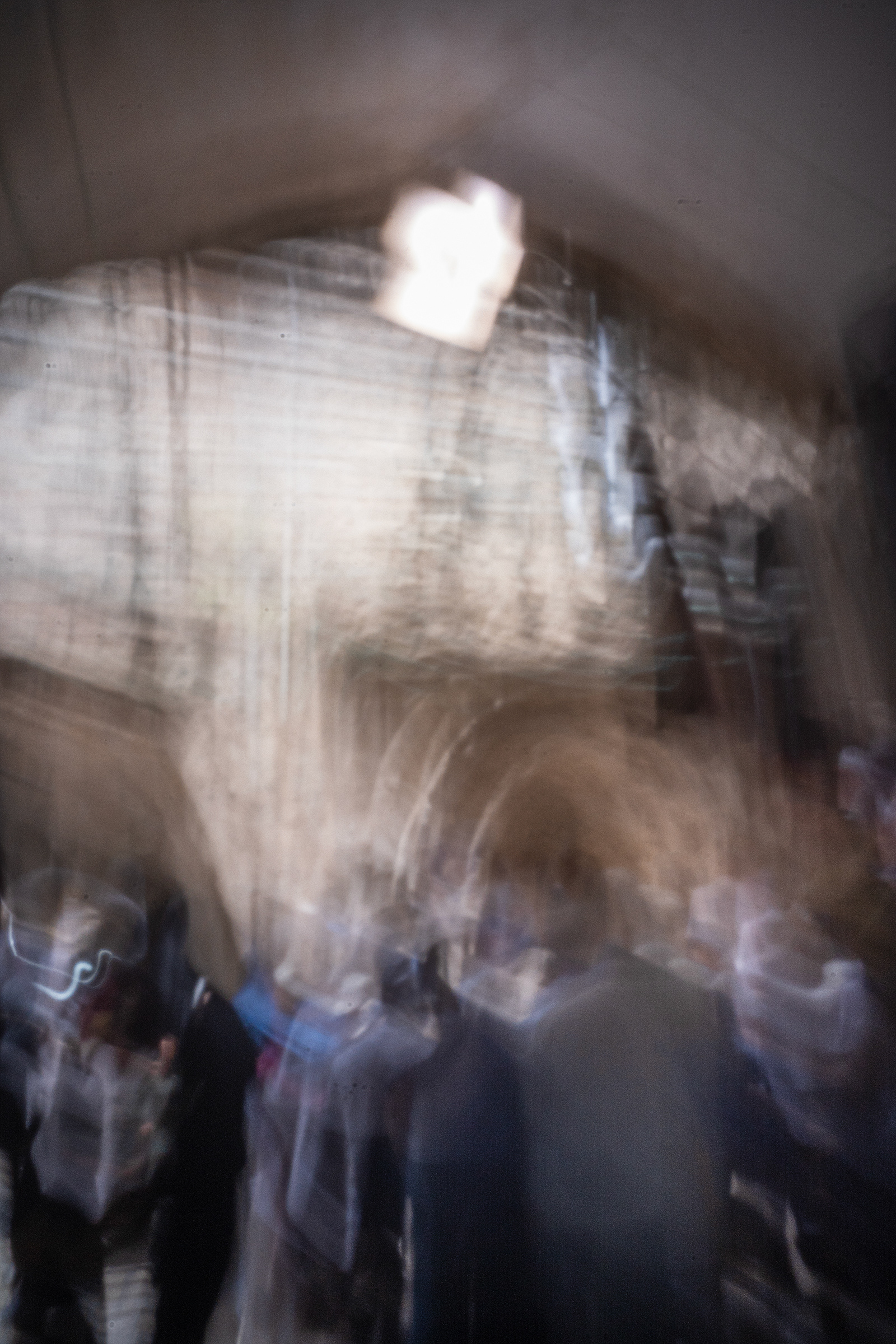
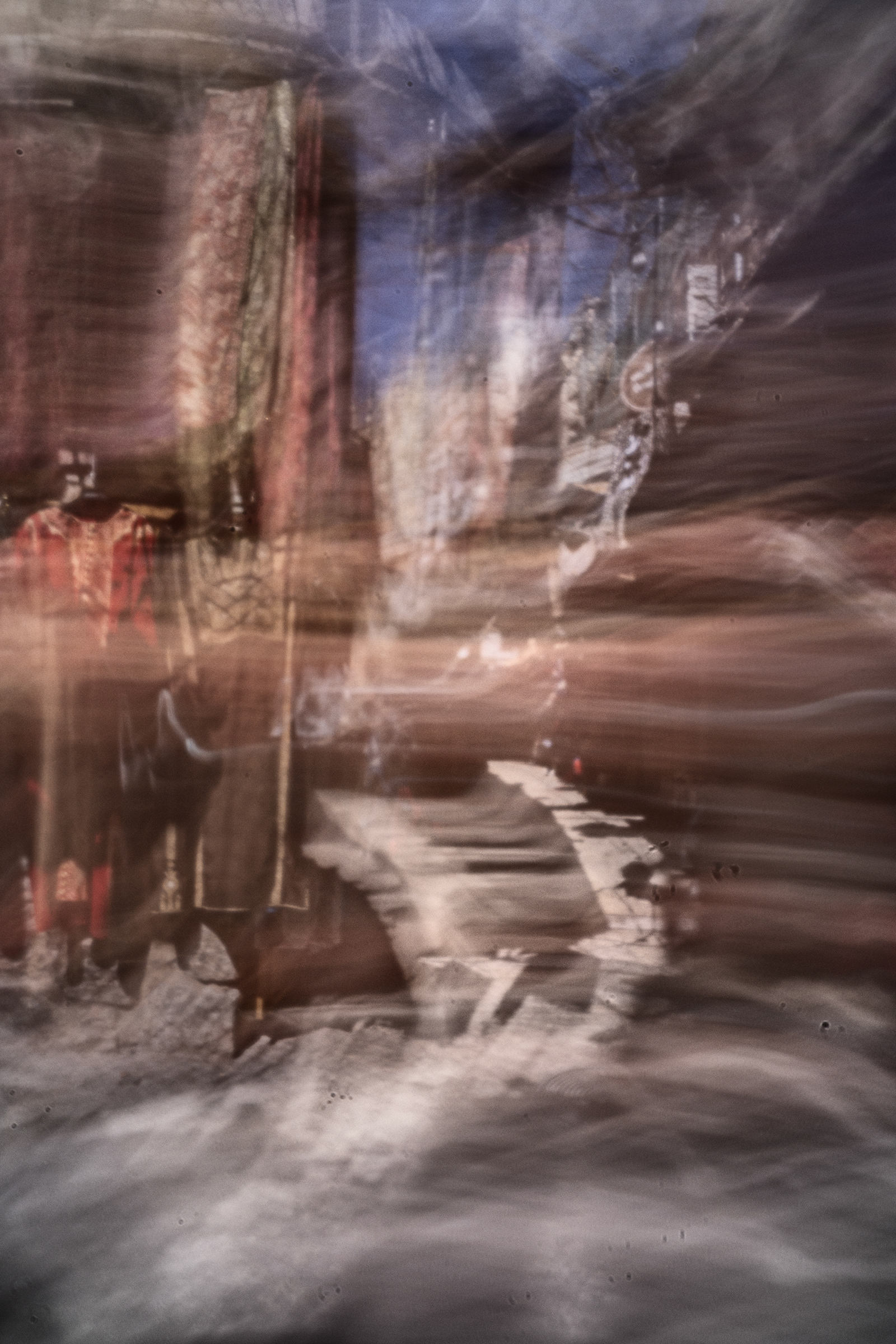
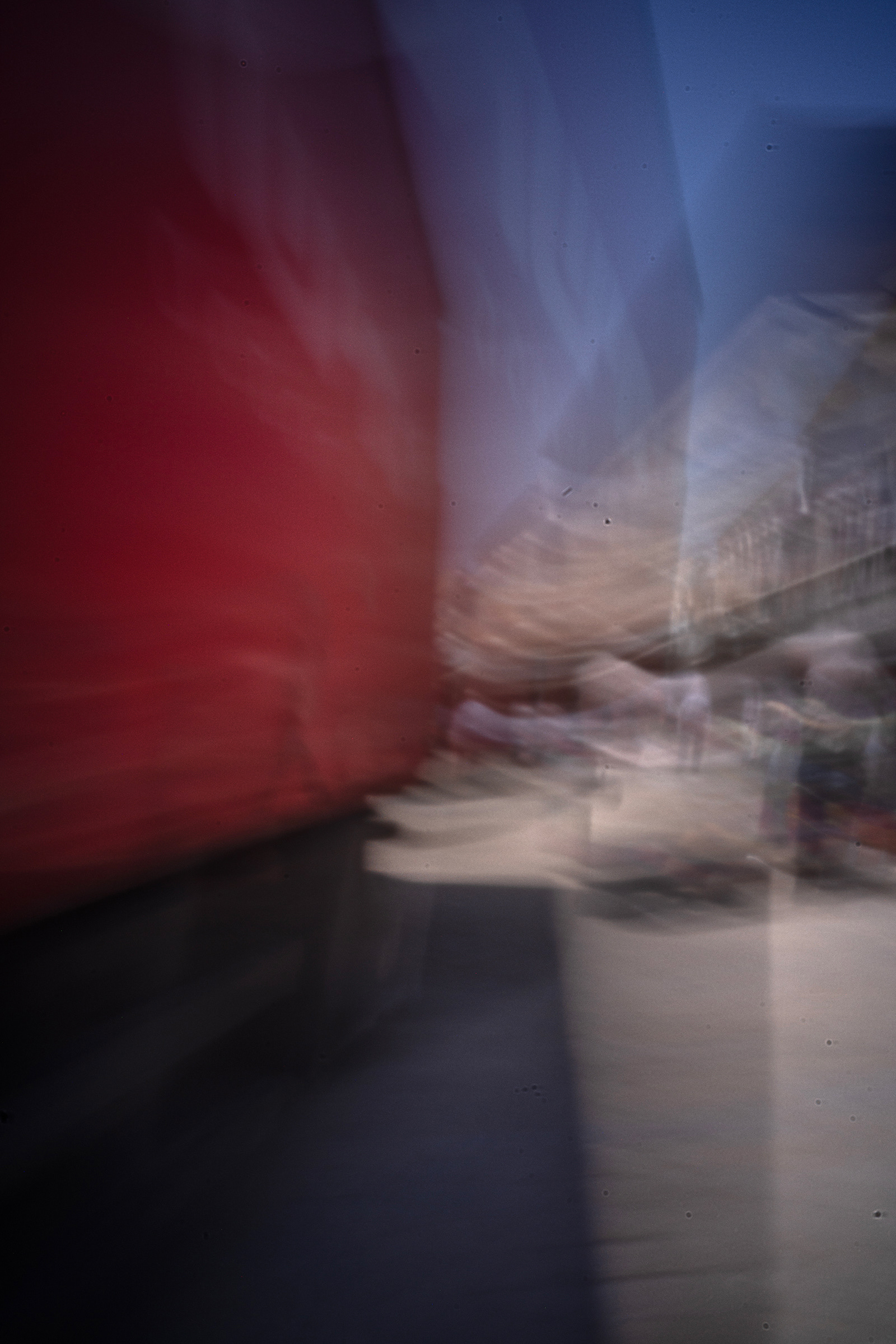
Someone might ask: who are these photographs really for? Who will see them? I reply: am I responsible to know? I want to believe that a photograph, like other works of art, all by itself participates in—assumes—a special community of beholders, call it an audience, which is at once concrete and transhistorical, existing across languages, across cultures in specific formations and reformations, across time and historical accounts. I want to believe that the mobility of photography as a medium, and the rebellion encoded in these photographs in particular—against ownership and final possession—will establish the imagined community they belong to, audaciously and in advance of the fact. I can’t say that I actually do believe this, but I have not forsaken the hope that they do.
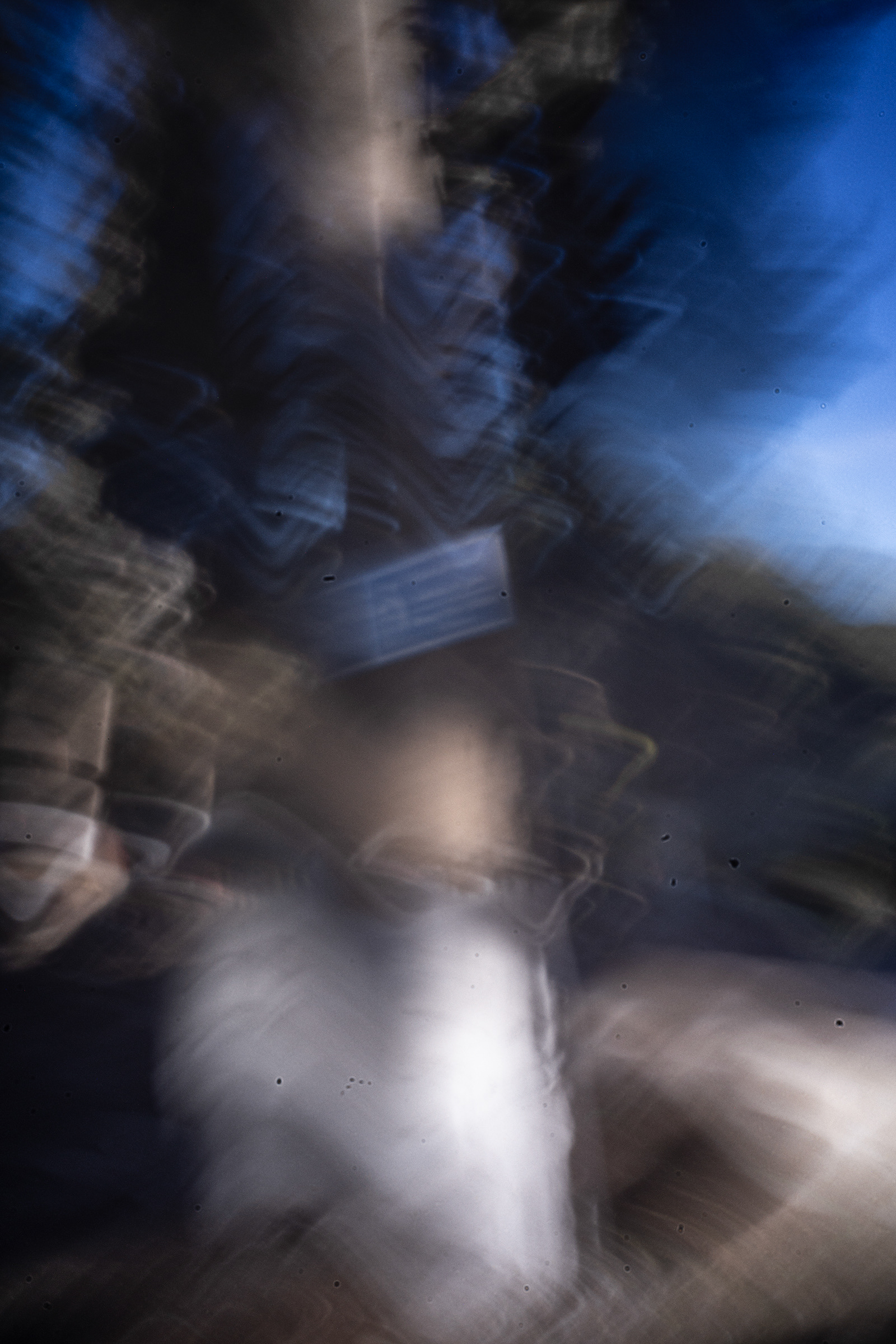
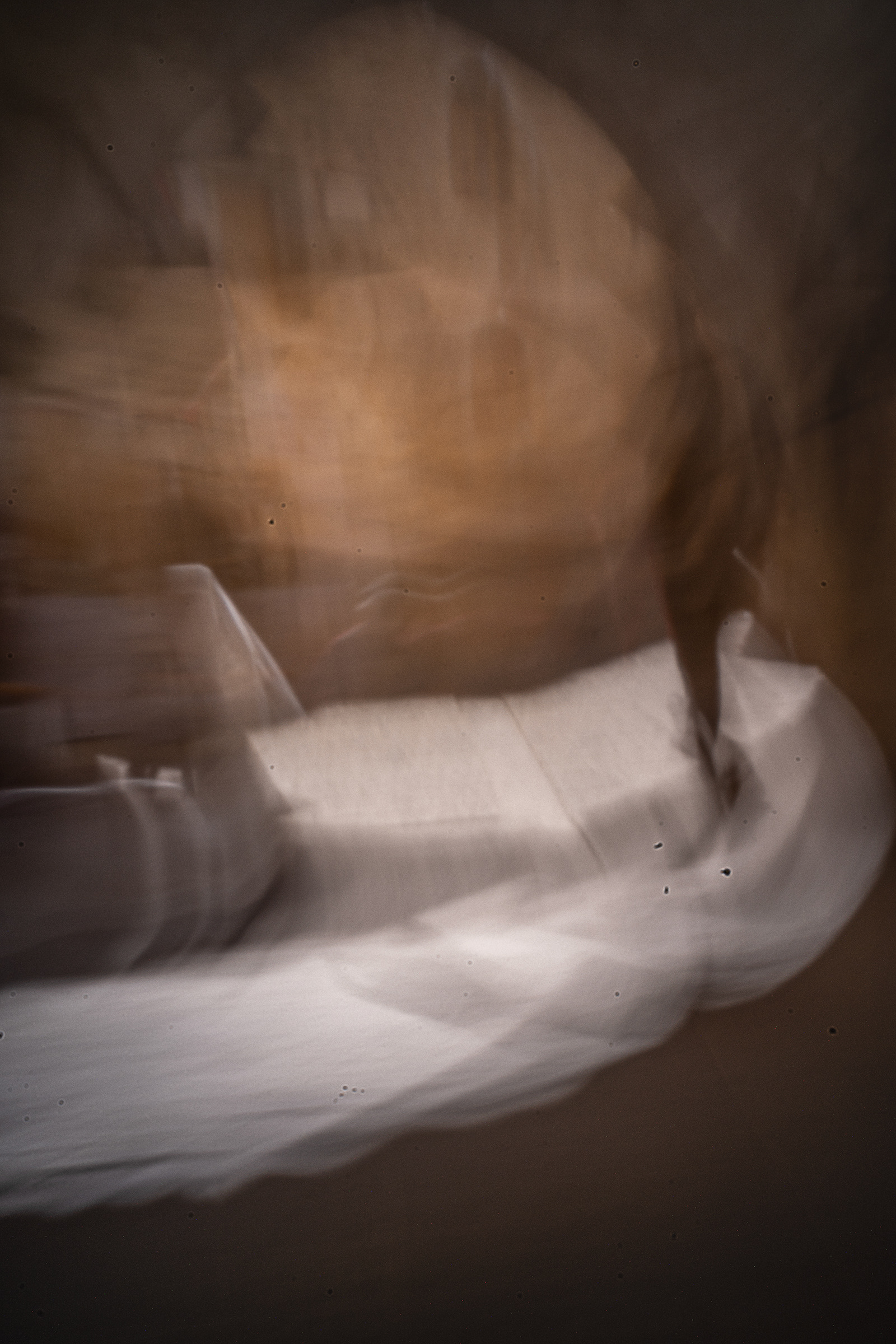
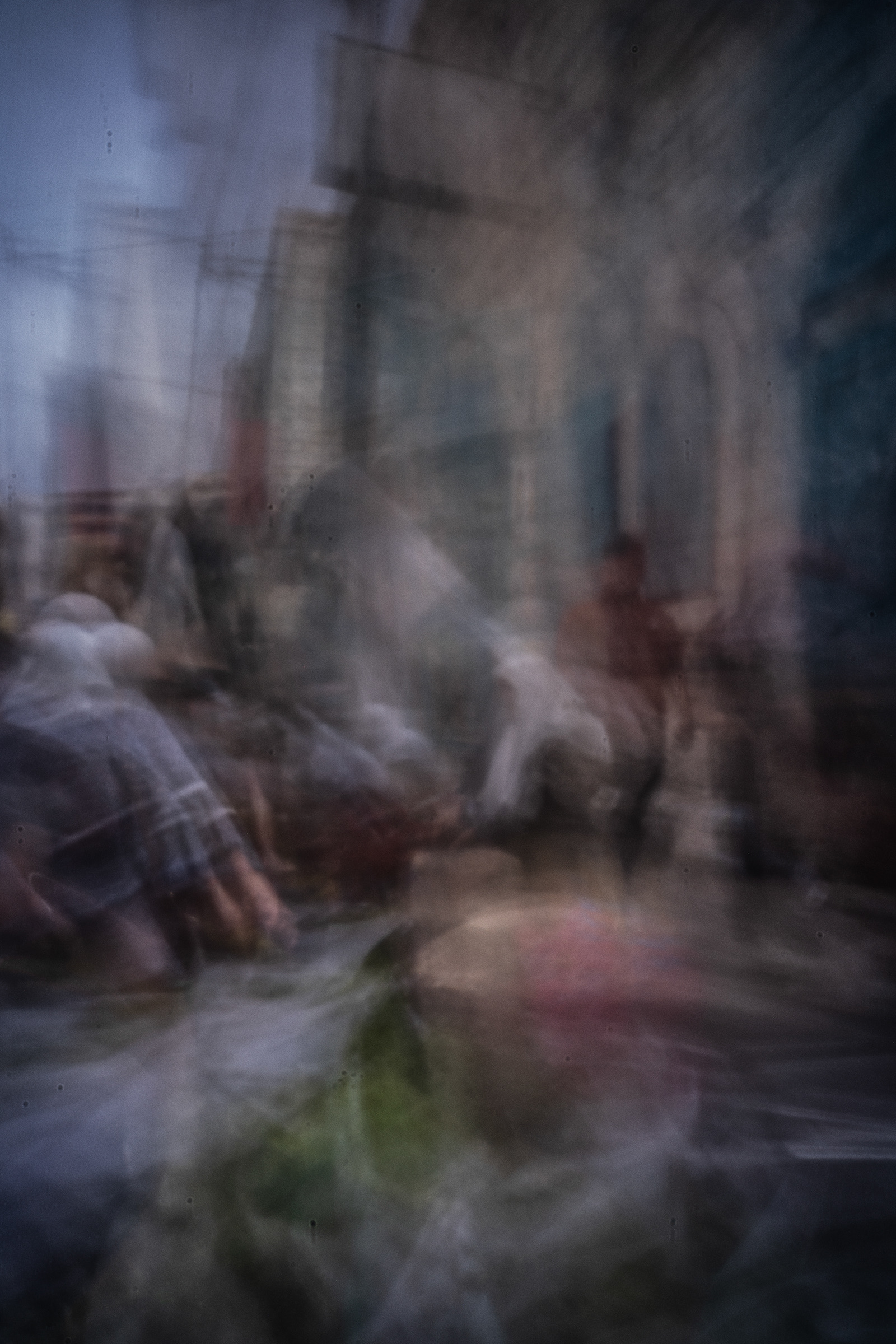
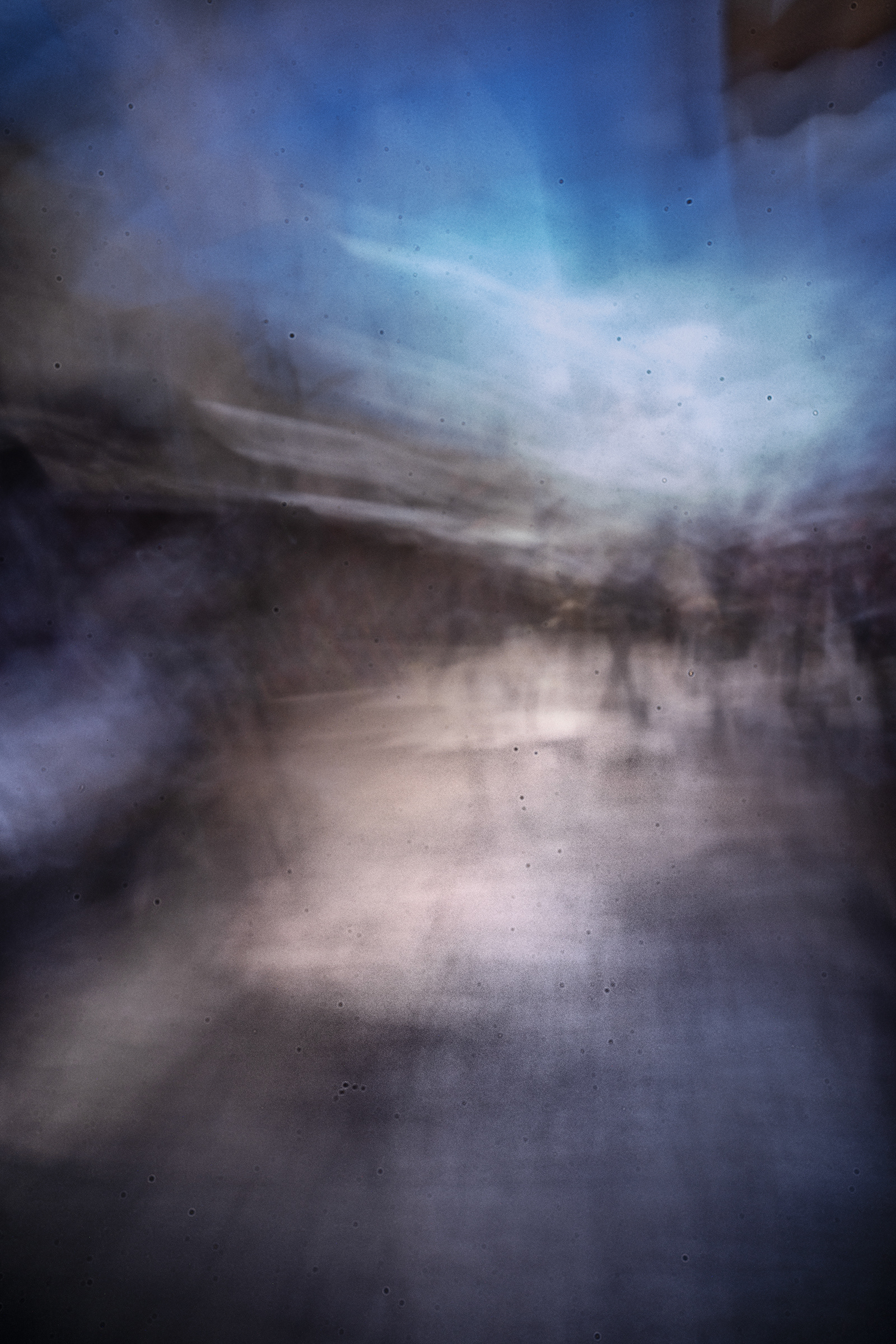
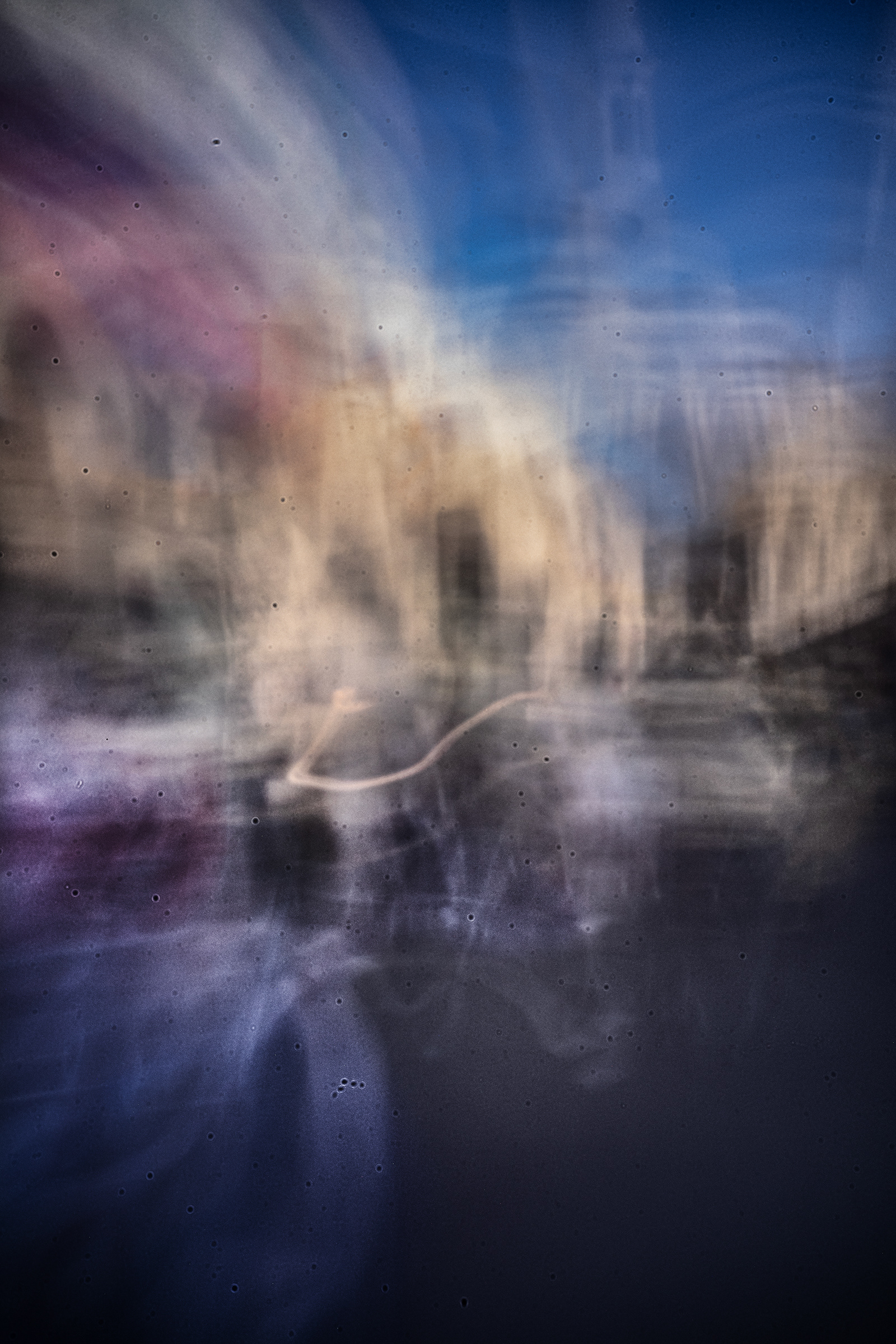
Of course it is true that photographs, like all works of art and all poems, change nothing. Seamus Heaney is right when he says that no lyric ever stopped a tank, and Meir Wieseltier may be right to lament that “the world doesn’t read poetry…even the most beautiful poem, even if we plead with it, even if we very much plead with it—it will not agree.” But like a poem, a photograph changes everything when we understand what it actually is. Engaged or never engaged, it holds a space for contemplation, specifically for what Heaney rightly describes as “the shyest part of our nature”—the part worth going out of one’s way to defend—and, I would say, also the work of mourning that maturation requires.
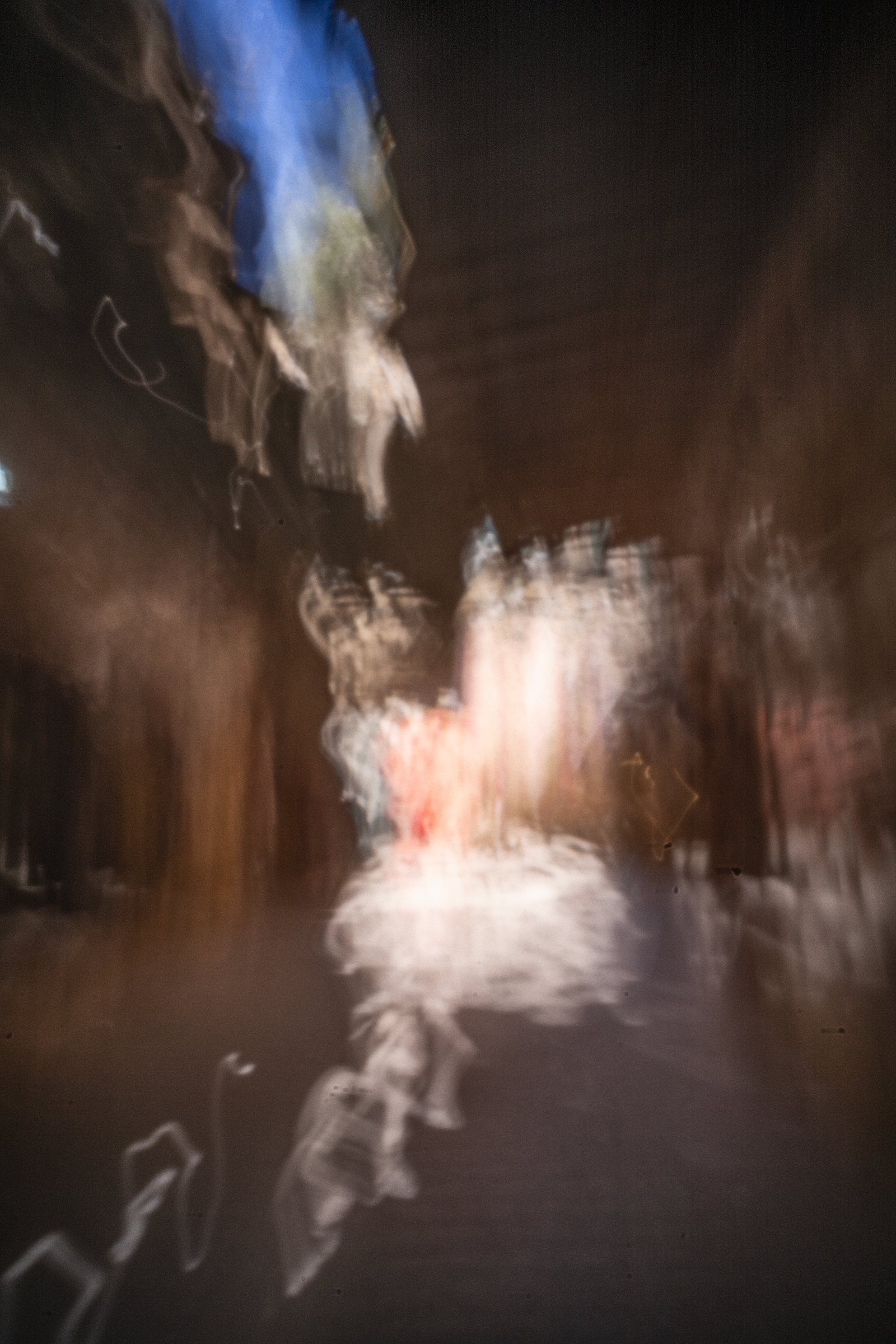
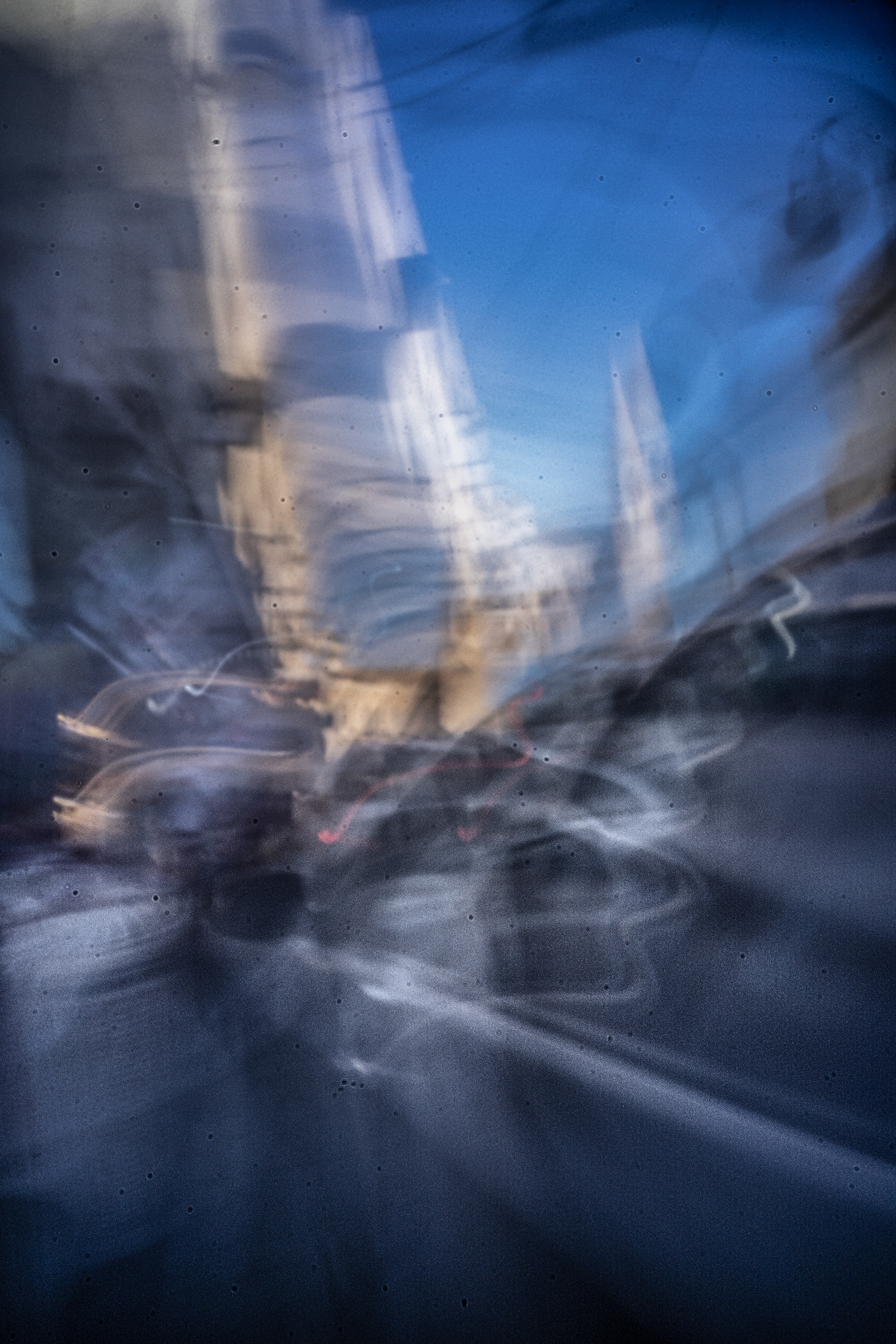
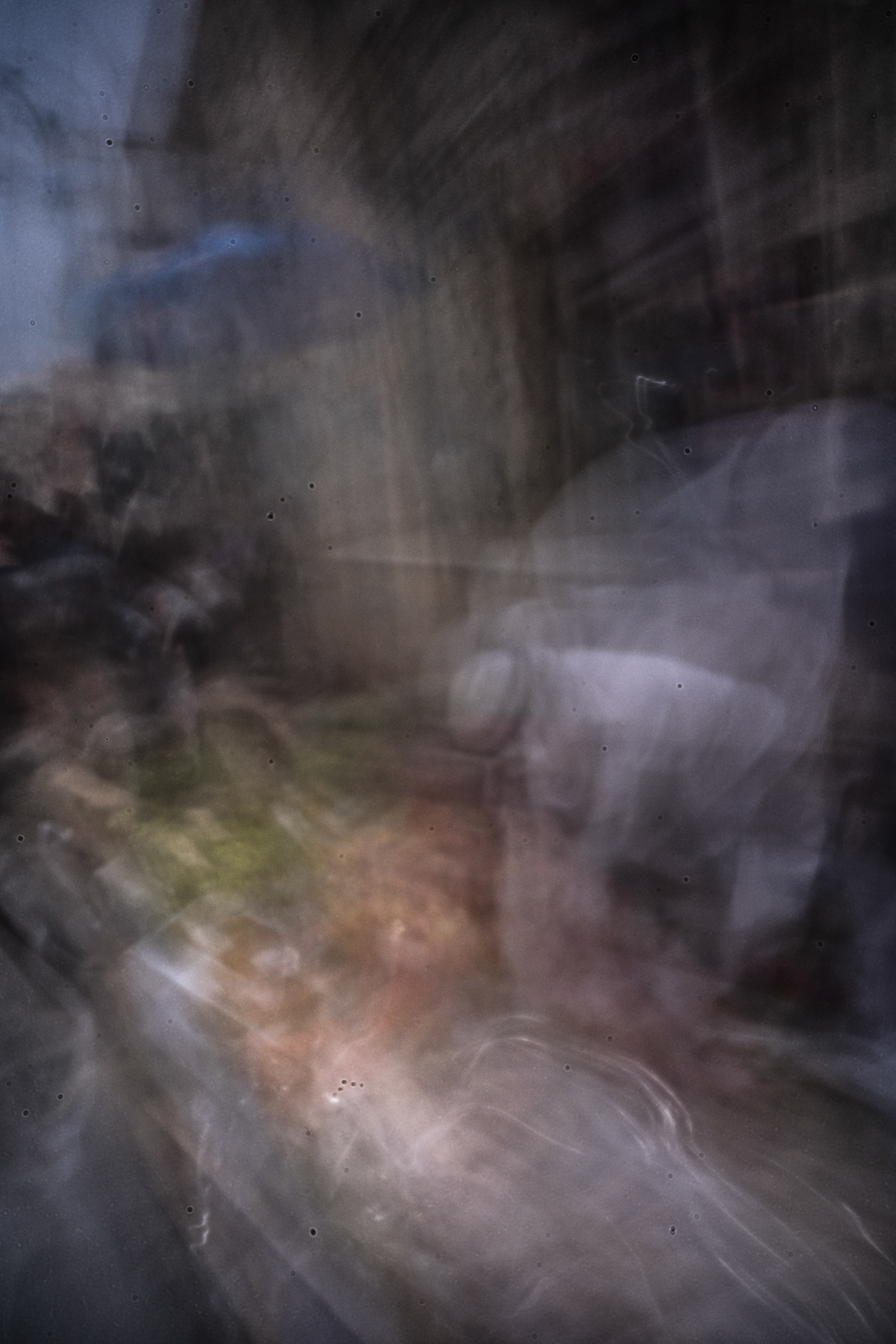
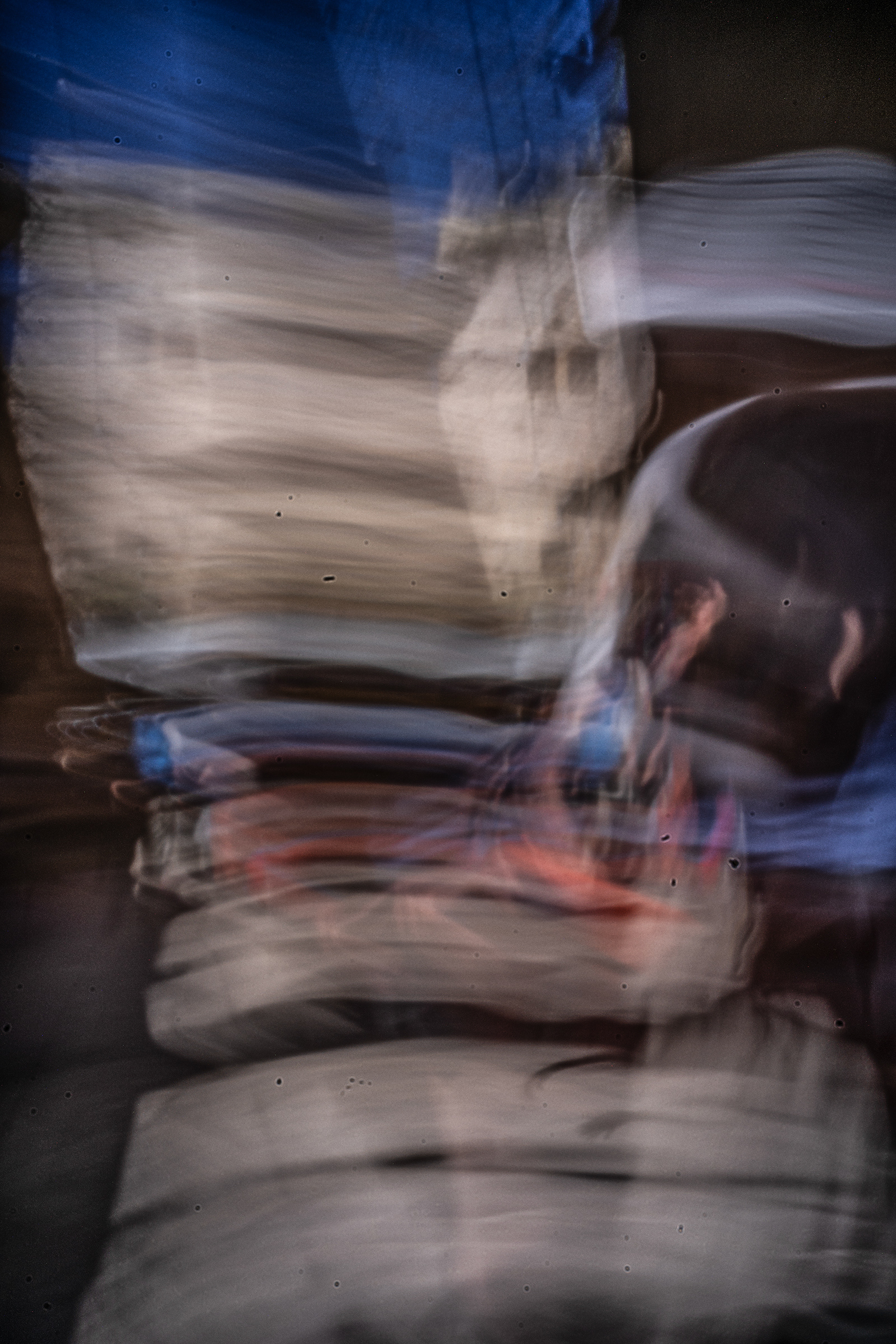
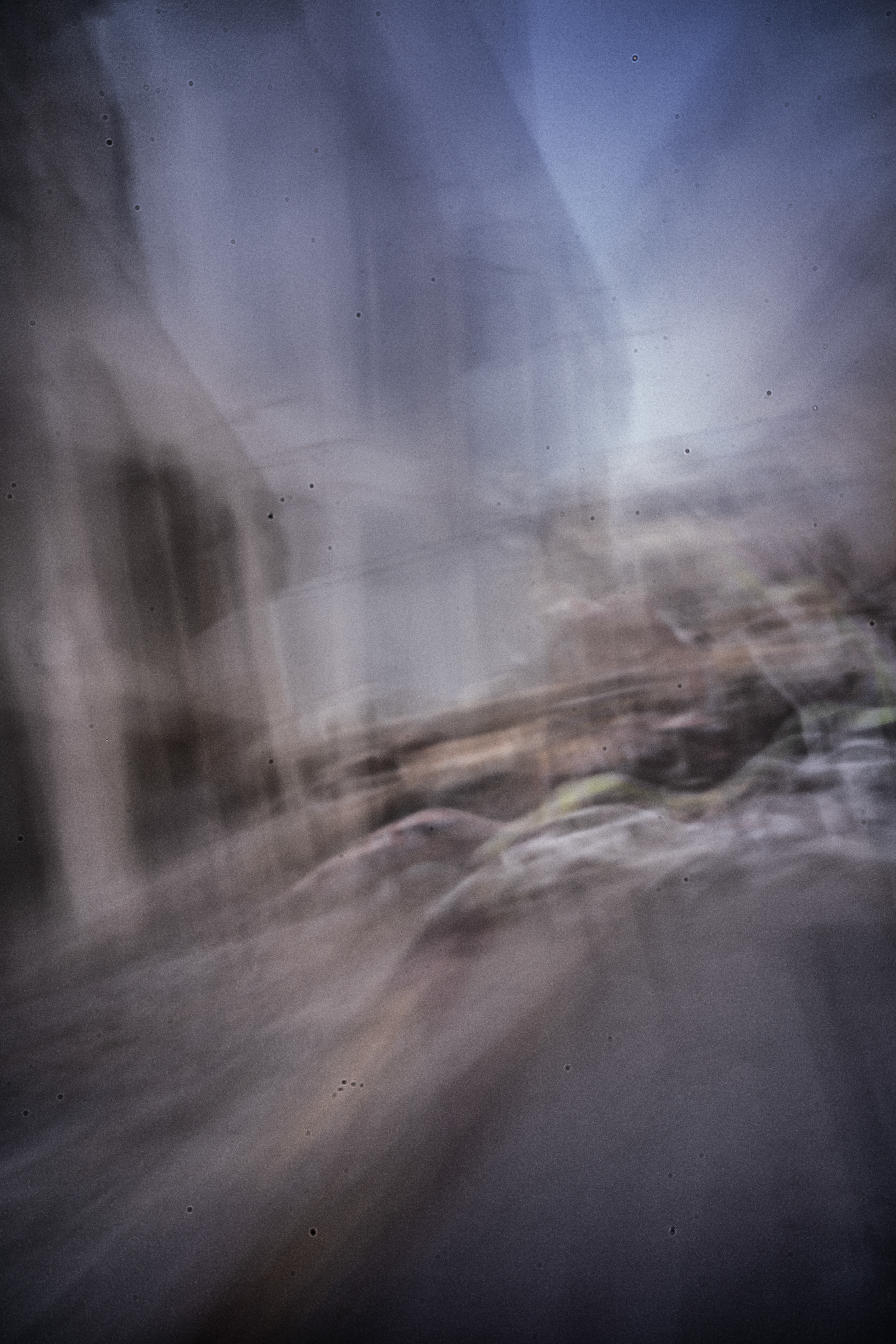
And lest I have been unclear, I want to say forthrightly that my travels left me with profound sadness. This was predictable enough in advance, but it bit in a way I did not expect. The truth is that I have never felt proud to be a Jew, but also I never felt ashamed to be one—until this journey. Here I must mention Hebron specifically, this is the place that I felt wave upon wave of shame. It surprises me that I should feel shame when I am, after all, a Jew not from there, with no direct responsibility for the situation there. I am still meditating on the fact that shame should be part of my sadness. it seems that even as I am a Jew of the diaspora, Palestine vibrates a dimension of longing within me—vibrates me—in a way I cannot explain.
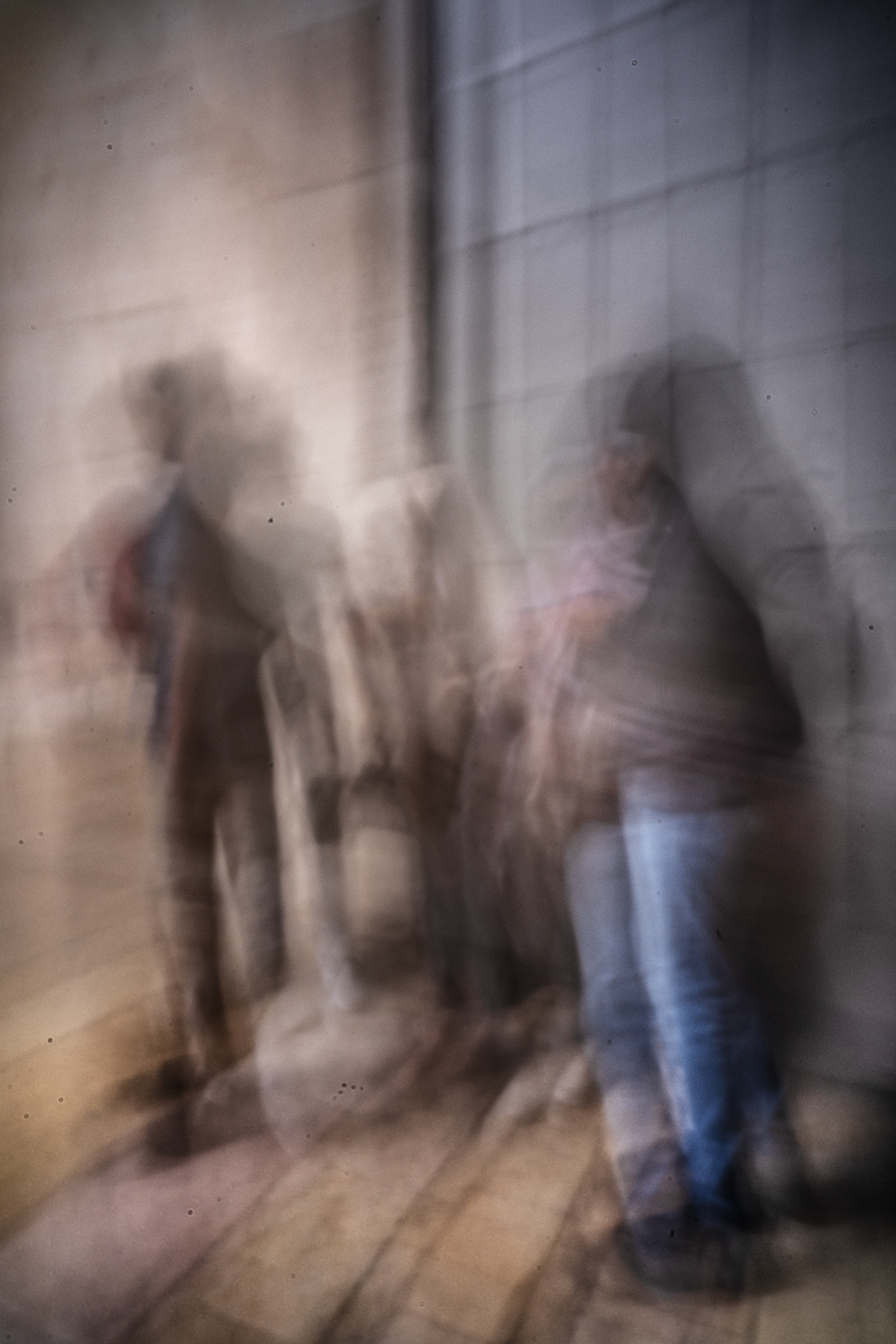
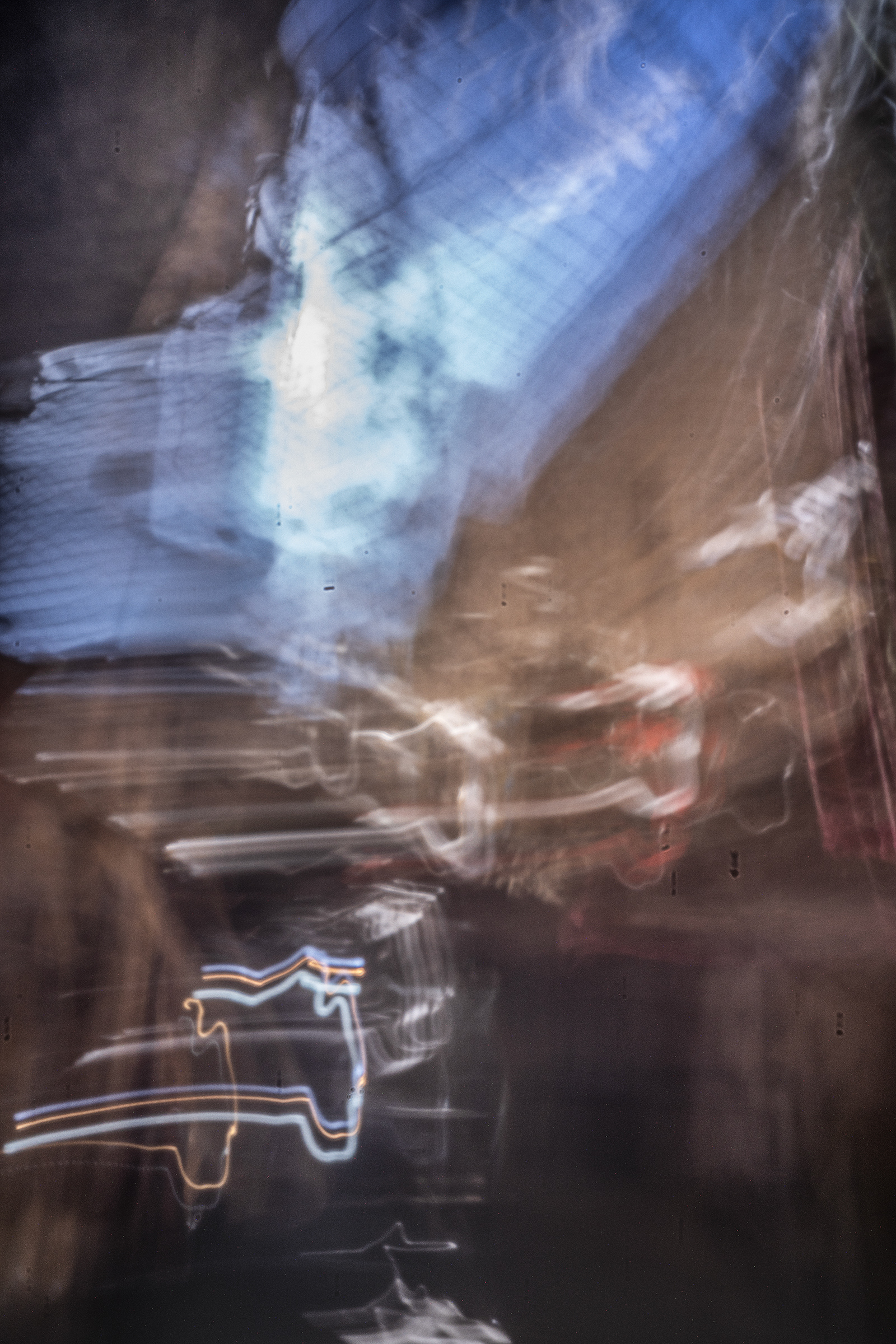
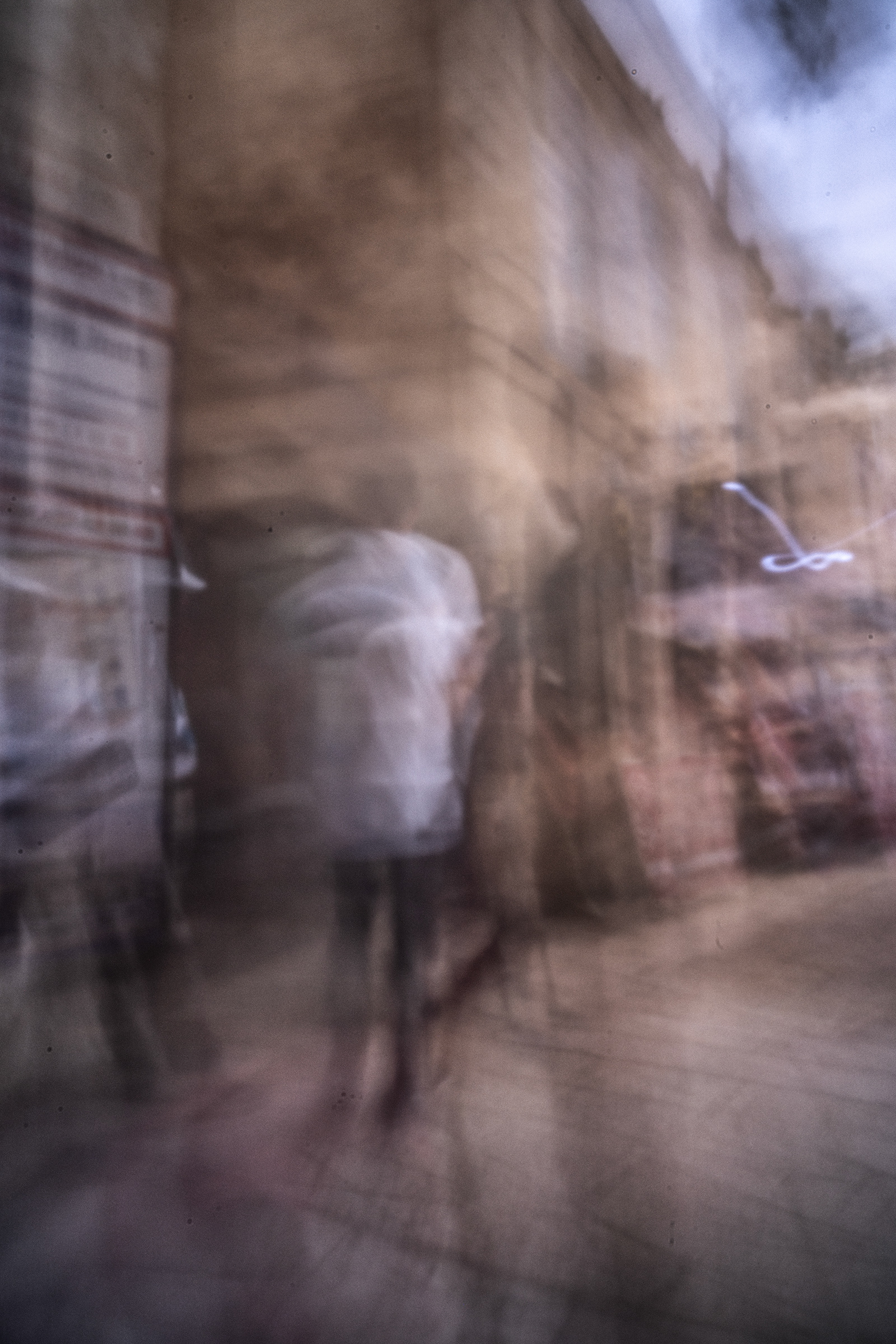
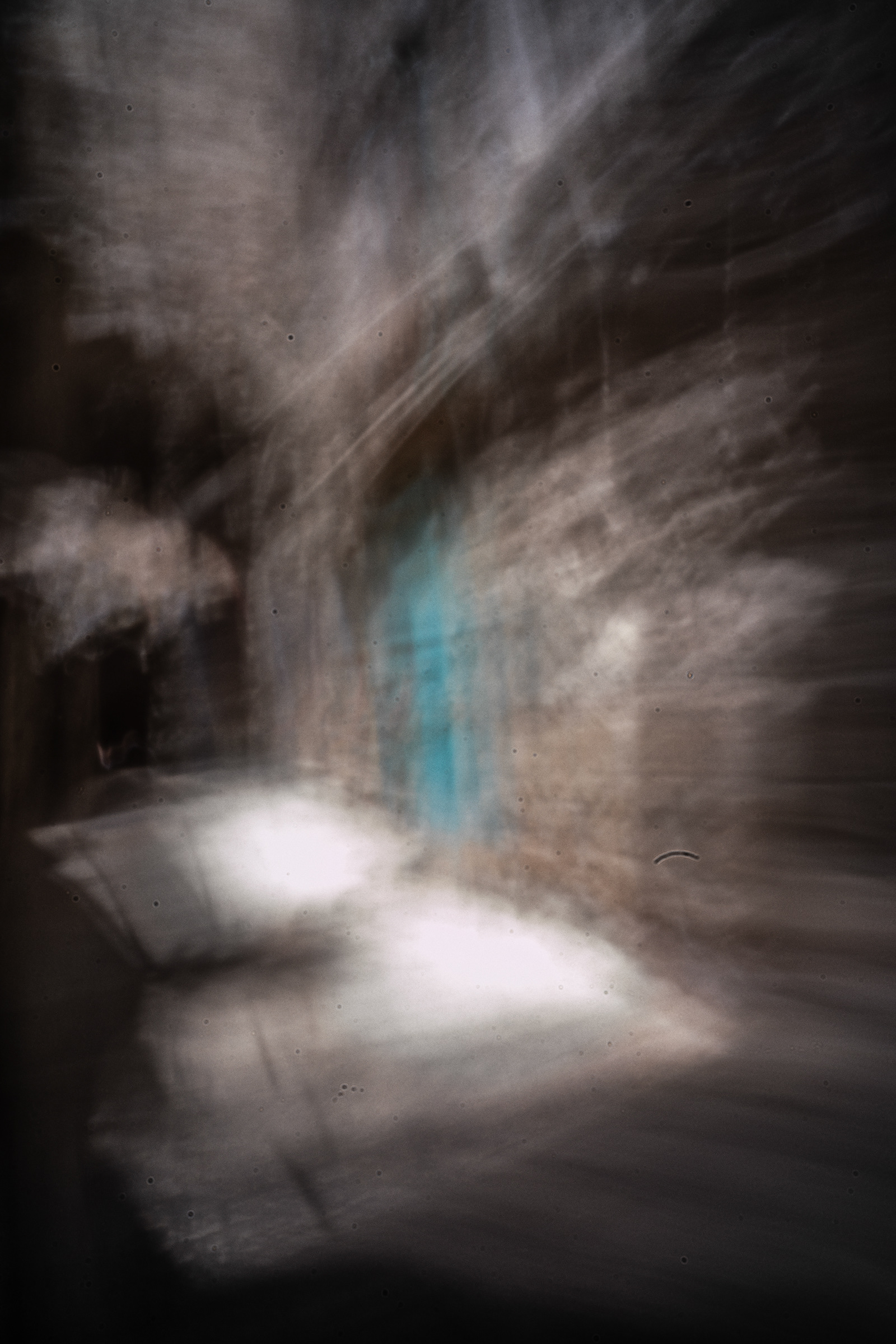
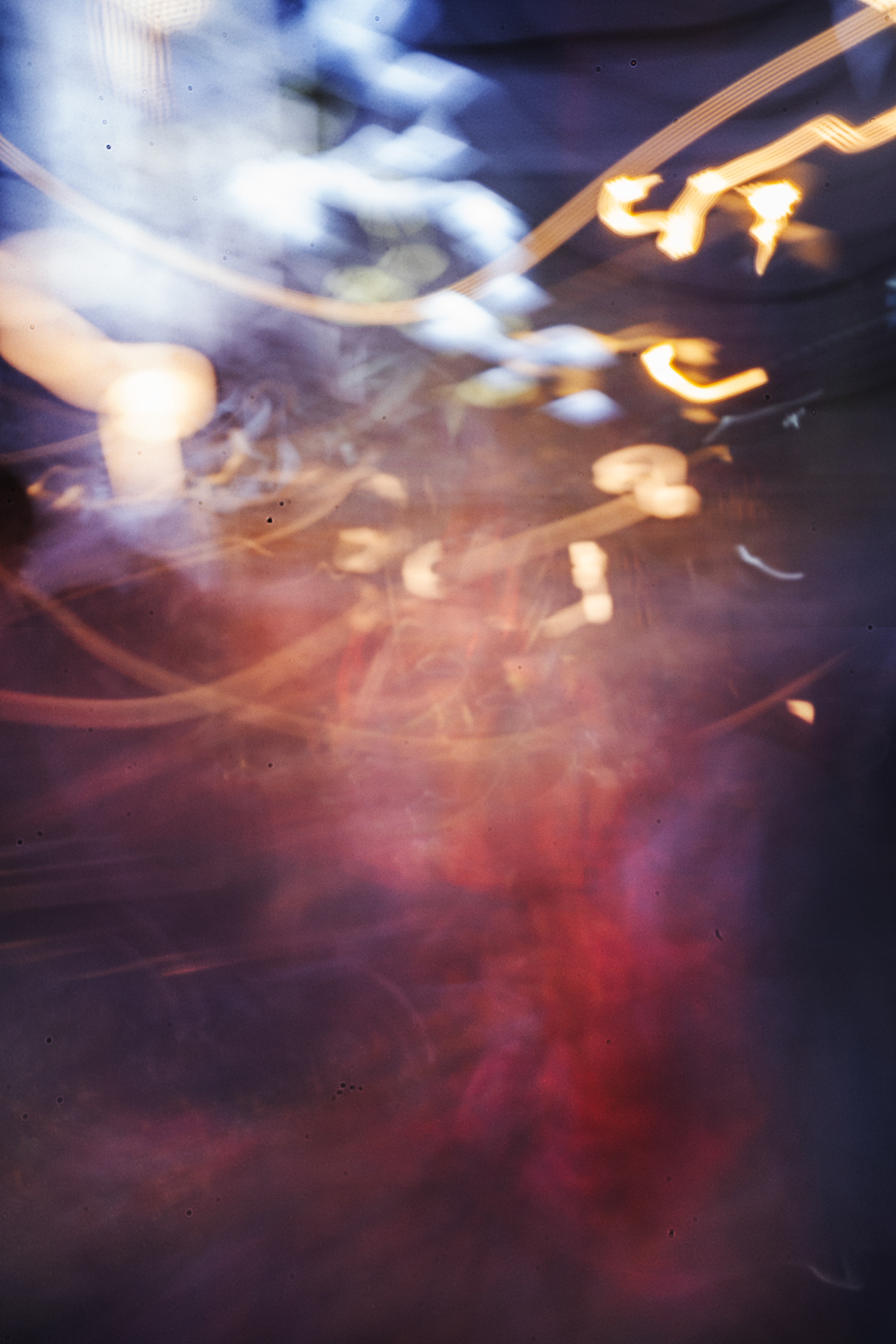
Jerusalem is, I found out, a body, a bodied vital force to be encountered partly in objects, but mostly in light. I might say that the spiritual Jerusalem is bodied as light, that light is its bodied realness. Whatever I can claim as existing knowledge about this realness, or foreknowledge, or predictive knowledge, none of it is as encompassing as the reality of non-knowledge. This reality deserves a form of its own. My photographs are just that: an effort to give-image to the states of non-knowledge through which we might gain in our unlearning, which I hasten to call necessary and crucial if peace is the deep task.
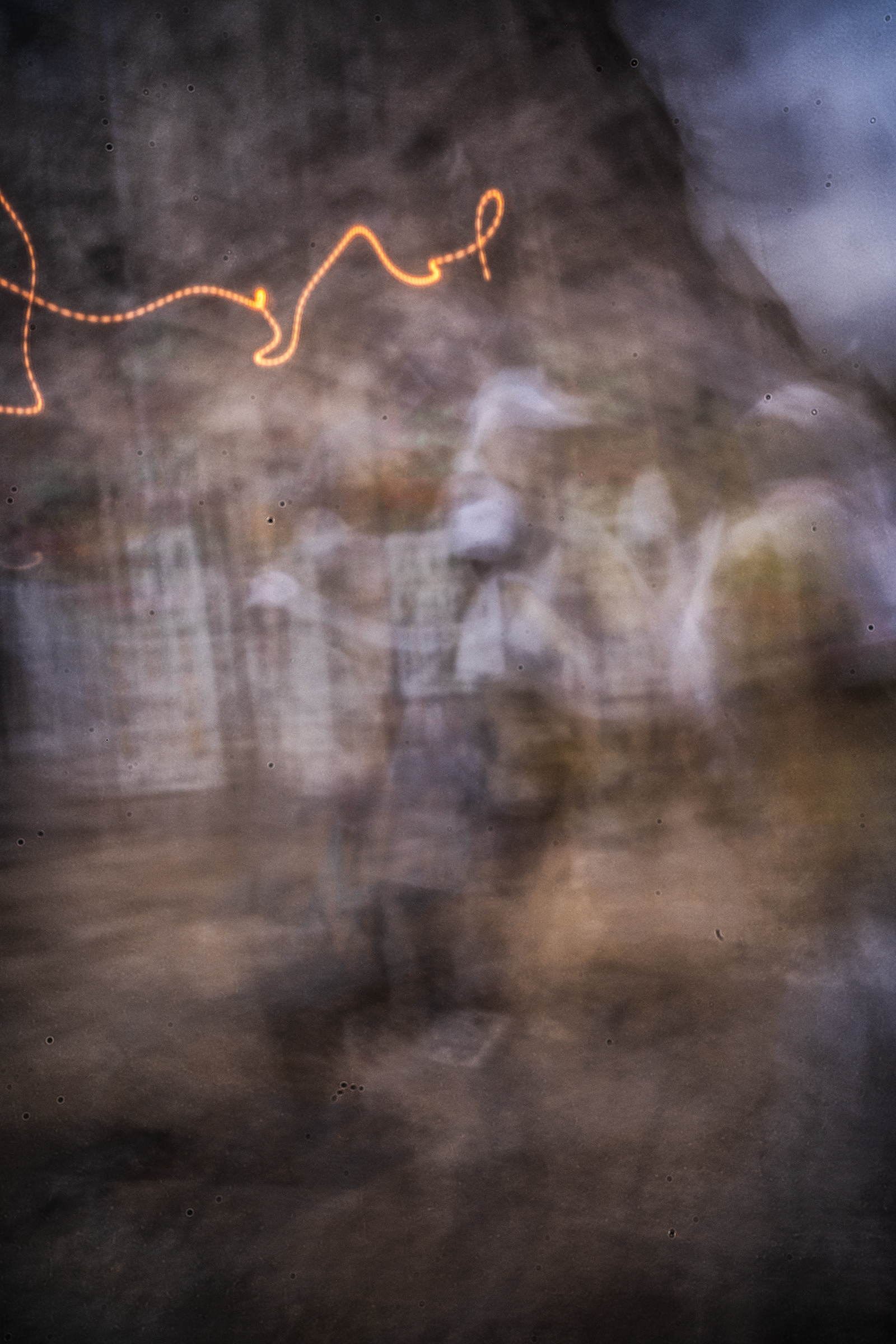
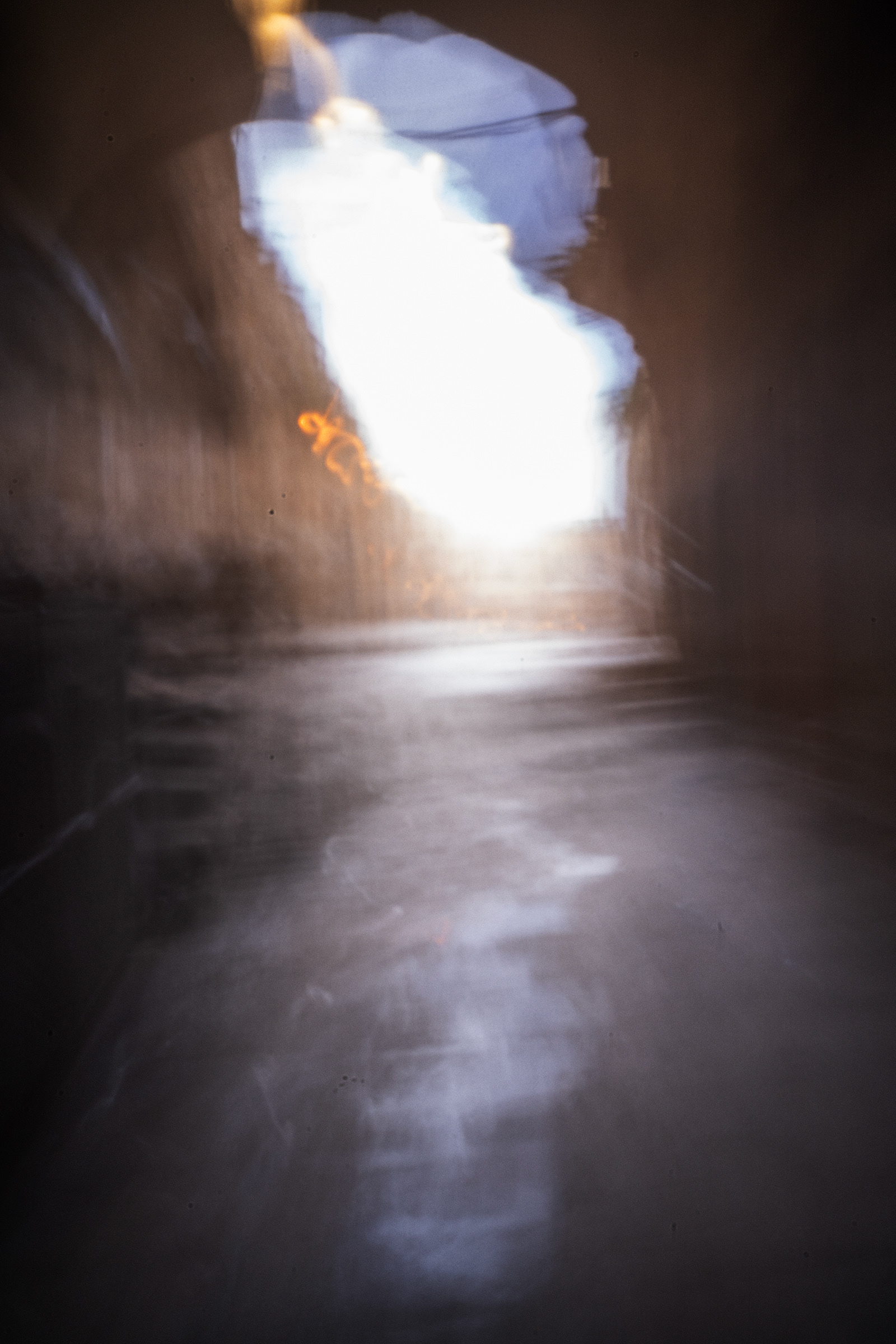
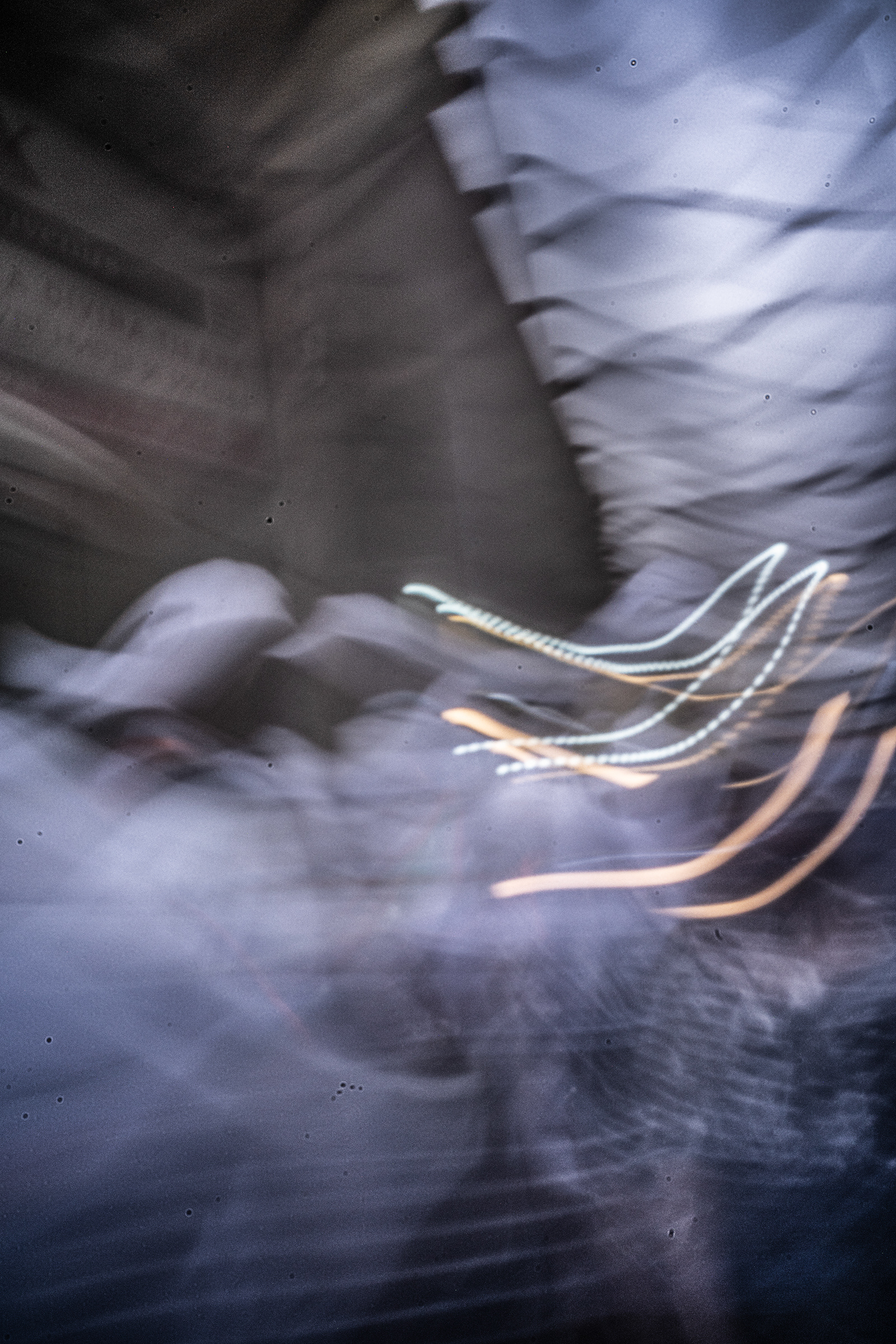
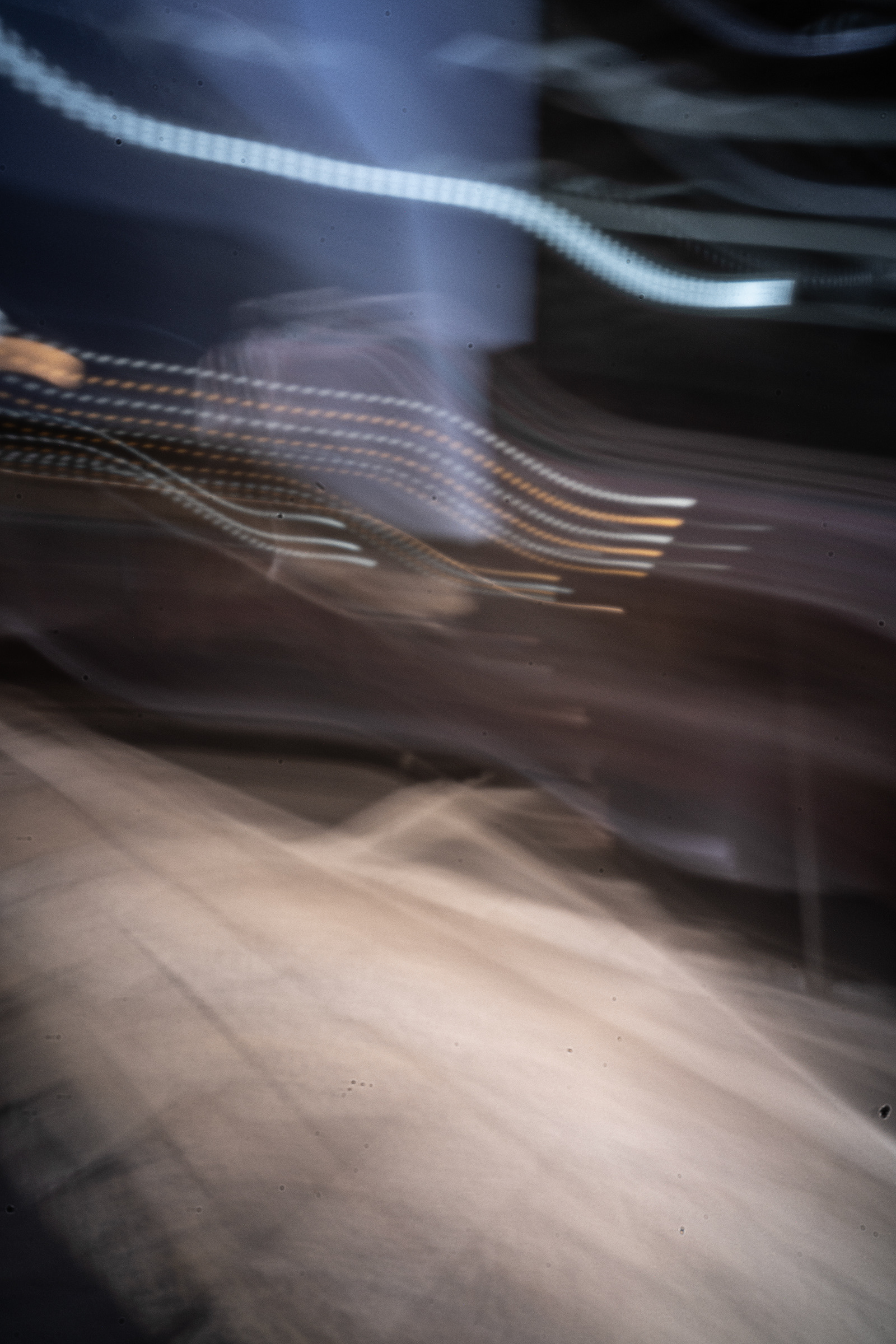
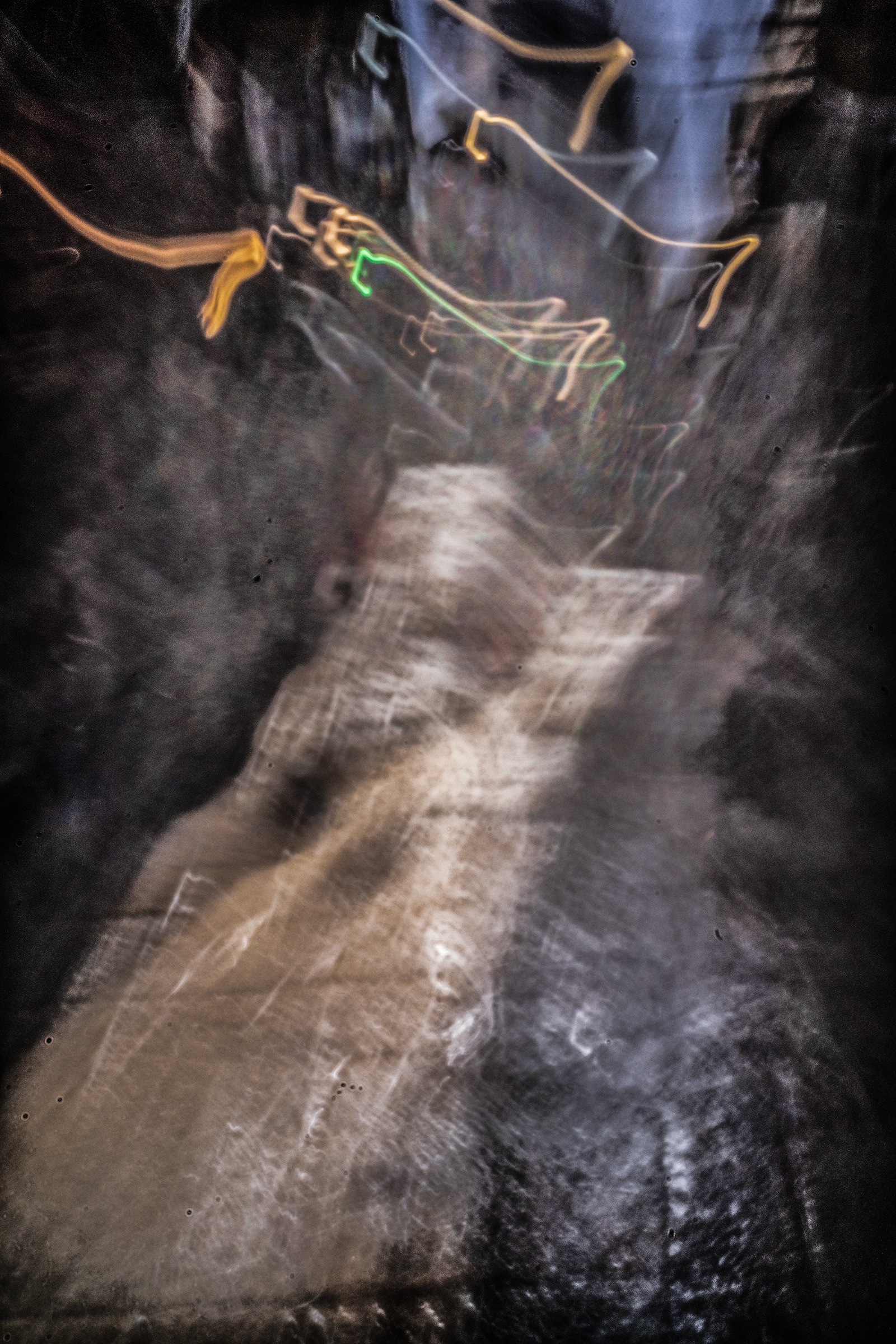
If it is not inappropriate, I will end with a poem, which says things better than I have otherwise said. This belongs in the dossier of responses to un-previsualized photographs of the once and future Jerusalem.
light in the shape of the body of jerusalem
slides out of jerusalem,
and loses its shape in devotion to jerusalem.
slides out of jerusalem,
and loses its shape in devotion to jerusalem.
love, like shadows, starts inside of things
and are those insides, venturing out.
and are those insides, venturing out.
only wind that enters a lung may die,
and the tongue will remain faithful.
and the tongue will remain faithful.
whatever it is to grieve, however much silence
is its devotional offering, love’s self-sacrifice
is not it.
is its devotional offering, love’s self-sacrifice
is not it.
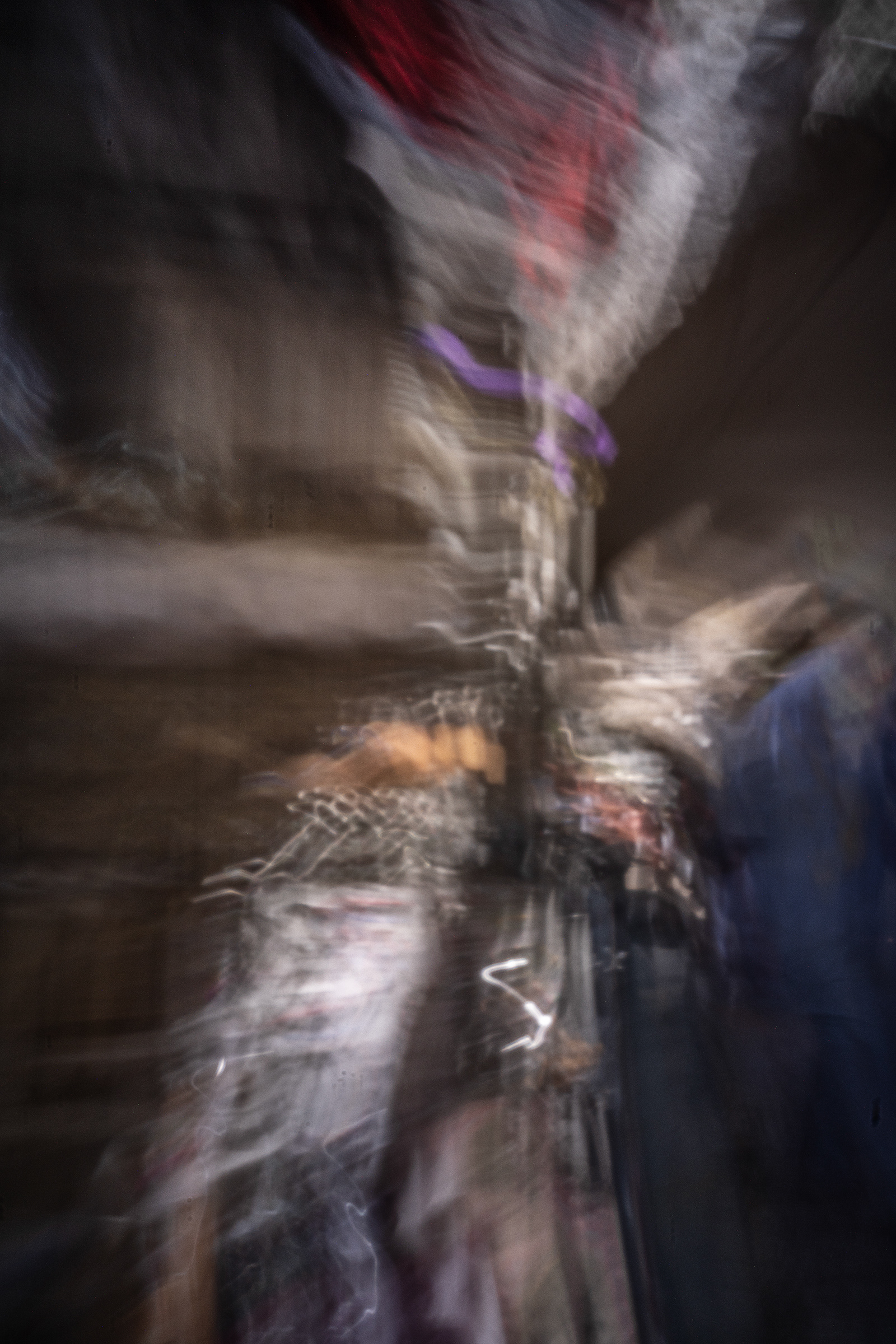
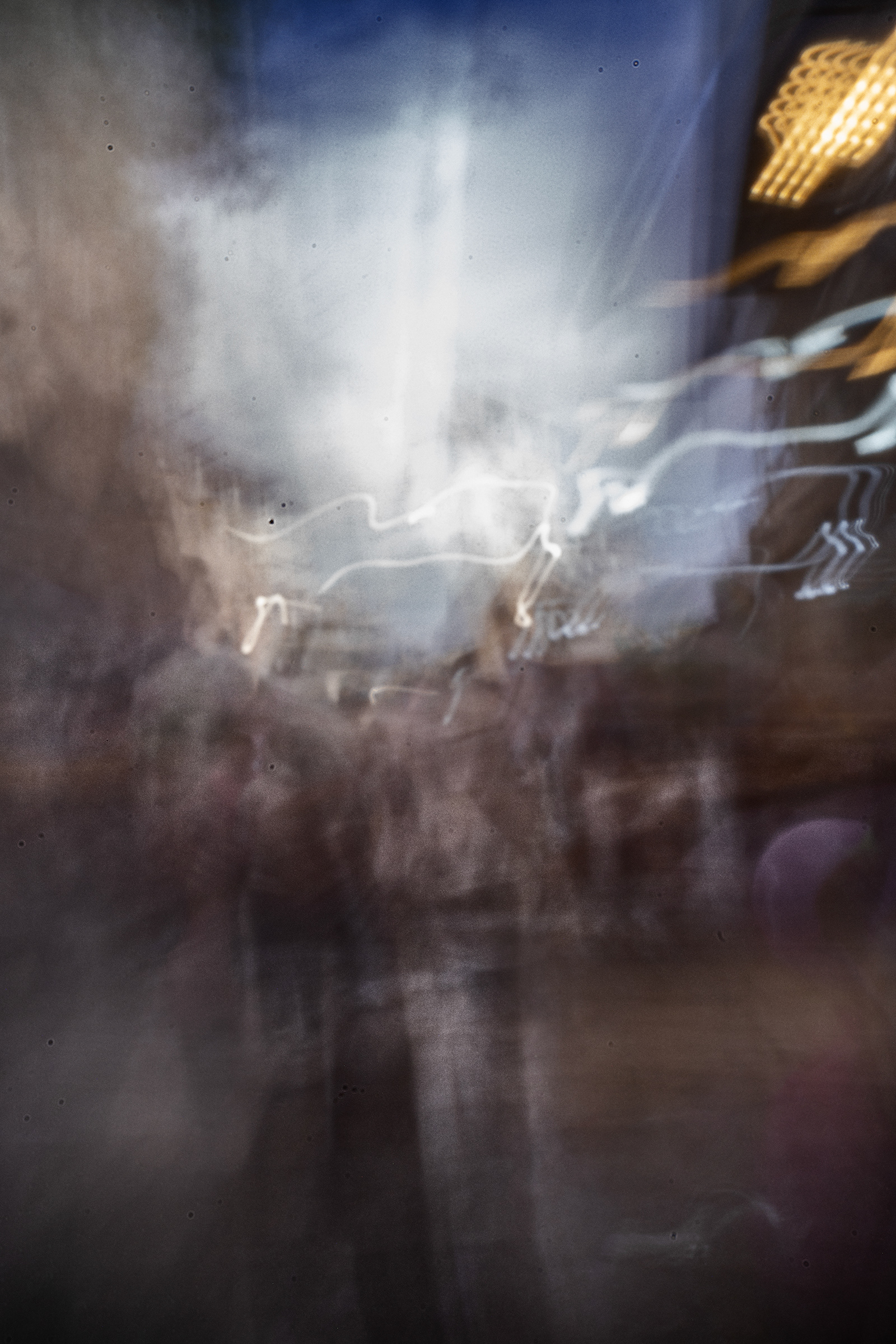
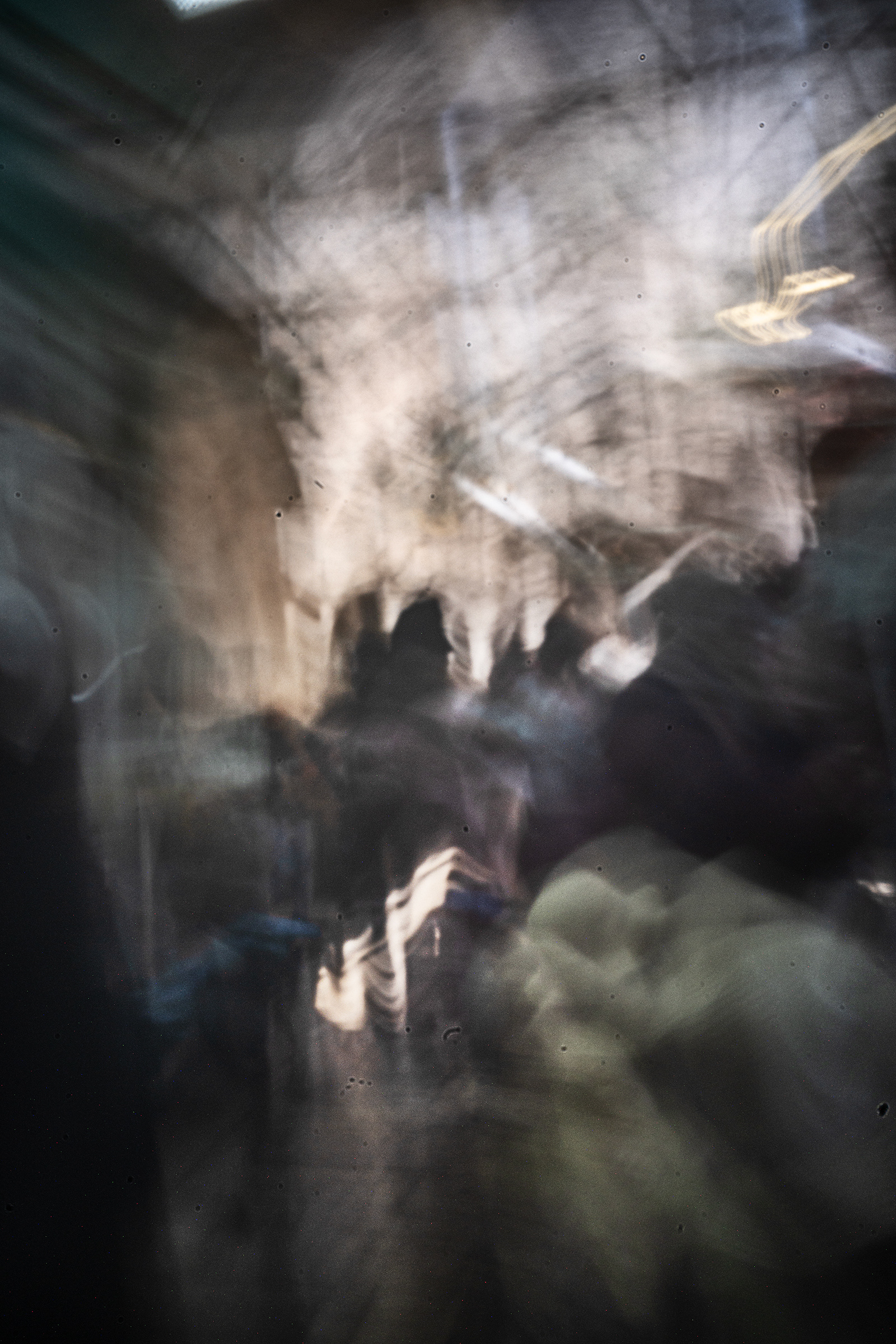
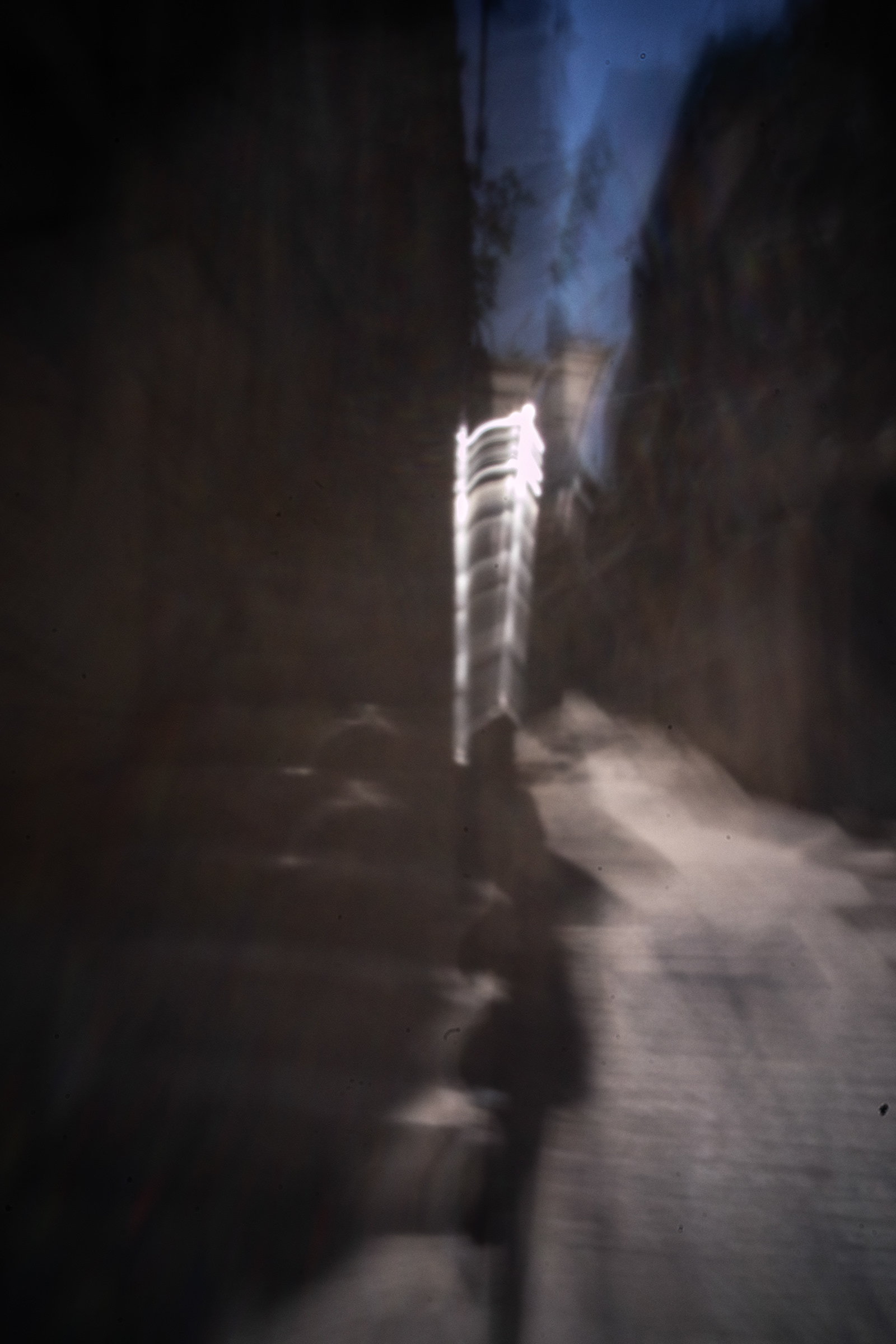
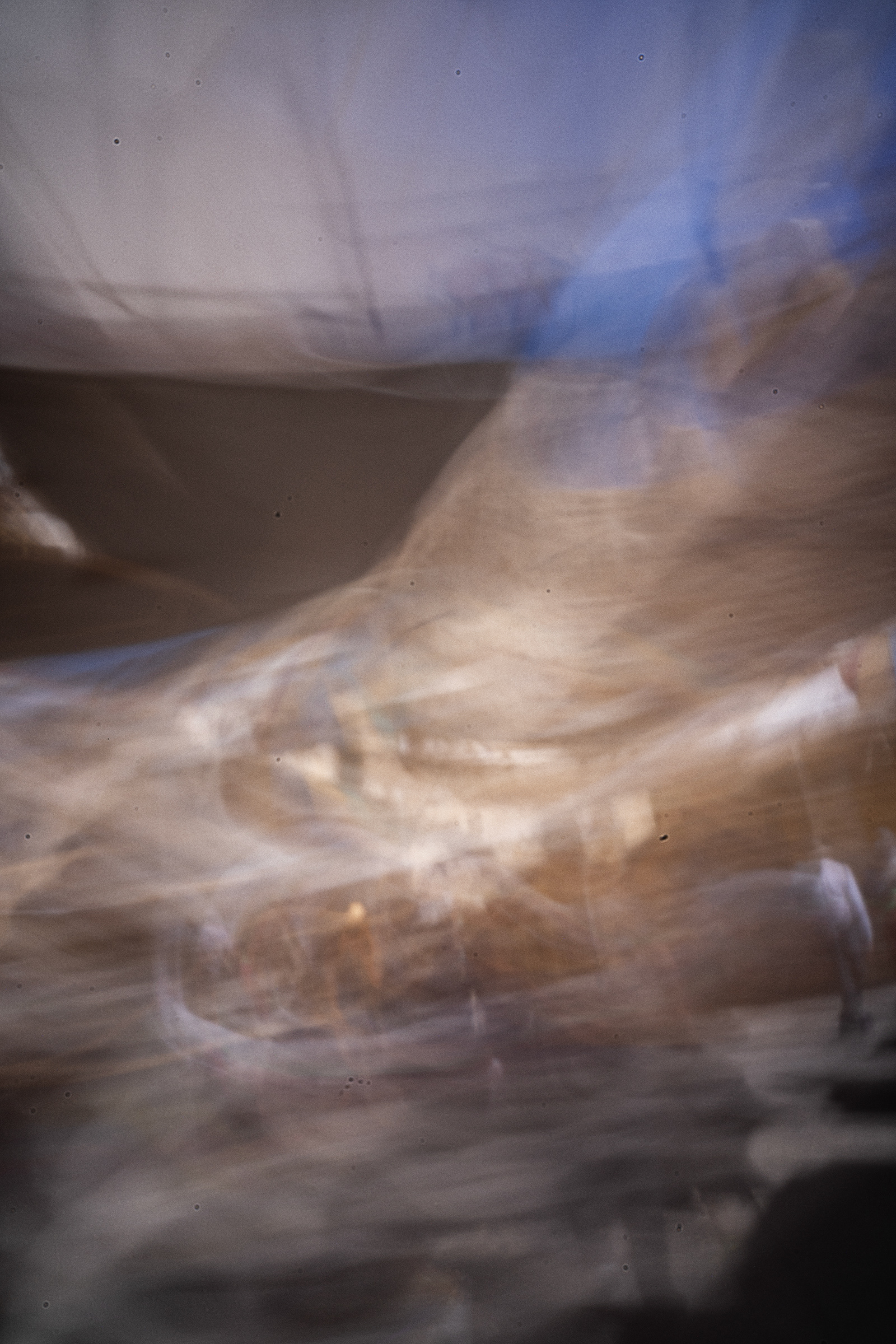
I venture: I will have made a photograph that matters if it receives the psychic energy of longing and return before it claims anything about what exiled people do not deserve and what occupiers claim as their deserts.
The photographs here were made in Jerusalem, Bethlehem, Ramallah, Hebron, Beit Jalah and Tsfat in 2023. The text was written in Paris and Atlanta in 2023.